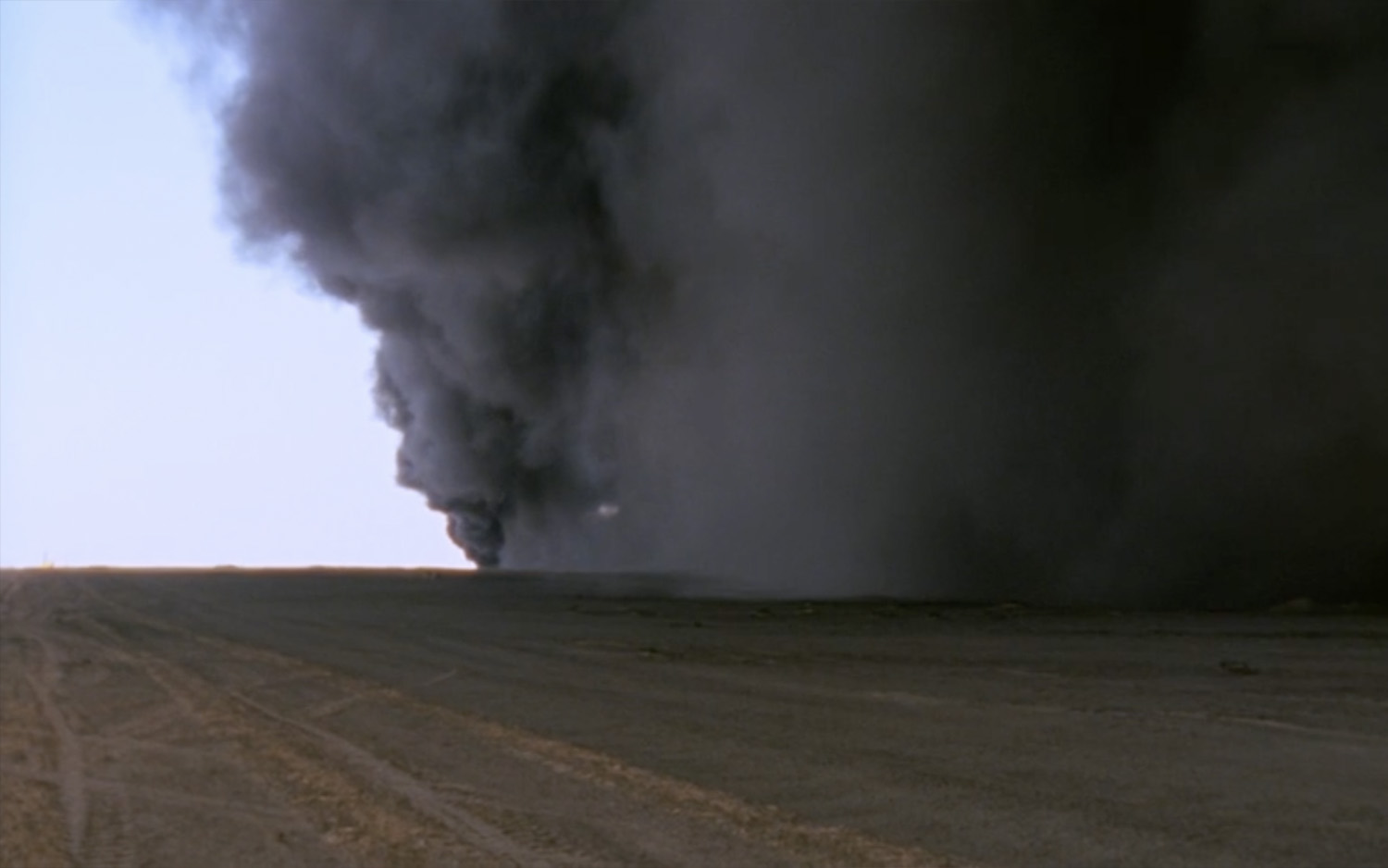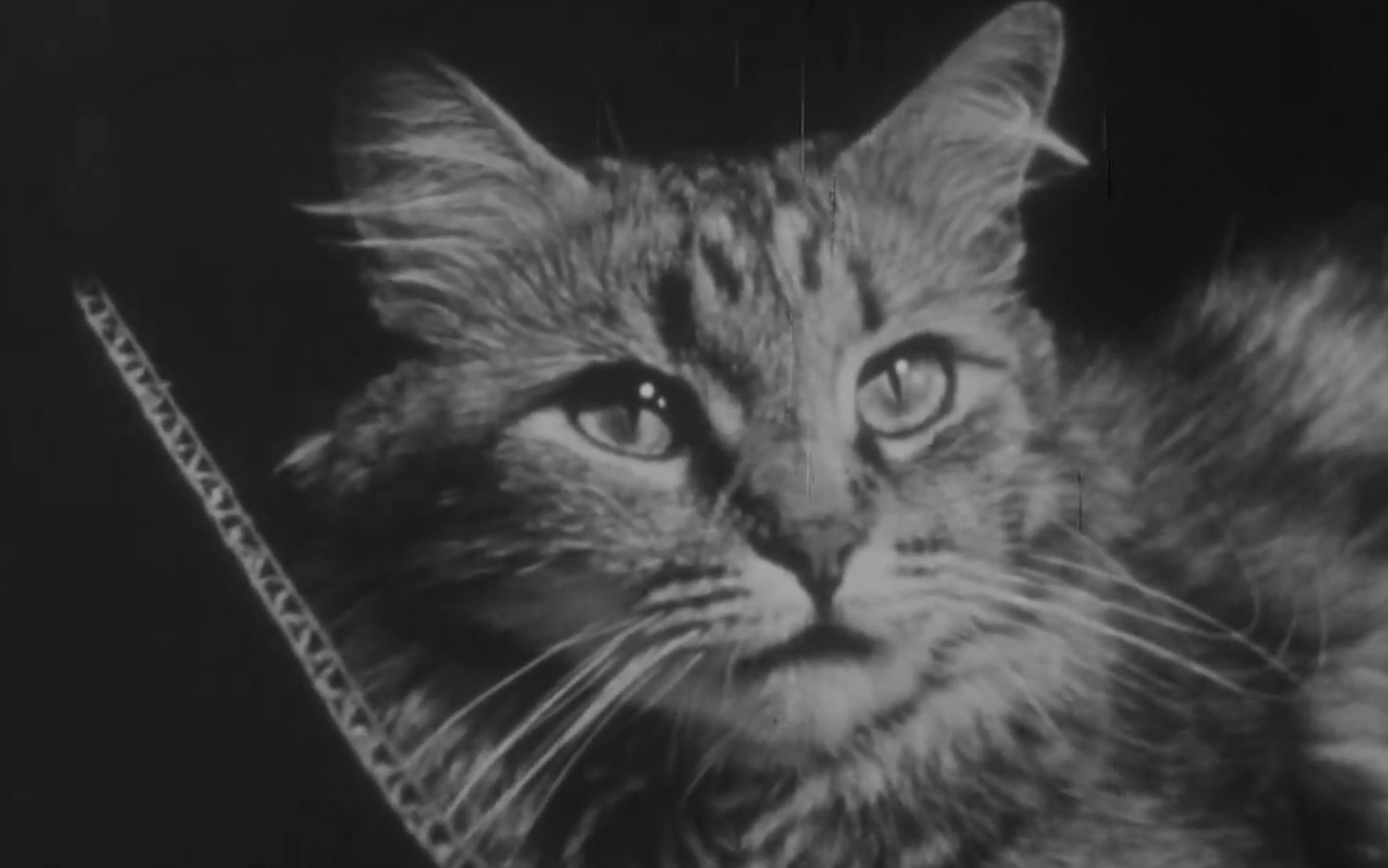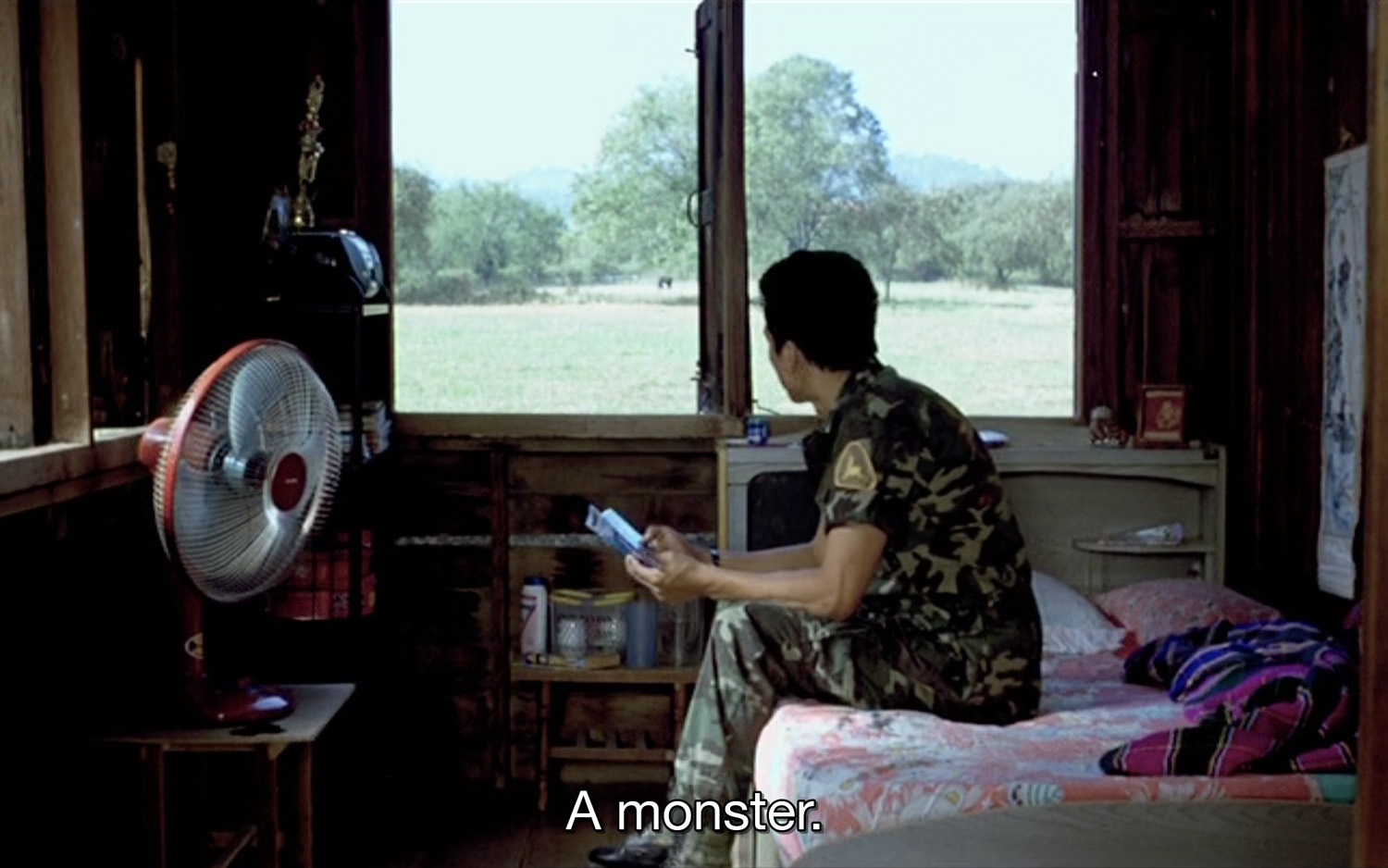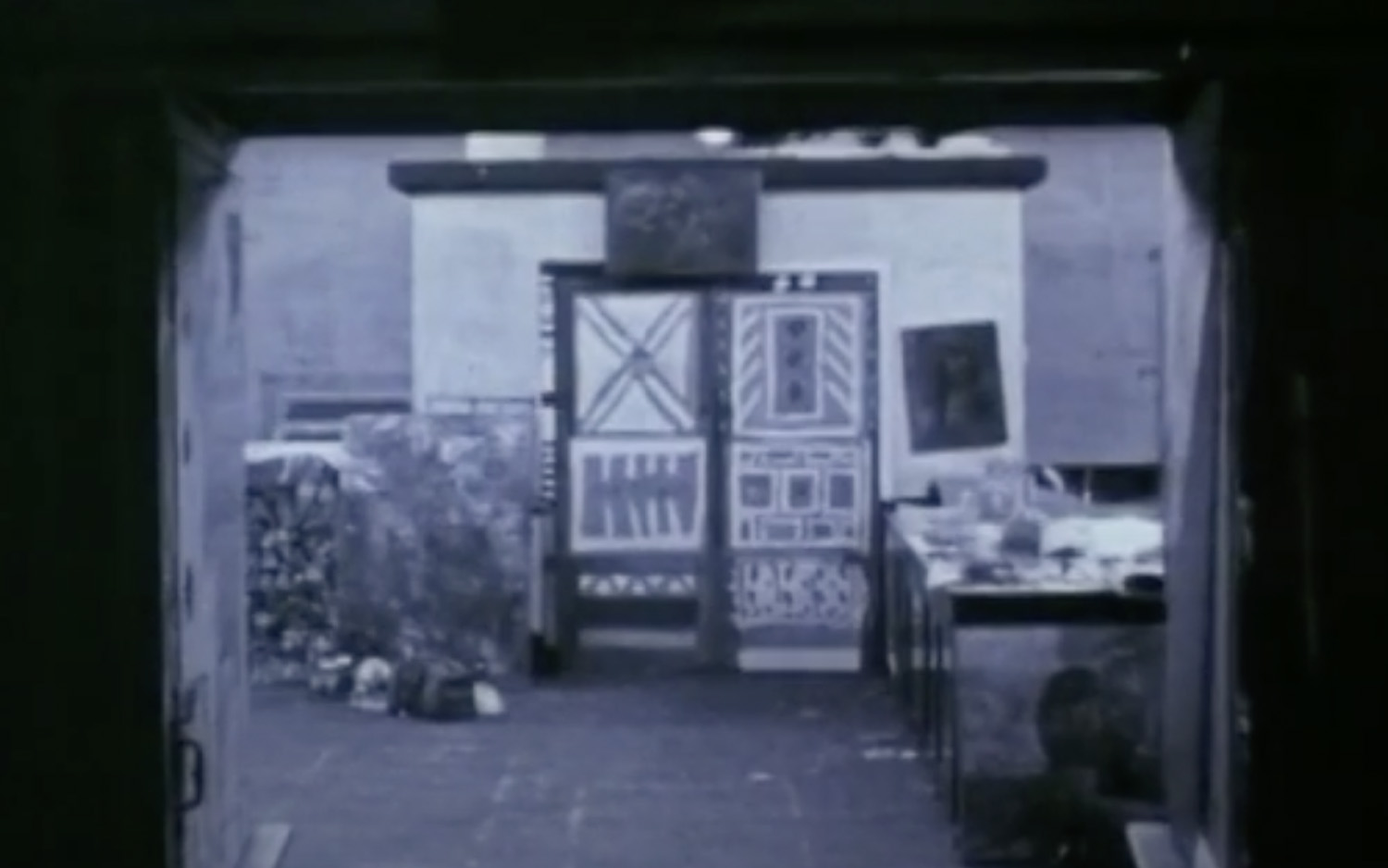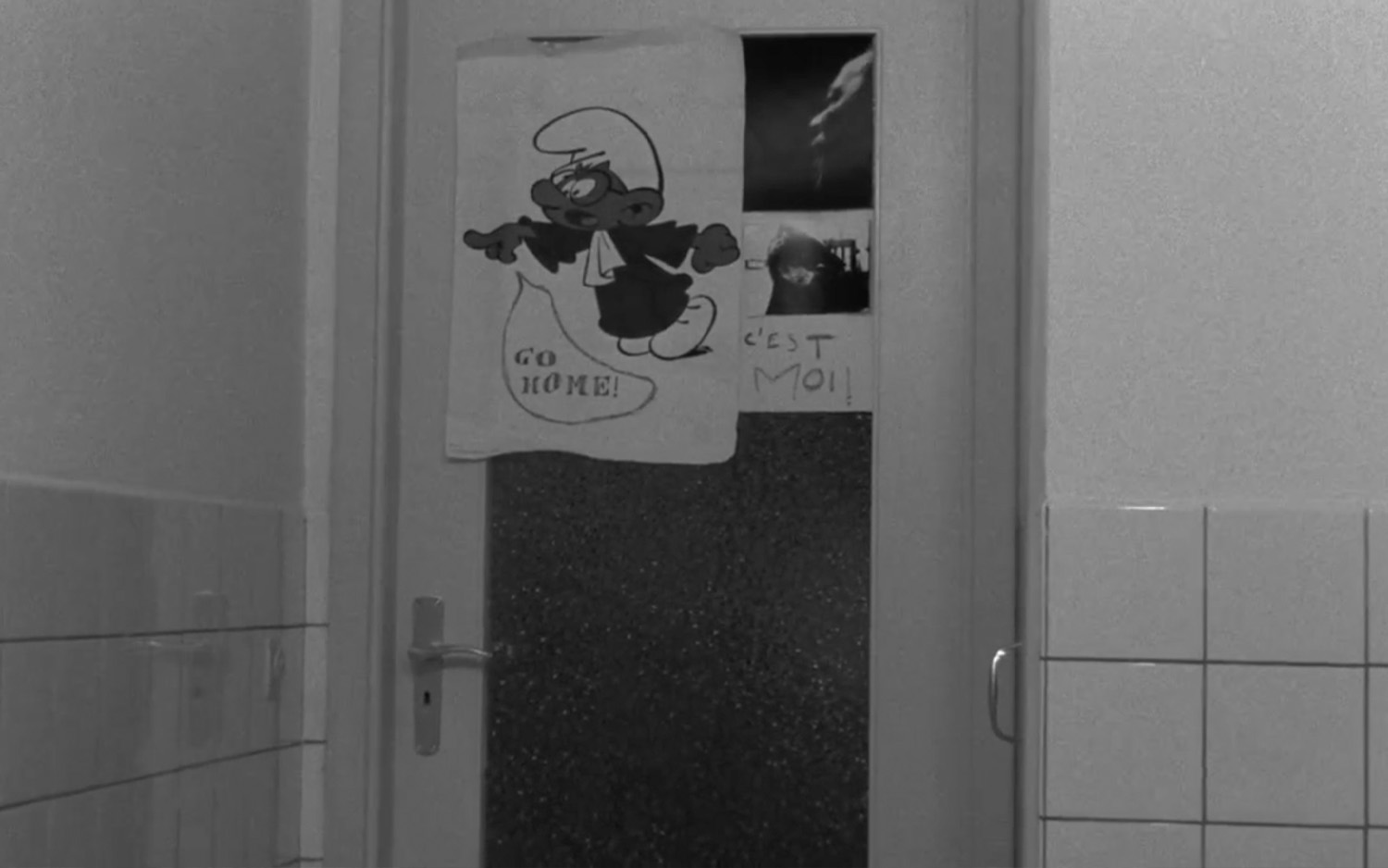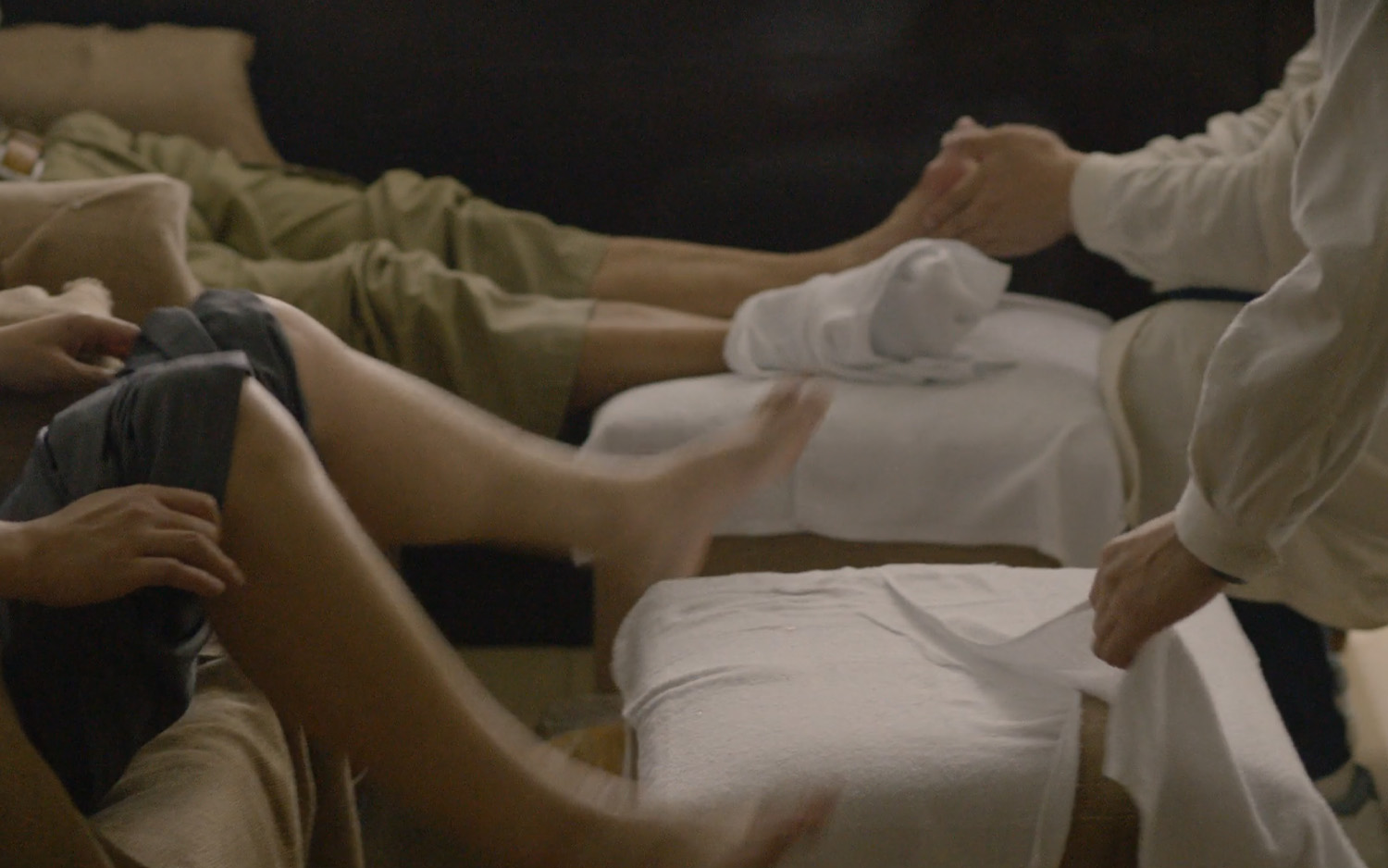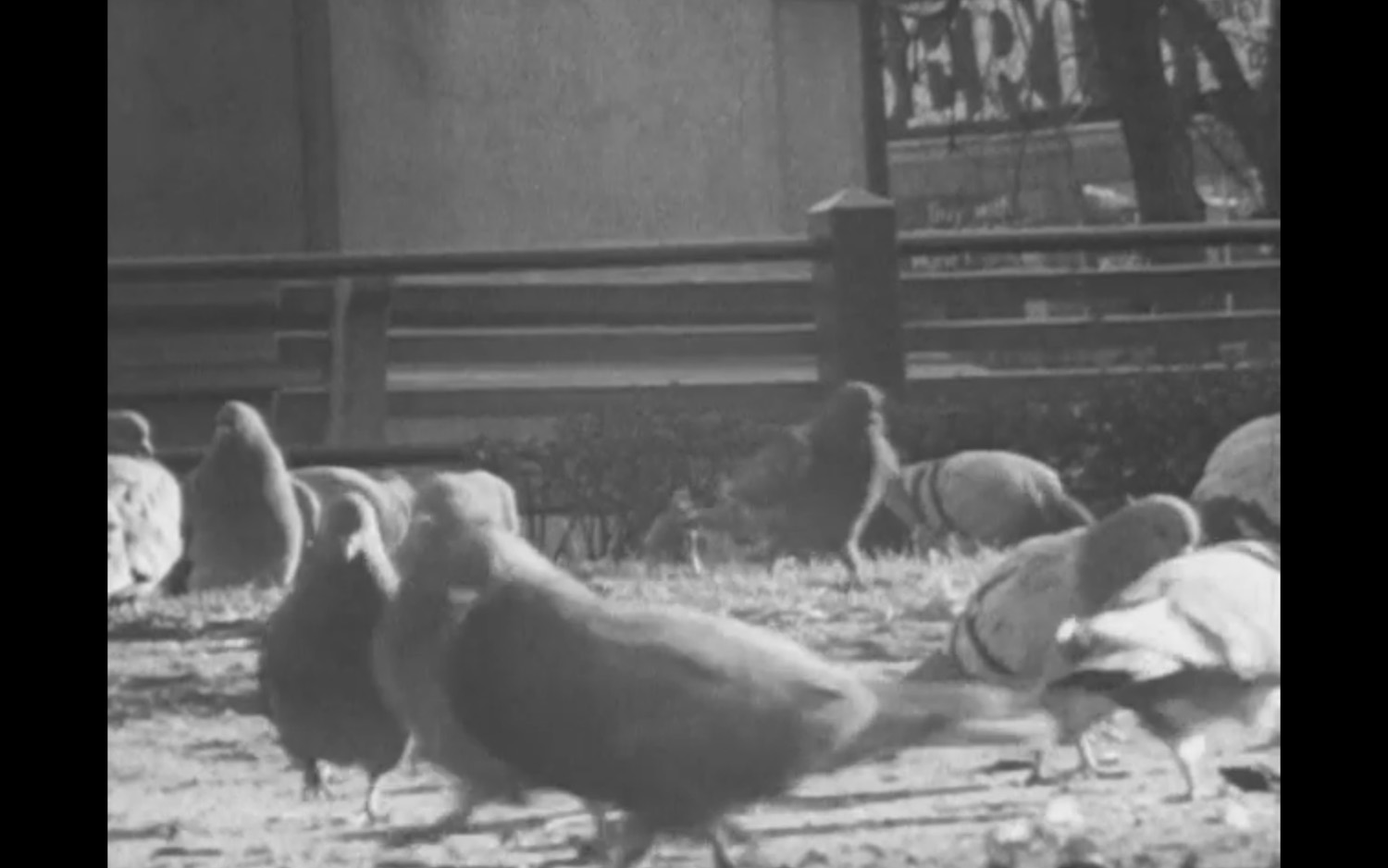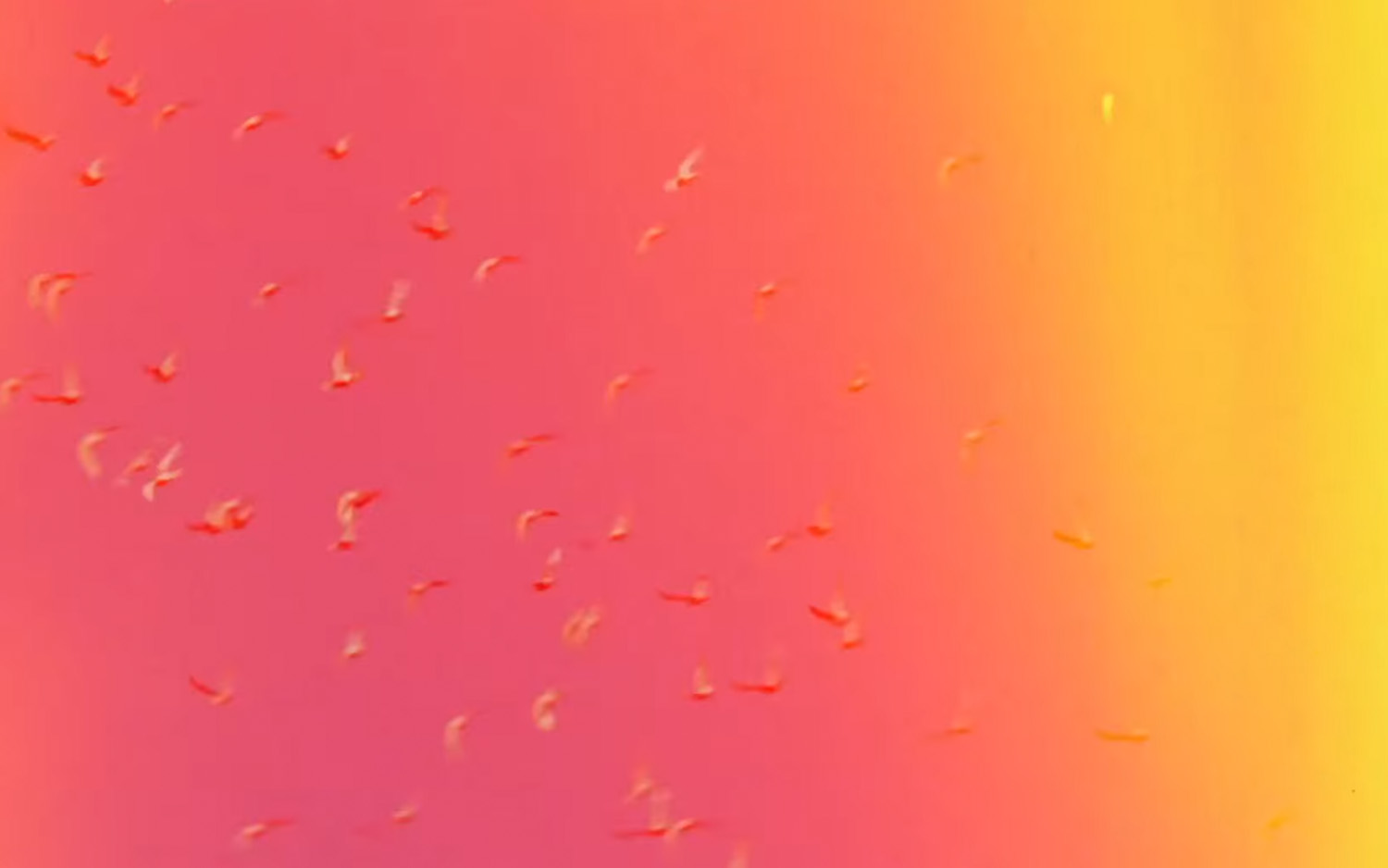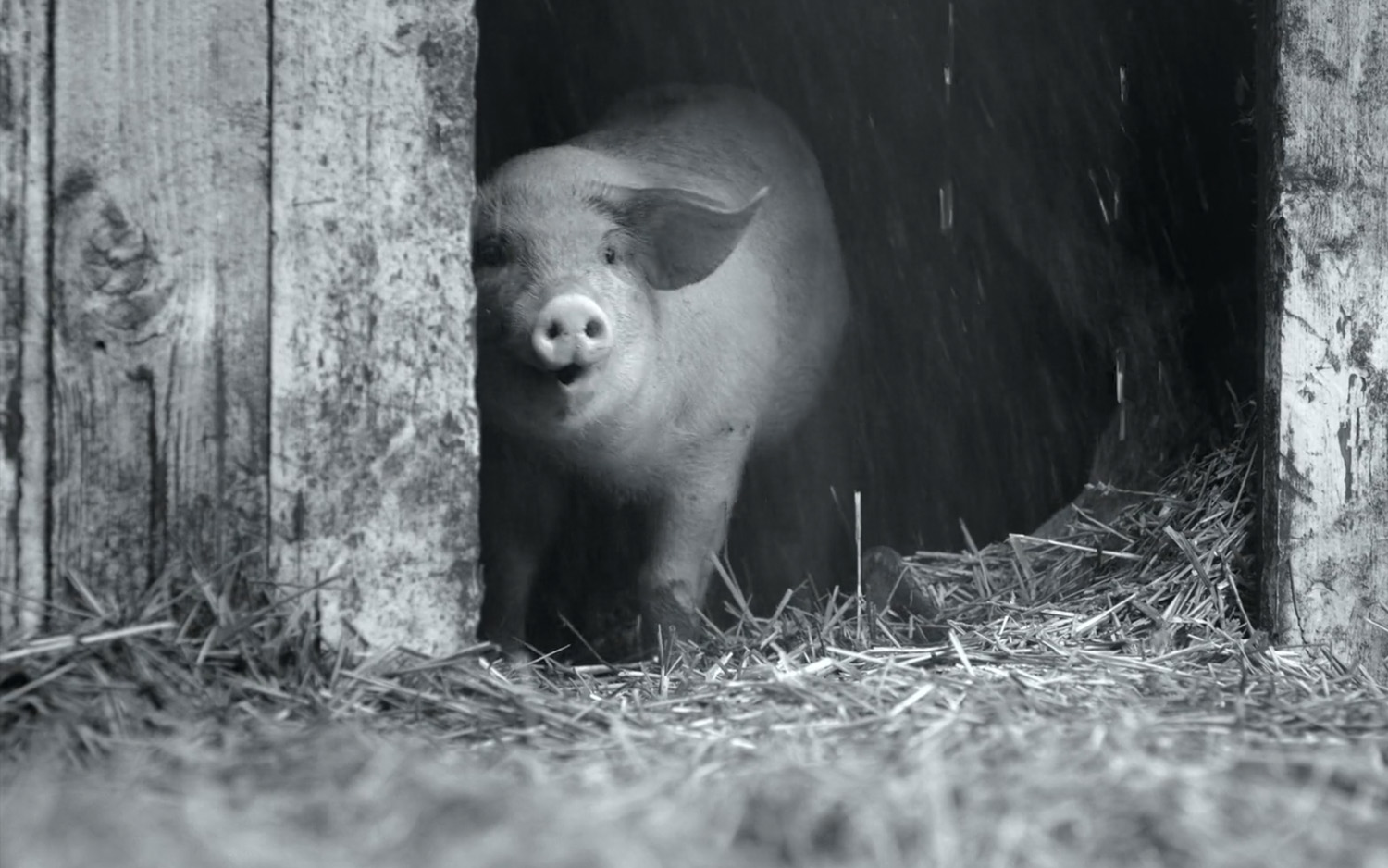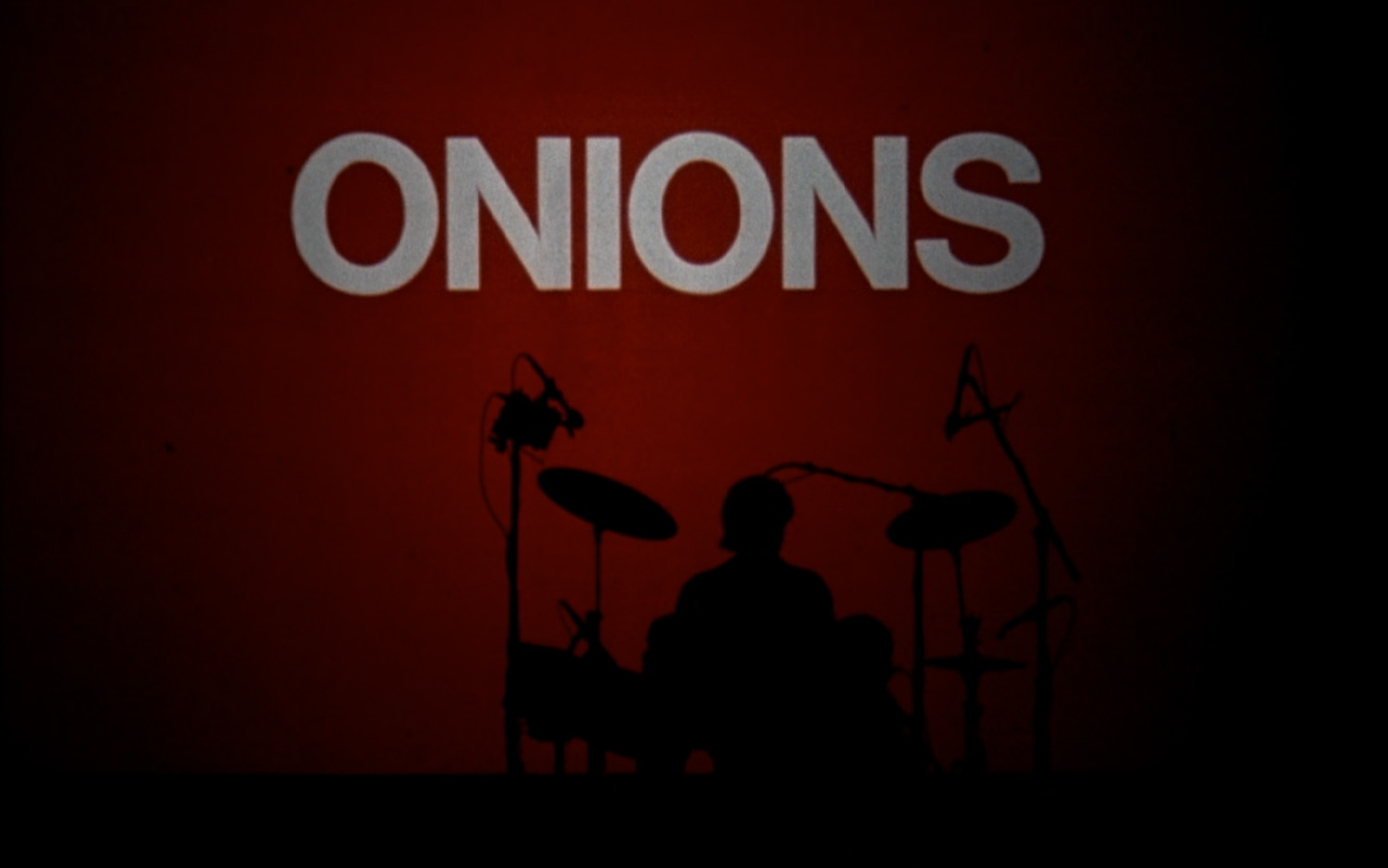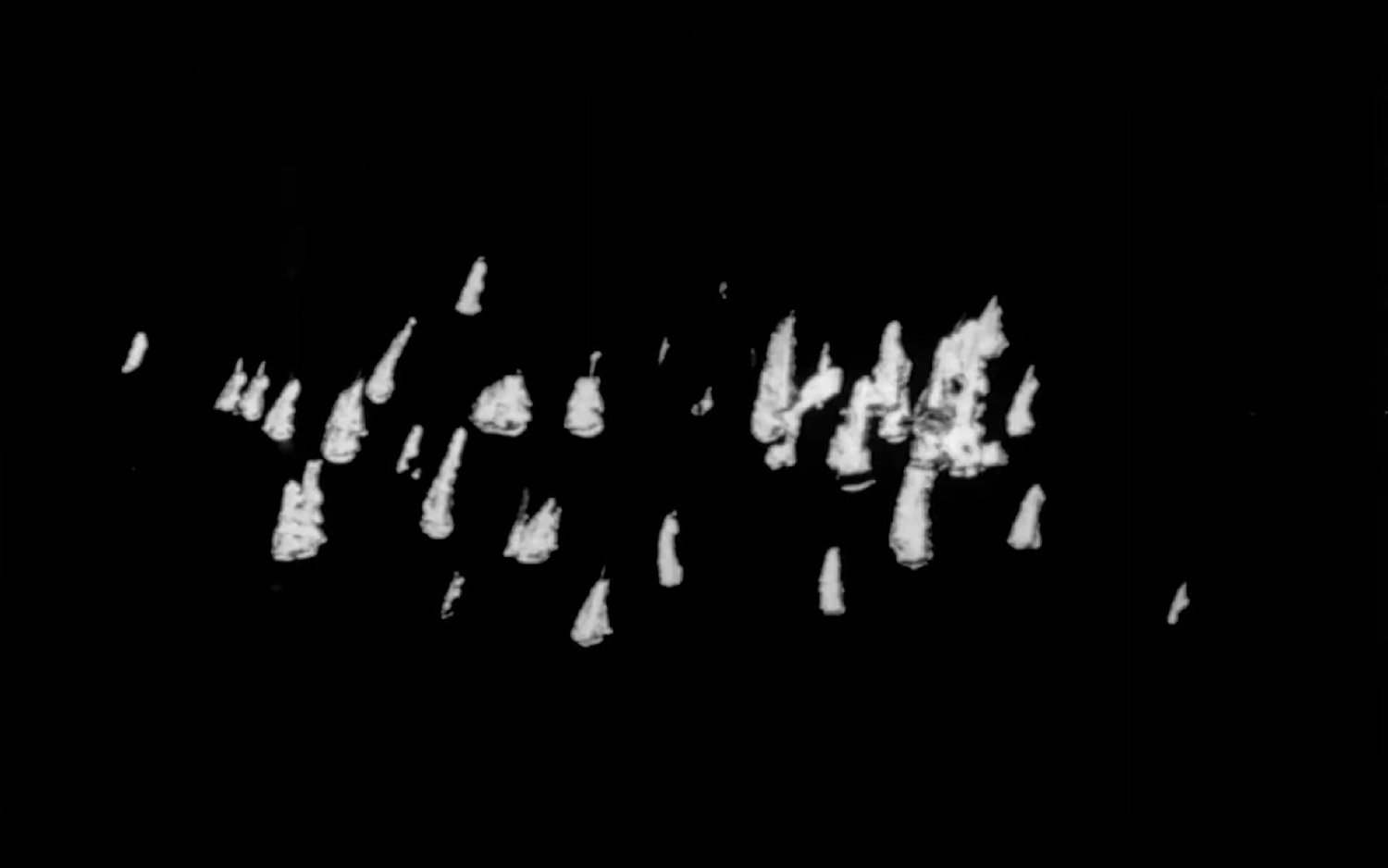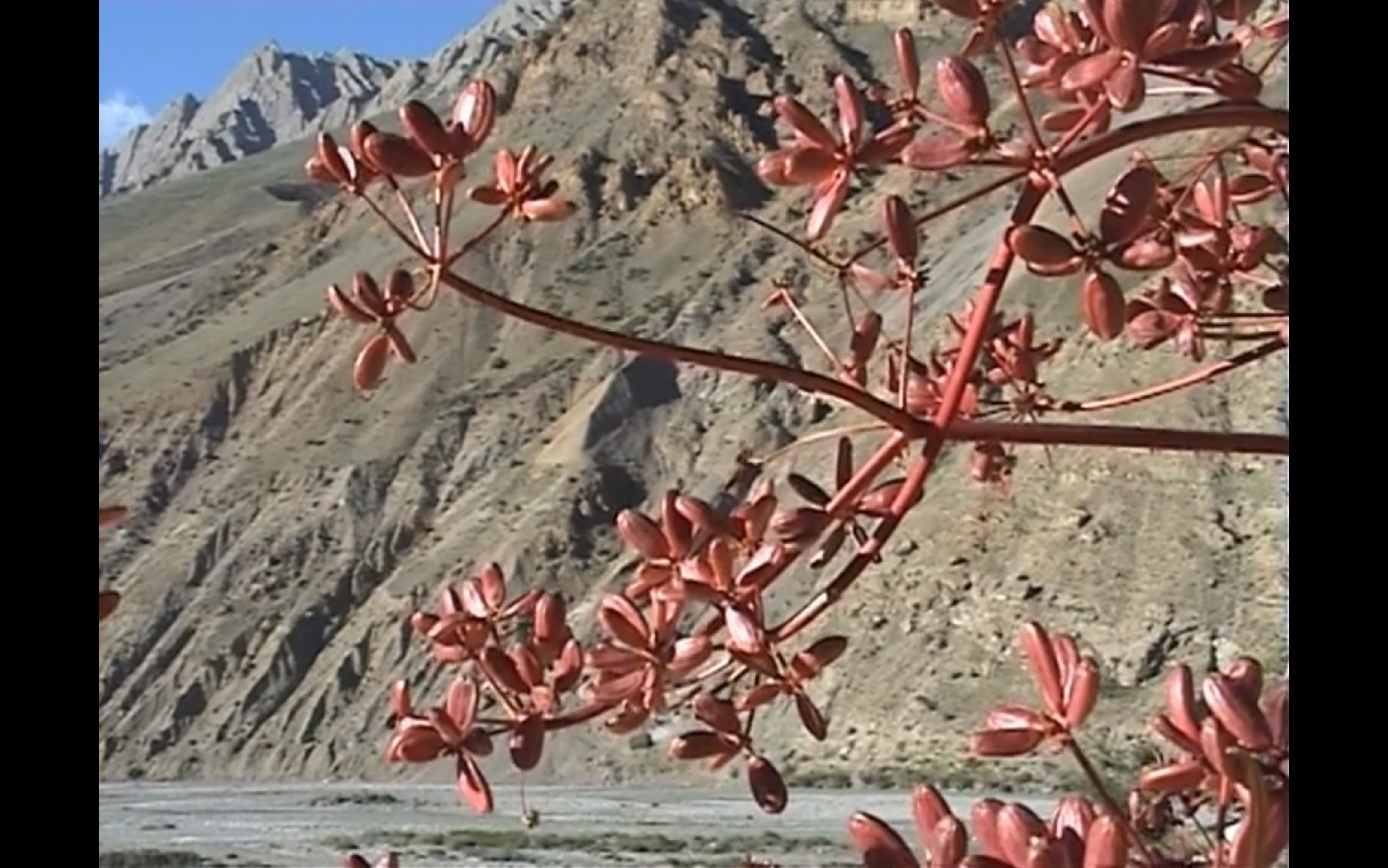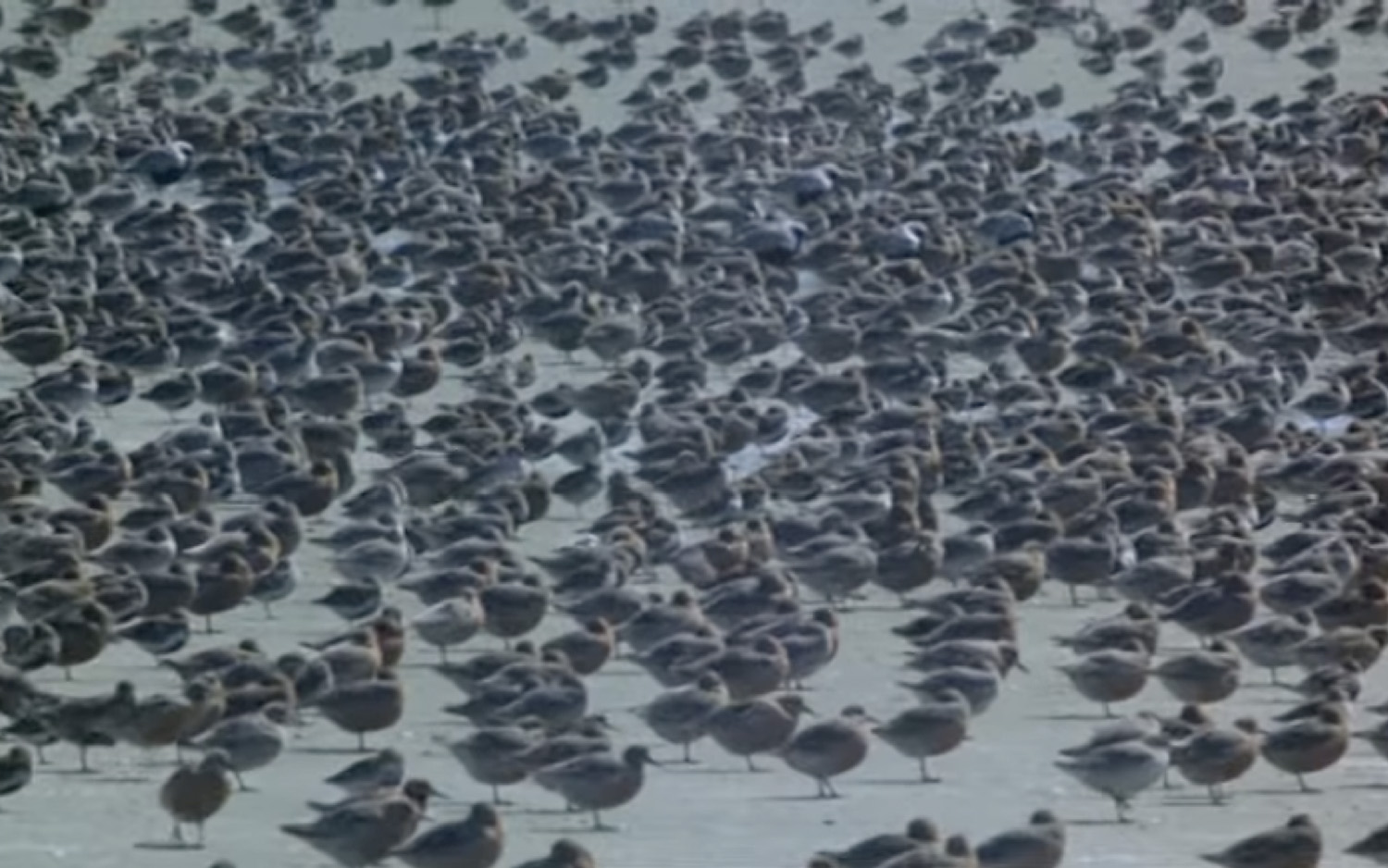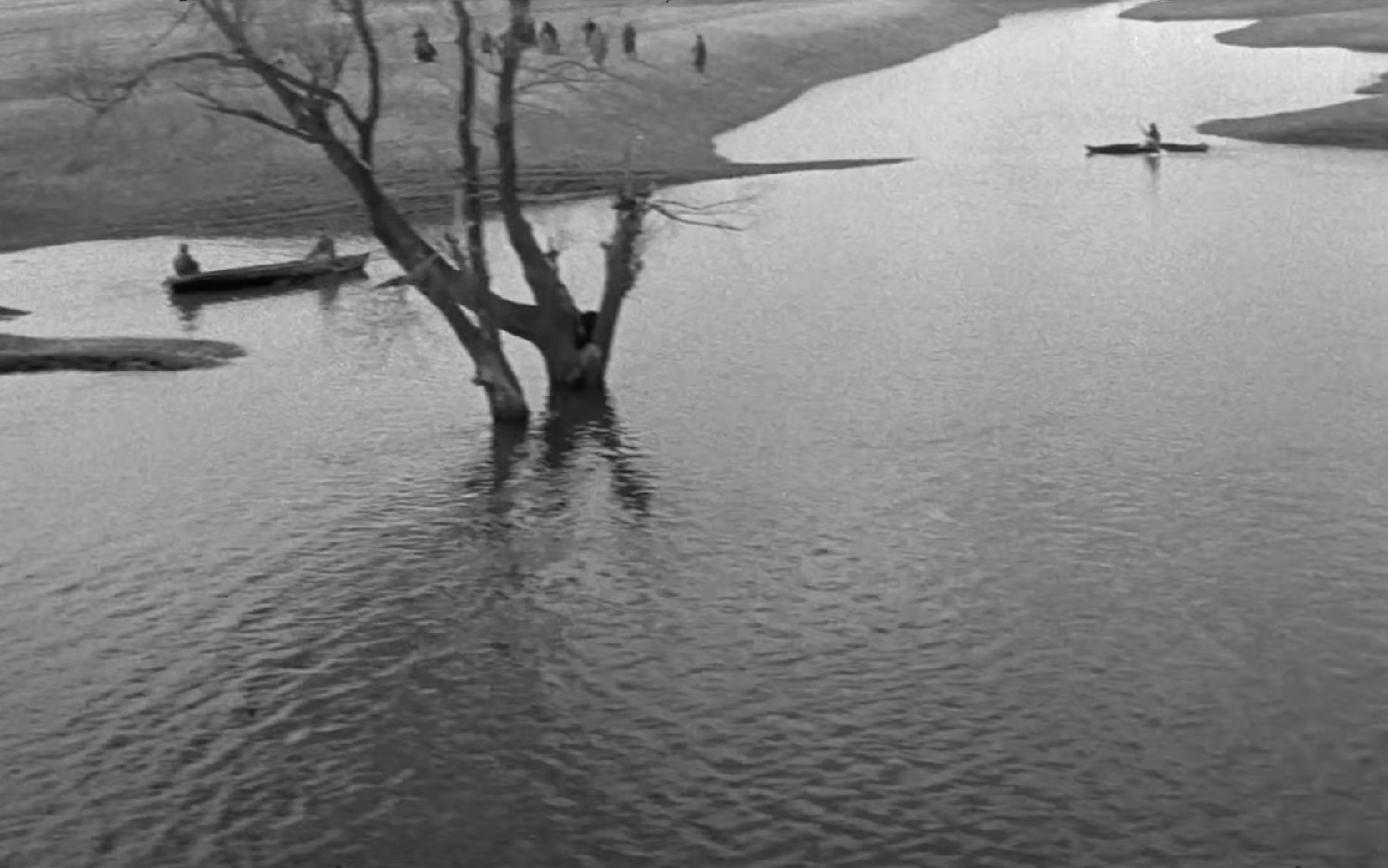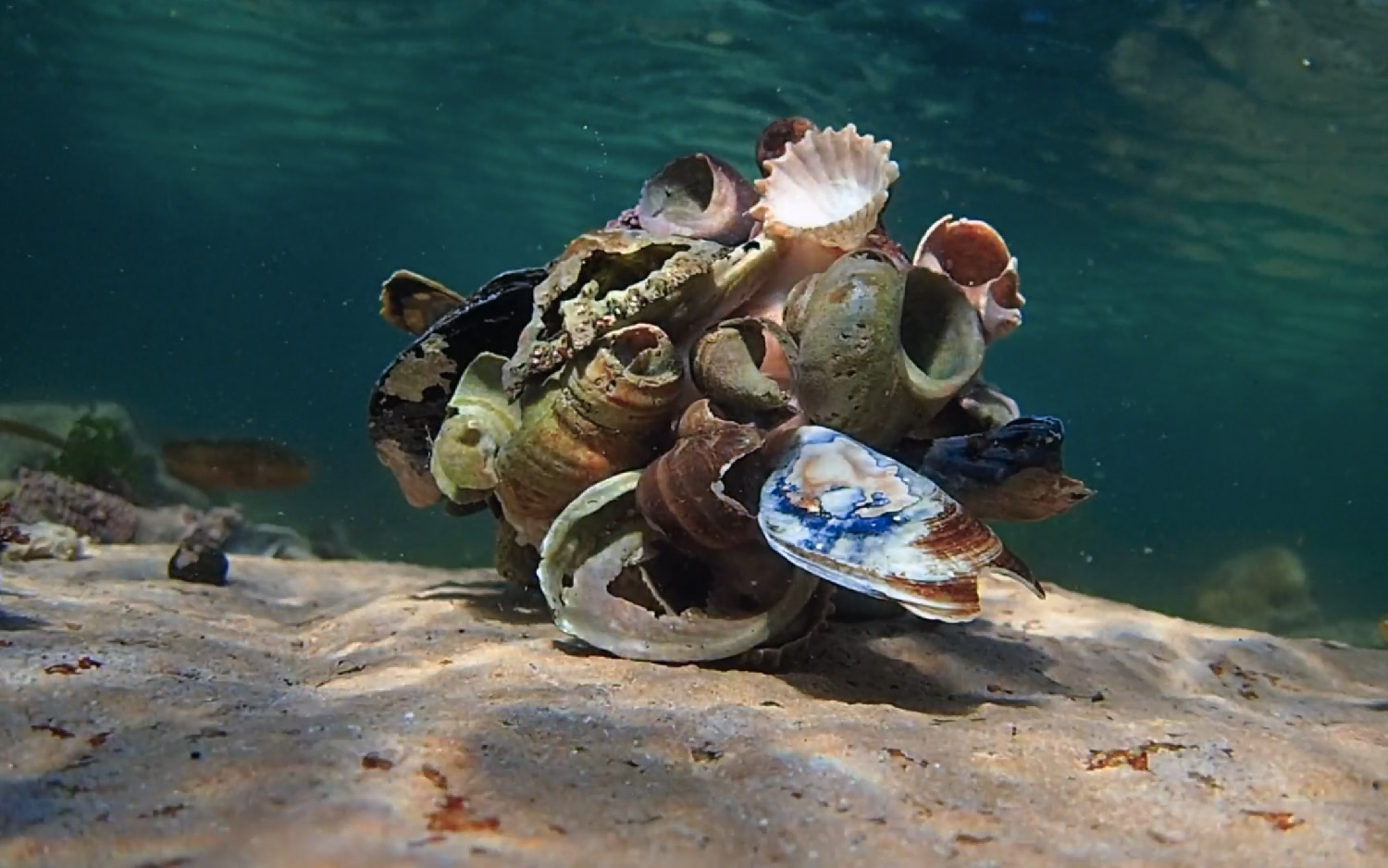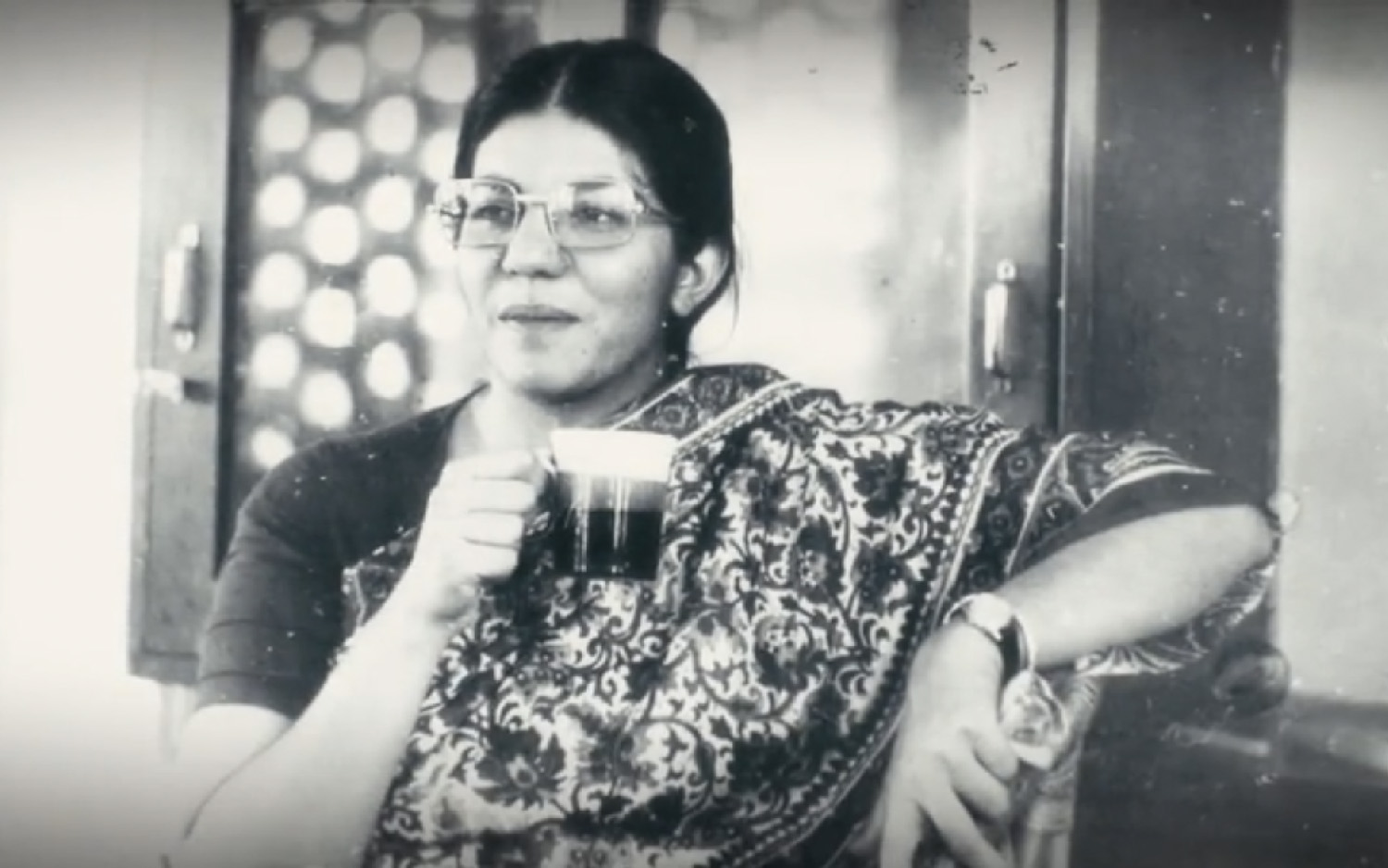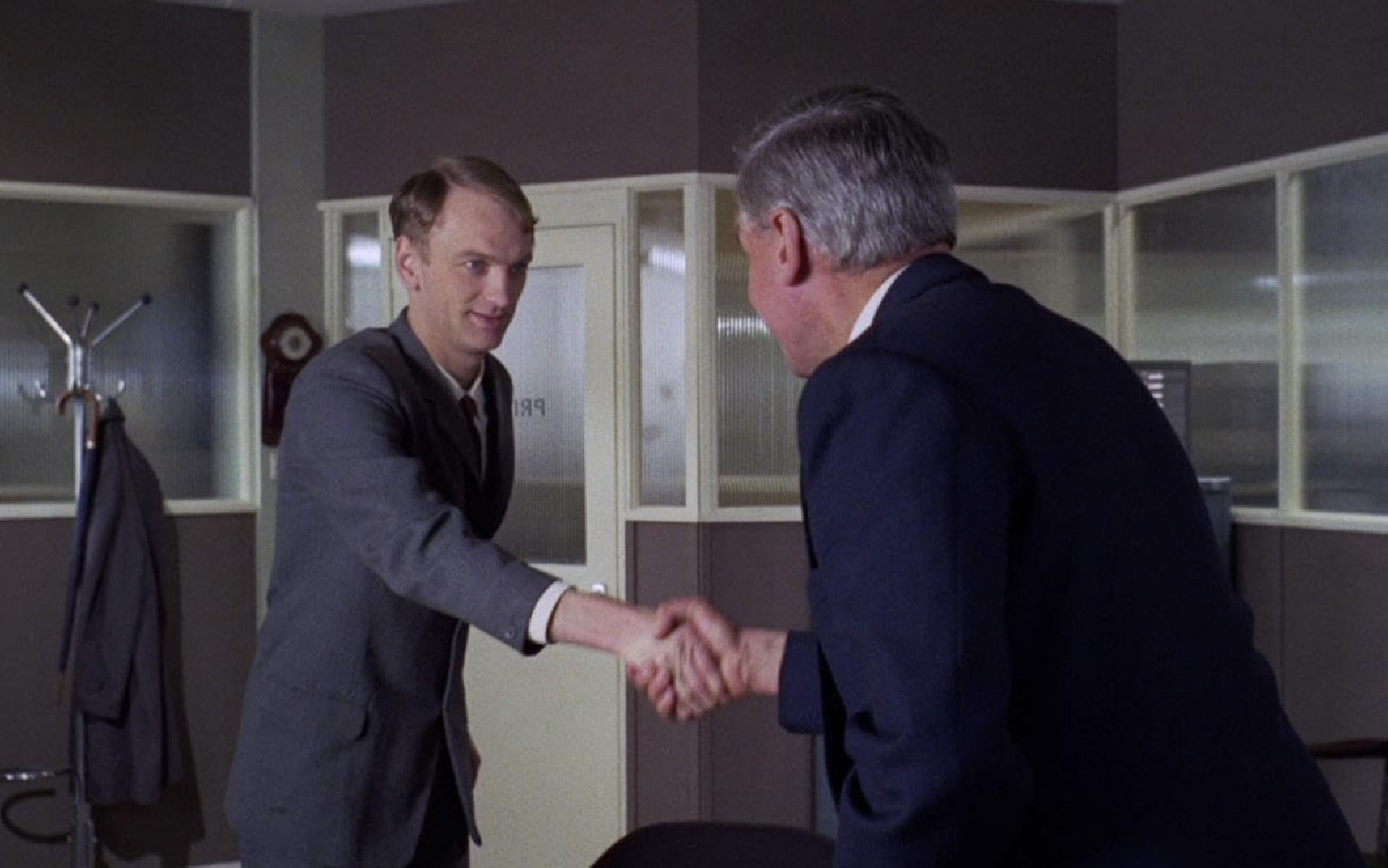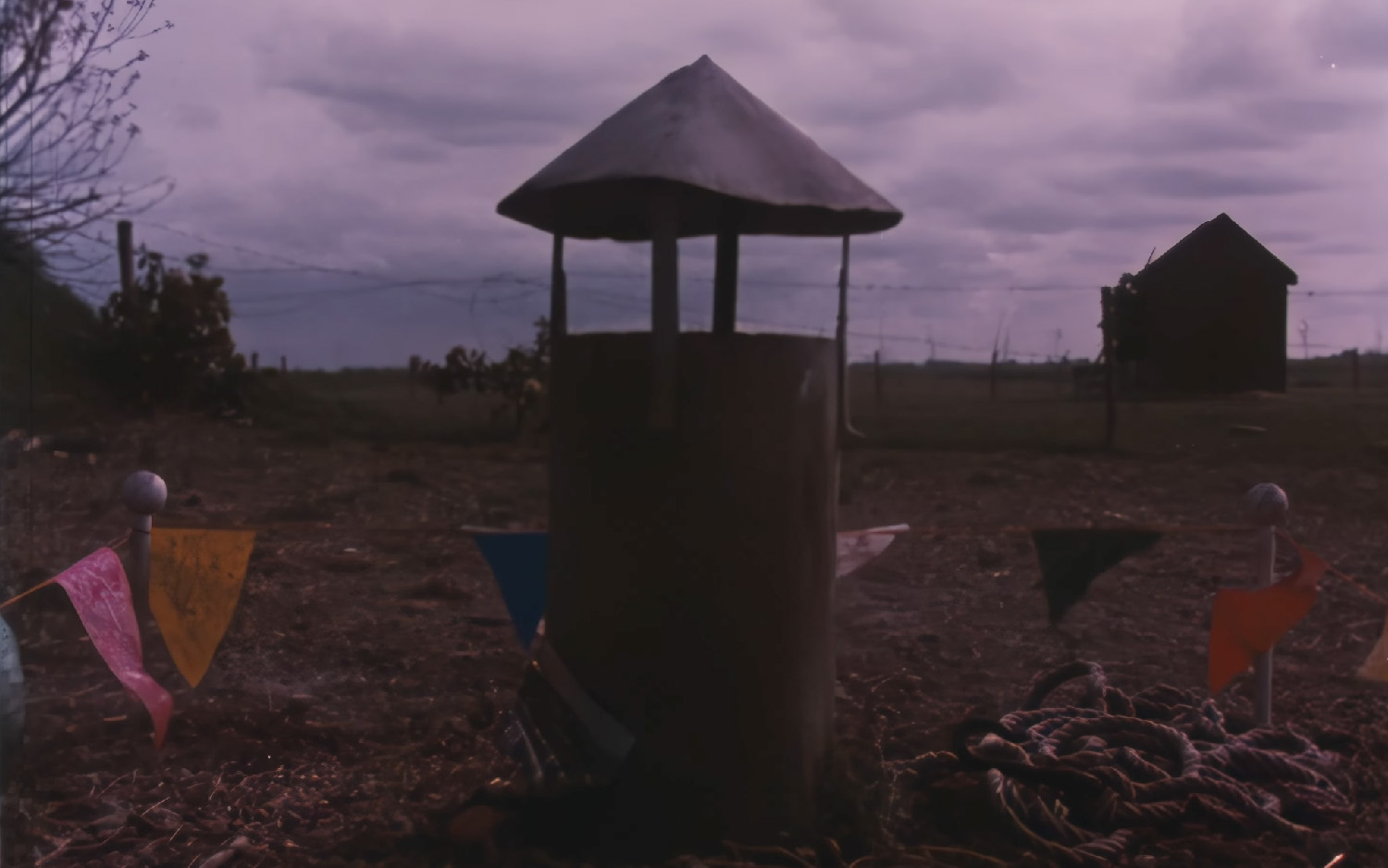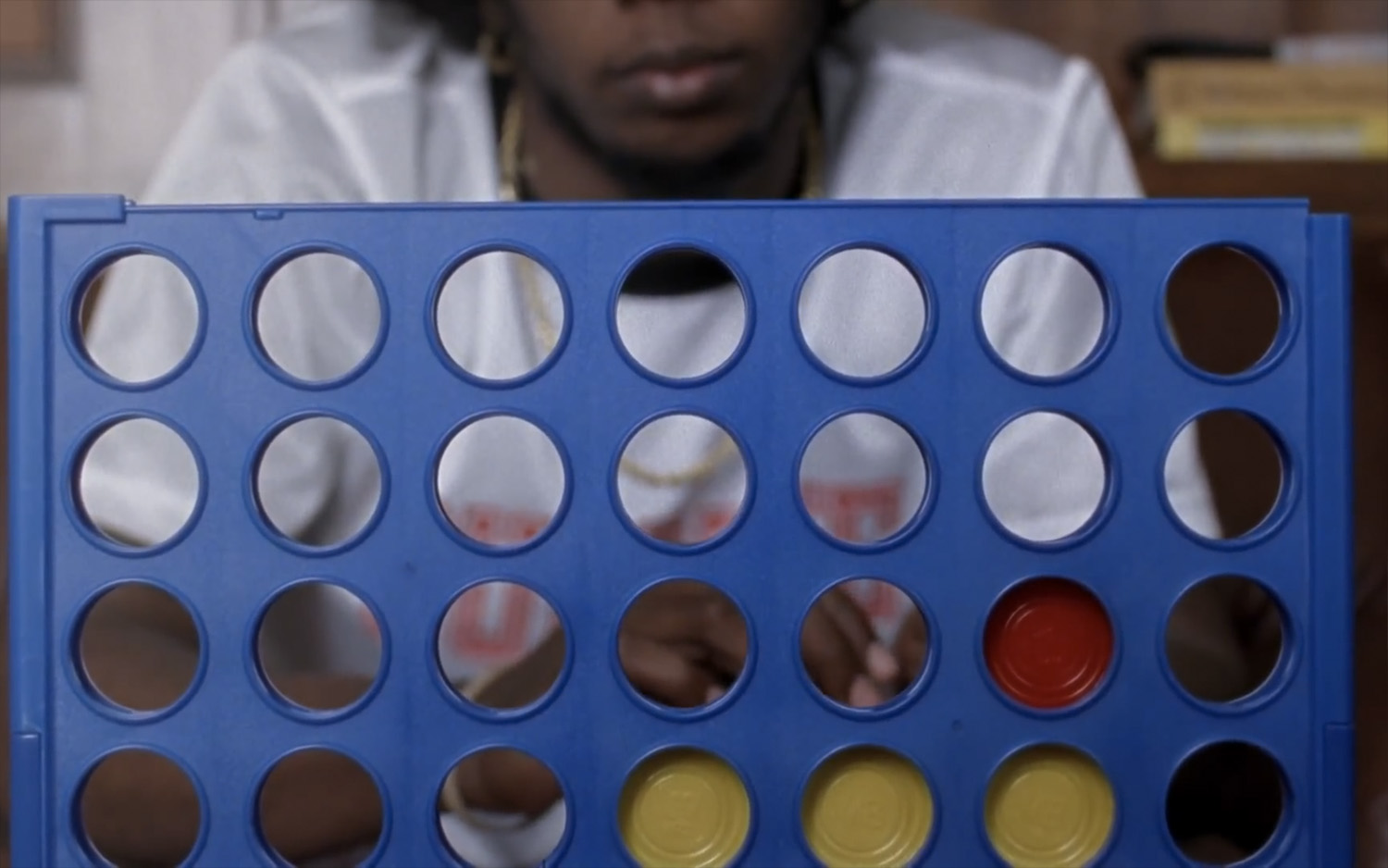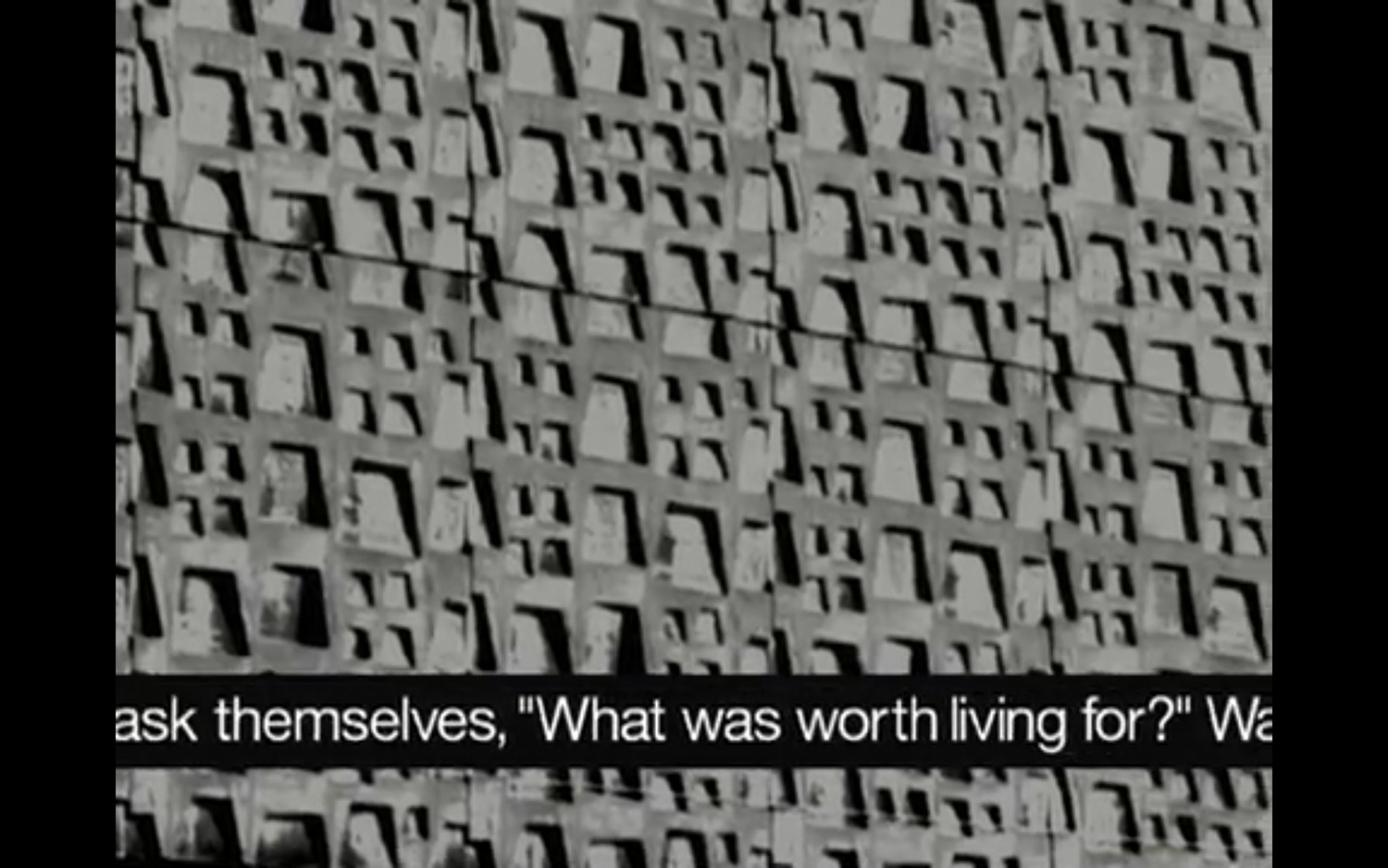bly is no kino
is a collection of films. it is a branch of the collective it is part of an ensemble. these films function as an pirate archive of references related to our projects. we also love to share them with guests and visitors.
Ensemble for Somnambulists
La Moindre des choses
is a 1997 documentary by Nicolas Philibert.
During the summer of 1995, faithful to what has now become a tradition, residents and staff at the La Borde psychiatric clinic get together to put on the play that they will perform in August. The film records the ups and downs of this adventure, but also describes life at La Borde.

During the summer of 1995, faithful to what has now become a tradition, residents and staff at the La Borde psychiatric clinic get together to put on the play that they will perform in August. The film records the ups and downs of this adventure, but also describes life at La Borde.

Invisible Landscapes
is a 2022 documentary by Ivo Bystřičan.
This film, which is based on the field-recording research method, gives space to the physical places where important energy, natural, and political processes take place. "What are sounds that we don’t attach any importance to in our everyday lives trying to tell us and how can they predict the sequence of events that affects our lives?" Here, sound becomes a tool that can oftentimes capture geological time better than an image.

This film, which is based on the field-recording research method, gives space to the physical places where important energy, natural, and political processes take place. "What are sounds that we don’t attach any importance to in our everyday lives trying to tell us and how can they predict the sequence of events that affects our lives?" Here, sound becomes a tool that can oftentimes capture geological time better than an image.

Die Frau mit den 5 Elefanten
is a 1986 documentary by Vadim Jendreyko.
Svetlana Geier is the world's greatest translator of Russian literature, renowned for her translations of Dostoevsky's novels, but her success has also come with its share of loss. While Geier's unique gift for languages saved her, it also forced her to make a choice that forever altered her life.

Svetlana Geier is the world's greatest translator of Russian literature, renowned for her translations of Dostoevsky's novels, but her success has also come with its share of loss. While Geier's unique gift for languages saved her, it also forced her to make a choice that forever altered her life.

Houba
is a 2000 short film by Vít Janeček.
This film essay about mushrooms and their connections to other living things tries to use the structure of mushrooms to explain nature, science, and civilization, all the while searching for various analogies, such as the similarities between mycorrhiza and other structures.

This film essay about mushrooms and their connections to other living things tries to use the structure of mushrooms to explain nature, science, and civilization, all the while searching for various analogies, such as the similarities between mycorrhiza and other structures.

La Soufrière
is a 1977 short film by Werner Herzog.
In 1976 volcanic scientists believed that the Caribbean Island of Guadeloupe was to about to blow up with the explosive power of five or six atomic bombs. The entire town was evacuated, except one peasant who refused to leave. And of course our intrepid Herzog... (caution: contains animal cruelty)

In 1976 volcanic scientists believed that the Caribbean Island of Guadeloupe was to about to blow up with the explosive power of five or six atomic bombs. The entire town was evacuated, except one peasant who refused to leave. And of course our intrepid Herzog... (caution: contains animal cruelty)

The Company of Wolves
is a 1984 film by Neil Jordan.
An adaptation of Angela Carter's fairy tales, who also directly contributed to the screenplay of this film. The film is a feminist attempt to deconstruct the mythology of the Little Red Riding Hood folktale. Young Rosaleen dreams of a village in the dark woods, where Granny tells her cautionary tales in which innocent maidens are tempted by wolves who are hairy on the inside. As Rosaleen grows into womanhood, will the wolves come for her too?

An adaptation of Angela Carter's fairy tales, who also directly contributed to the screenplay of this film. The film is a feminist attempt to deconstruct the mythology of the Little Red Riding Hood folktale. Young Rosaleen dreams of a village in the dark woods, where Granny tells her cautionary tales in which innocent maidens are tempted by wolves who are hairy on the inside. As Rosaleen grows into womanhood, will the wolves come for her too?

Herbaria
is a 2022 documentary by Leandro Listorti.
A parallel between two worlds: that of plants and that of cinema. This delicate cinematographic work, full of beautiful images—both archival and current—gives an account of the immense work of classification and preservation, and generously invites us to think about forms of representation and memory.

A parallel between two worlds: that of plants and that of cinema. This delicate cinematographic work, full of beautiful images—both archival and current—gives an account of the immense work of classification and preservation, and generously invites us to think about forms of representation and memory.

La Ville Louvre
is a 1990 documentary by Nicolas Philibert.
A voyage into the museum's reserves, and part of the extra work involved to mount the expositions after the renovation of the Louvre in the 1980s, when the glass pyramid was added to the classic buildings. From the preservation rooms through the frame and painting retouches by experts, to the personnel instruction on how to be efficient in protecting the collections, and look nice to the visitors.

A voyage into the museum's reserves, and part of the extra work involved to mount the expositions after the renovation of the Louvre in the 1980s, when the glass pyramid was added to the classic buildings. From the preservation rooms through the frame and painting retouches by experts, to the personnel instruction on how to be efficient in protecting the collections, and look nice to the visitors.

Fake Fruit Factory
is a 1986 short film by Chick Strand.
Intimate documentary about young women who make papier mache fruit and vegetables in a small factory in Mexico. They have a gringo boss, but the factory is owned by his Mexican wife. The focus of the film is on the color, music and movement involved, and the gossip which goes on constantly, revealing what the young women think about men.

Intimate documentary about young women who make papier mache fruit and vegetables in a small factory in Mexico. They have a gringo boss, but the factory is owned by his Mexican wife. The focus of the film is on the color, music and movement involved, and the gossip which goes on constantly, revealing what the young women think about men.

De poes
is a 1968 short film by Johan van der Keuken.
The filmmaker explains: "Some fifteen filmmakers were asked to make a film series in a relay style for a very popular variety program on Dutch television: each new program was to start from the last image of the previous program, developing the story from that image. It was necessary to work according to codes of the crime thriller. I 'sabotaged' these codes, following a close-up of a pistol, inherited from my predecessor, by a series of comic observations of my cat, accompanied by a text on the need to innovate methods of expression and communication in cinema."

The filmmaker explains: "Some fifteen filmmakers were asked to make a film series in a relay style for a very popular variety program on Dutch television: each new program was to start from the last image of the previous program, developing the story from that image. It was necessary to work according to codes of the crime thriller. I 'sabotaged' these codes, following a close-up of a pistol, inherited from my predecessor, by a series of comic observations of my cat, accompanied by a text on the need to innovate methods of expression and communication in cinema."

Corpus Animale
is a trilogy by Laurence Favre, made between 2017 and 2024.
A glacier, a forest, a desert: they triggered three films, Résistance (2017), Osmose (2022), and Zerzura (2024) respectively. Laurence Favre placed her eyes and ears as a film artist within these elements in order to let them speak from the distance of their gigantic scale. Through the films, the distance of our perception evaporates, and they start to speak as one living body.

A glacier, a forest, a desert: they triggered three films, Résistance (2017), Osmose (2022), and Zerzura (2024) respectively. Laurence Favre placed her eyes and ears as a film artist within these elements in order to let them speak from the distance of their gigantic scale. Through the films, the distance of our perception evaporates, and they start to speak as one living body.

Jobs for All!
is a 2020 short film by Maximilien Van Aertryck and Axel Danielson.
Highly choreographed review of the Industrial Age as we know it today – an intense and playful roller coaster ride that demands the viewer confronts how "work works". Culled entirely from archival footage, the film unfolds in the filmmakers' trademark, and humorously critical, cinematic voices.

Highly choreographed review of the Industrial Age as we know it today – an intense and playful roller coaster ride that demands the viewer confronts how "work works". Culled entirely from archival footage, the film unfolds in the filmmakers' trademark, and humorously critical, cinematic voices.

Bamssi
is a 2024 short film by Mourad Ben Amor.
The road, the house, the key, the animals, Bamssi. Images with the urgency of an Instagram story create a dialogue within the family across the sea: Mourad and Fairuz, Tunisia and abroad. The sound of the train carries a disturbing longing. The image of the sea opens up a dangerous desire. To stay. To dream. Time passes both slowly and quickly when the possibility of new life disrupts the routine.

The road, the house, the key, the animals, Bamssi. Images with the urgency of an Instagram story create a dialogue within the family across the sea: Mourad and Fairuz, Tunisia and abroad. The sound of the train carries a disturbing longing. The image of the sea opens up a dangerous desire. To stay. To dream. Time passes both slowly and quickly when the possibility of new life disrupts the routine.

Simona
is a 2022 documentary by Natalia Koryncka-Gruz.
Ida, the grandniece of Simona Kossak, a famous Polish Białowieża Forest protector, is following her remarkable life and uncovers family secrets through sorting old pictures of Simona and wild animals. A story about the power of nature and meaning of ecosystem in our lives.

Ida, the grandniece of Simona Kossak, a famous Polish Białowieża Forest protector, is following her remarkable life and uncovers family secrets through sorting old pictures of Simona and wild animals. A story about the power of nature and meaning of ecosystem in our lives.

Mensen van morgen
A Month of Single Frames
is a 2019 short film by Barbara Hammer and Lynne Sachs.
In 1998, filmmaker Barbara Hammer had an artist residency in a shack without running water or electricity. While there, she shot film, recorded sounds and kept a journal. In 2018, Barbara began her own process of dying by revisiting her personal archive. She gave all of her images, sounds and writing from the residency to filmmaker Lynne Sachs and invited her to make a film with the material. Through her own filmmaking, Lynne explores Barbara's experience of solitude. She places text on the screen as a confrontation with a somatic cinema that brings us all together in multiple spaces and times.

In 1998, filmmaker Barbara Hammer had an artist residency in a shack without running water or electricity. While there, she shot film, recorded sounds and kept a journal. In 2018, Barbara began her own process of dying by revisiting her personal archive. She gave all of her images, sounds and writing from the residency to filmmaker Lynne Sachs and invited her to make a film with the material. Through her own filmmaking, Lynne explores Barbara's experience of solitude. She places text on the screen as a confrontation with a somatic cinema that brings us all together in multiple spaces and times.

Lektionen in Finsternis
Picasso and Braque Go to the Movies
Abstronic
is a 1952 experimental film by Mary Ellen Bute.
As a pioneer of visual music and electronic art, she produced over a dozen short abstract animations. Set to classical music and replete with rapidly mutating geometries, Bute's filmmaking is at once formally rigorous and energetically high-spirited, like a marriage of high modernism and Merrie Melodies.
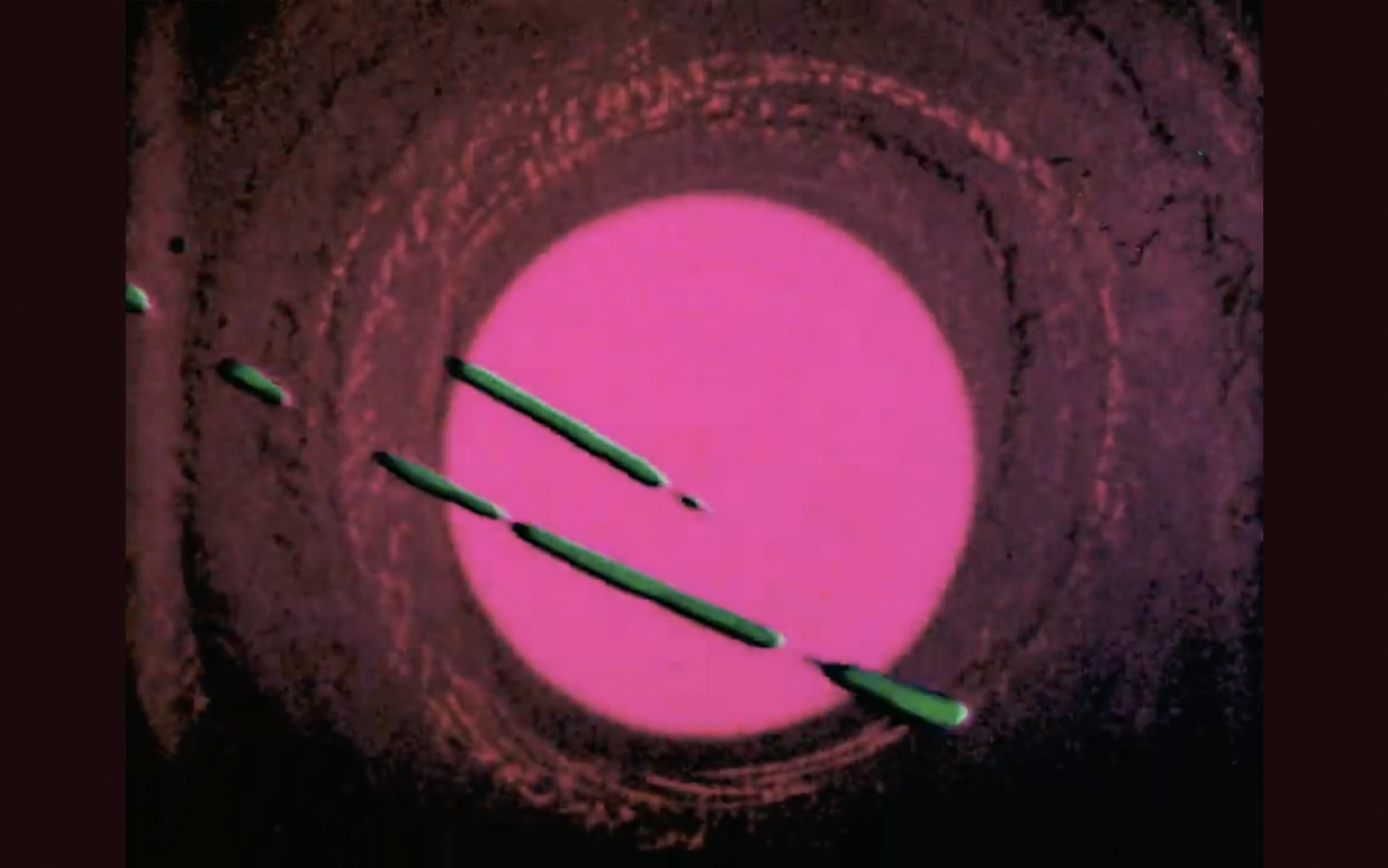
As a pioneer of visual music and electronic art, she produced over a dozen short abstract animations. Set to classical music and replete with rapidly mutating geometries, Bute's filmmaking is at once formally rigorous and energetically high-spirited, like a marriage of high modernism and Merrie Melodies.

Das Netz
is a 2003 documentary by Lutz Dammbeck.
The film explores the incredibly complex backstory of Ted Kaczynski, the infamous Unabomber. This exquisitely crafted inquiry into the rationale of this mythic figure situates him within a late 20th Century web of technology - a system that he grew to oppose. A marvelously subversive approach to the history of the Internet, this insightful documentary combines speculative travelogue and investigative journalism to trace contrasting countercultural responses to the cybernetic revolution.
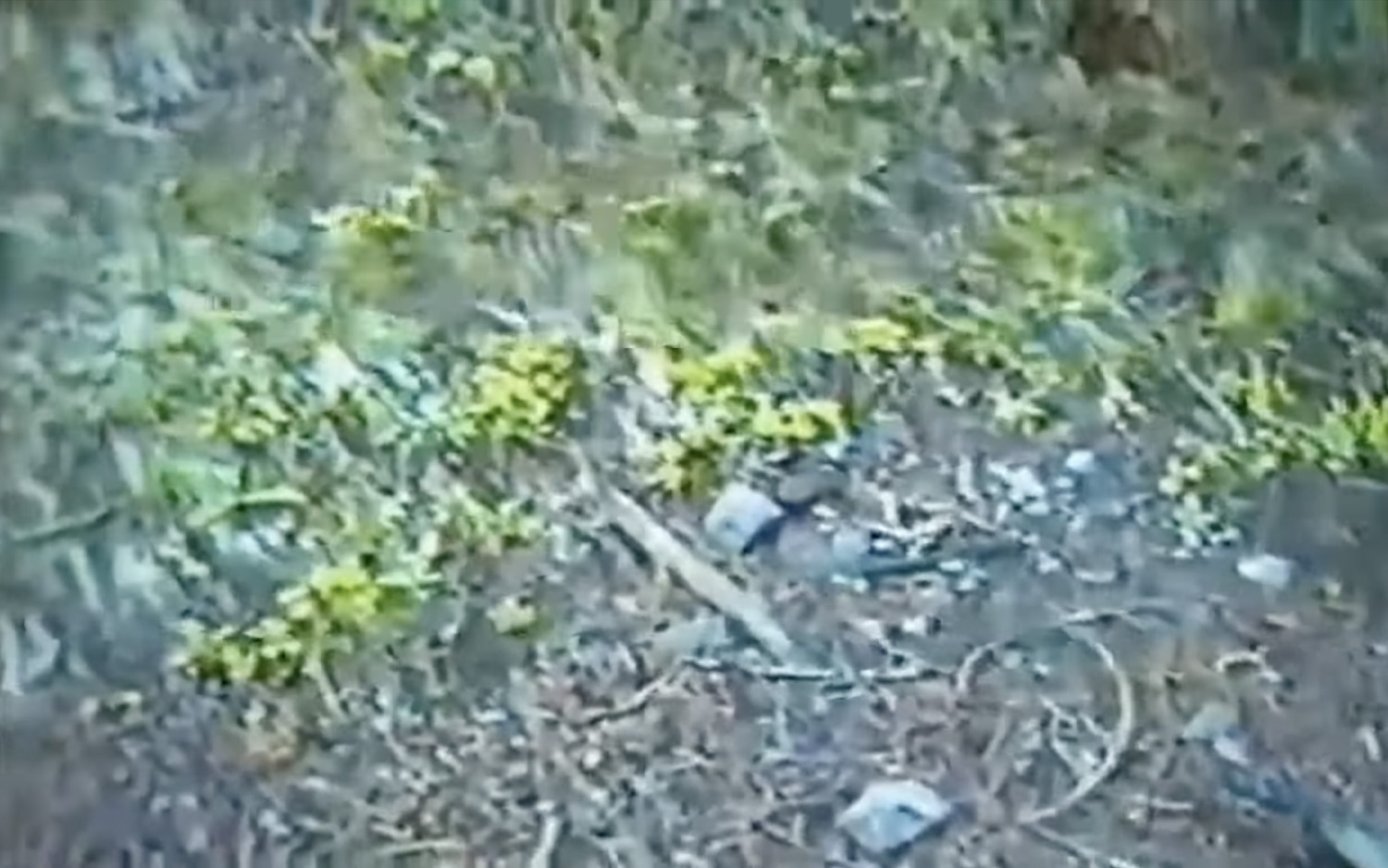
The film explores the incredibly complex backstory of Ted Kaczynski, the infamous Unabomber. This exquisitely crafted inquiry into the rationale of this mythic figure situates him within a late 20th Century web of technology - a system that he grew to oppose. A marvelously subversive approach to the history of the Internet, this insightful documentary combines speculative travelogue and investigative journalism to trace contrasting countercultural responses to the cybernetic revolution.

Night Colonies
is a 2021 short film by Apichatpong Weerasethakul.
Humming fluorescent lights illuminate a bedroom at night, drawing Chiang Mai's subtropical nightlife into a tiny, intimate, and temporary cohabitation - a buzzing and bustling ecosystem of insects and lizards, nested within the human domestic space.

Humming fluorescent lights illuminate a bedroom at night, drawing Chiang Mai's subtropical nightlife into a tiny, intimate, and temporary cohabitation - a buzzing and bustling ecosystem of insects and lizards, nested within the human domestic space.

Food
is a 1972 film by Gordon Matta-Clark.
This film documents the legendary SoHo restaurant and artists' cooperative Food, which opened in 1971. Owned and operated by Caroline Goodden, Food was designed and built largely by Matta-Clark, who also organized art events and performances there. (caution: contains animal cruelty)

This film documents the legendary SoHo restaurant and artists' cooperative Food, which opened in 1971. Owned and operated by Caroline Goodden, Food was designed and built largely by Matta-Clark, who also organized art events and performances there. (caution: contains animal cruelty)

Rat Life and Diet in North America
is a 1968 experimental film by Joyce Wieland.
The film tells a story about rats (actually pet gerbils) held as political prisoners in the United States (their jailer a cat), who make a heroic escape to Canada. Although this narrative is recounted through wryly worded intertitles, the film nonetheless conveys a sense of menace and urgency.
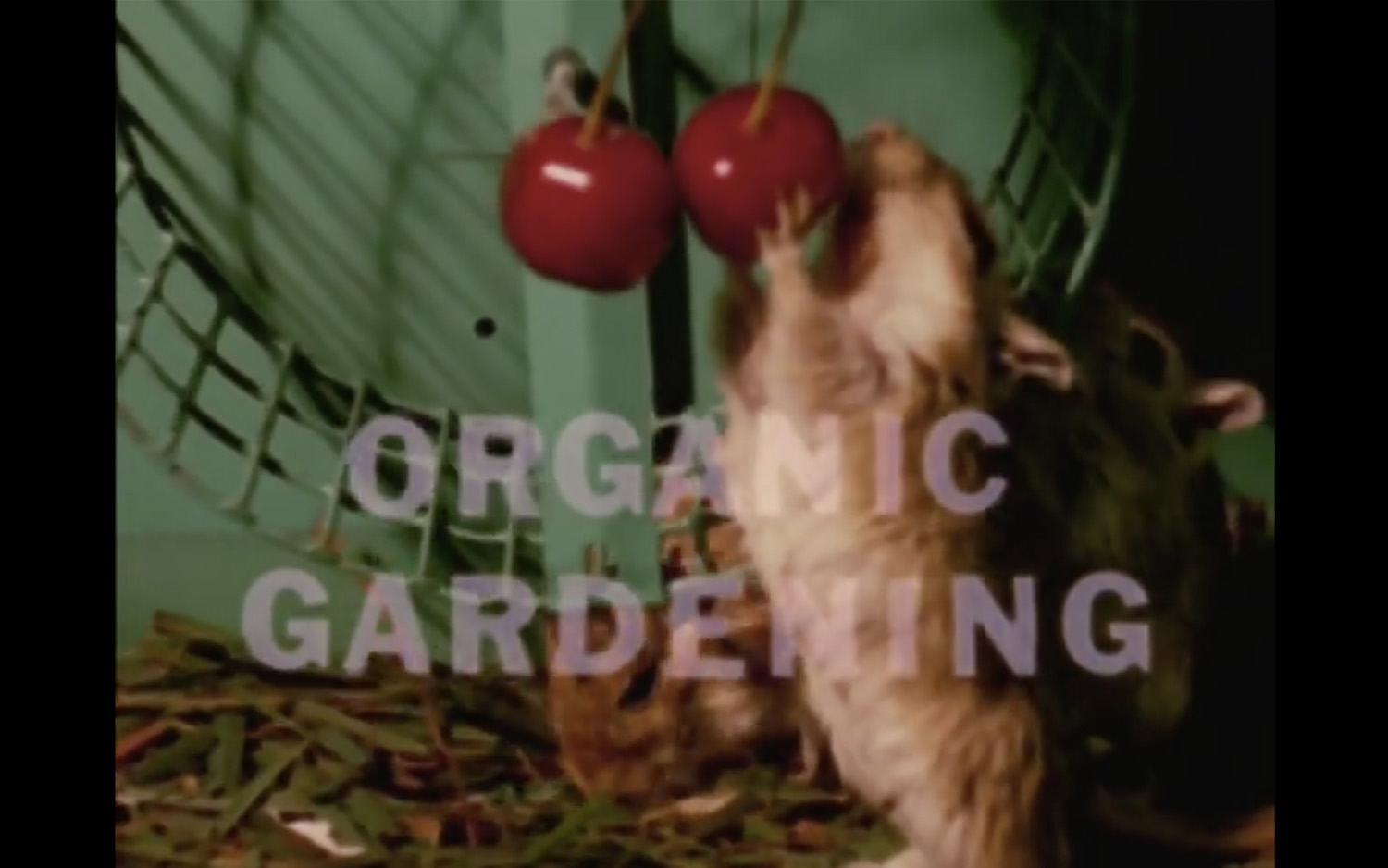
The film tells a story about rats (actually pet gerbils) held as political prisoners in the United States (their jailer a cat), who make a heroic escape to Canada. Although this narrative is recounted through wryly worded intertitles, the film nonetheless conveys a sense of menace and urgency.

Aquarela
The Devil and Daniel Johnston
is a 2005 documentary by Jeff Feuerzeig.
Portrait of Daniel Johnston, a manic depressive, defiantly lo-fi, cult singer/songwriter/artist, whose work has proved inspirational to fans and musicians alike. Mixing archive material and his prodigious films, drawings and music, Johnston is revealed in this portrait of madness, creative genius, and love.

Portrait of Daniel Johnston, a manic depressive, defiantly lo-fi, cult singer/songwriter/artist, whose work has proved inspirational to fans and musicians alike. Mixing archive material and his prodigious films, drawings and music, Johnston is revealed in this portrait of madness, creative genius, and love.

Kedi
is a 2016 documentary by Ceyda Torun.
Hundreds of thousands of Turkish cats roam the metropolis of Istanbul freely. They wander in and out of people's lives, becoming an essential part of the city. Claiming no owners, the cats live between two worlds, neither wild nor tame-bringing joy and purpose to the people they choose to adopt.
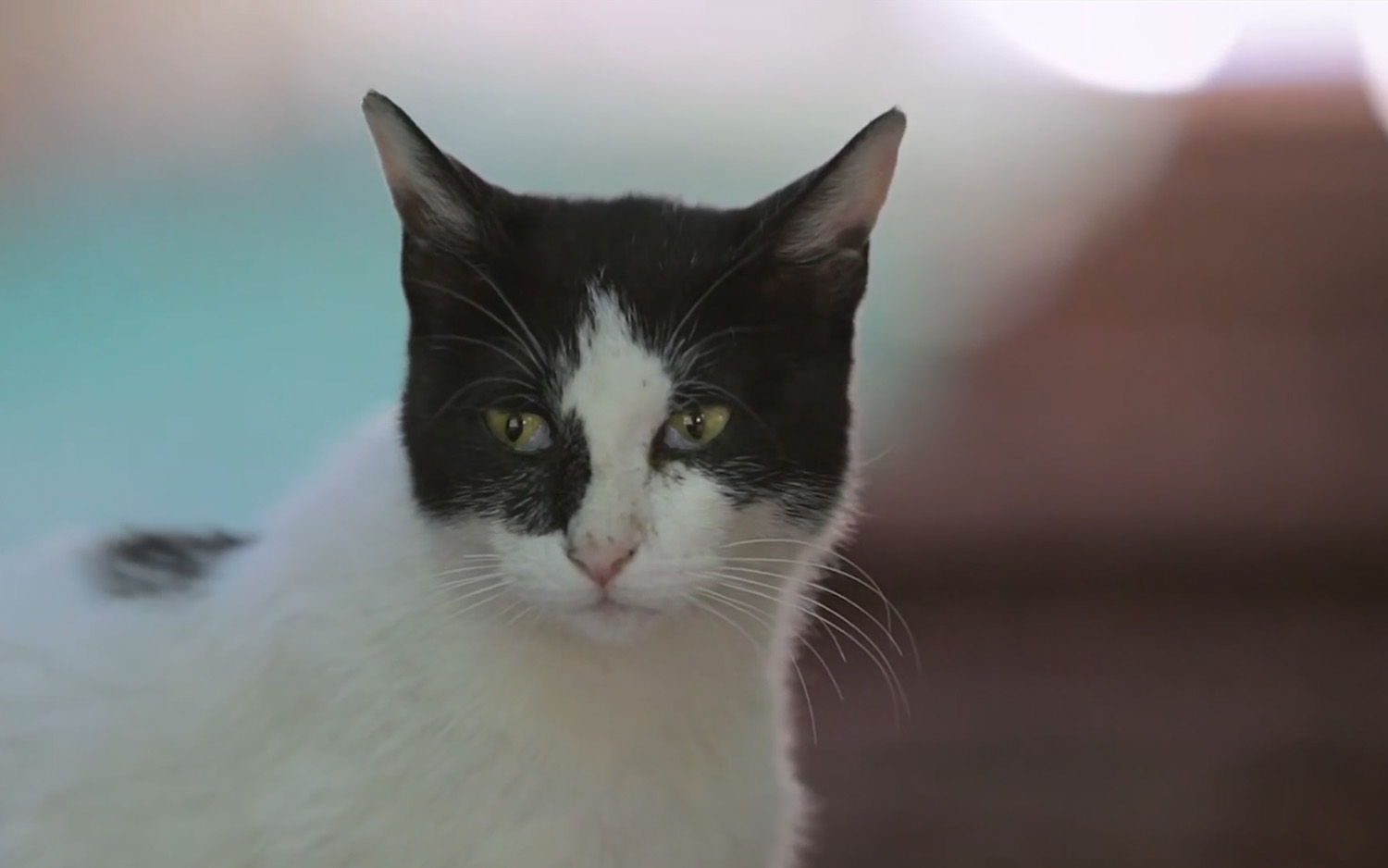
Hundreds of thousands of Turkish cats roam the metropolis of Istanbul freely. They wander in and out of people's lives, becoming an essential part of the city. Claiming no owners, the cats live between two worlds, neither wild nor tame-bringing joy and purpose to the people they choose to adopt.

Sans Soleil
is a 1983 documentary by Chris Marker.
An unnamed woman narrates the letters and philosophical reflections of an invisible world traveler accompanied by footage of Guinea-Bissau, Cape Verde, Iceland, Paris, San Francisco and, most significantly, Tokyo-a city whose people, streets, malls and temples inspire the traveler's observations.
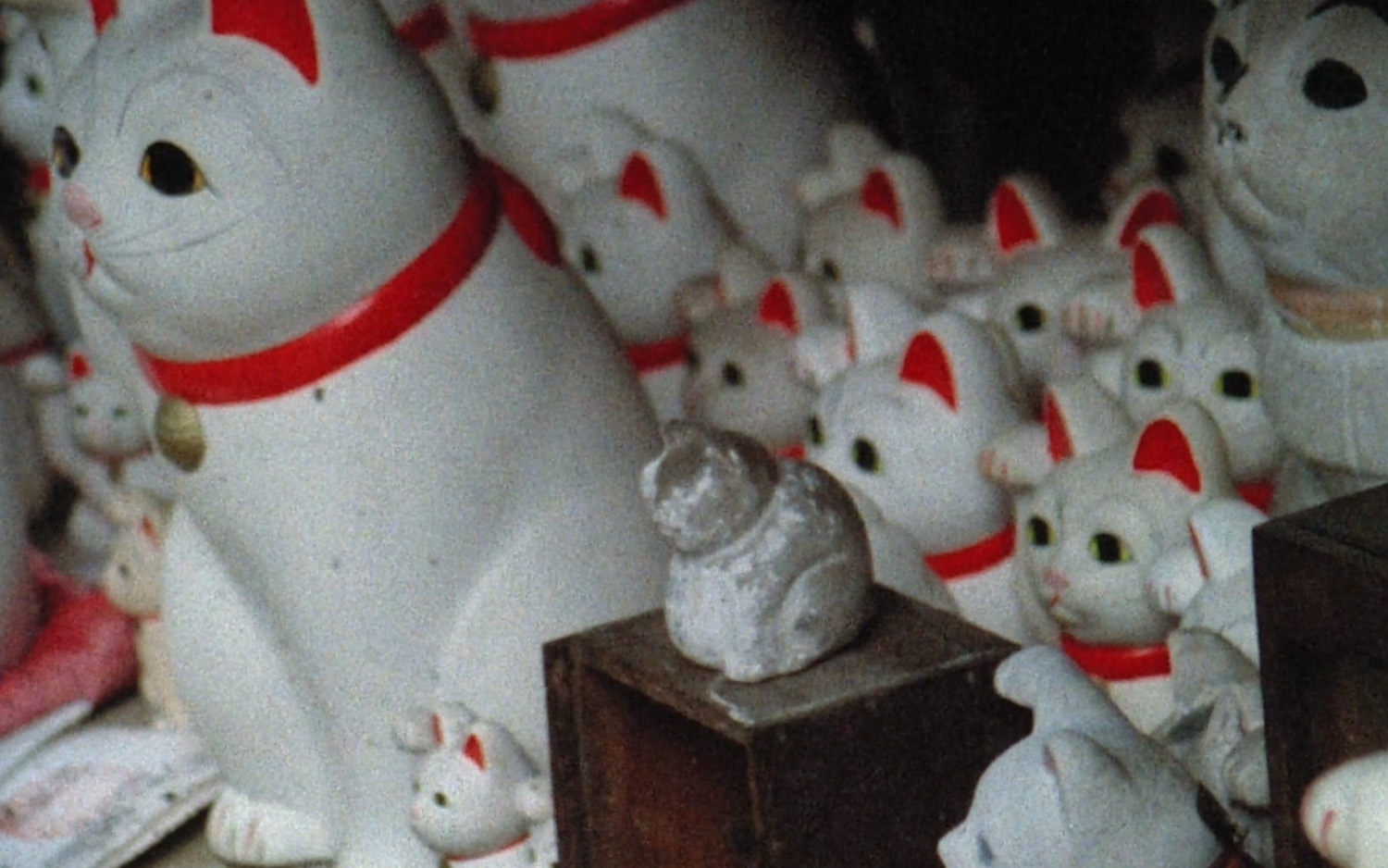
An unnamed woman narrates the letters and philosophical reflections of an invisible world traveler accompanied by footage of Guinea-Bissau, Cape Verde, Iceland, Paris, San Francisco and, most significantly, Tokyo-a city whose people, streets, malls and temples inspire the traveler's observations.

The Private Life of a Cat
Müdigkeitsgesellschaft: Byung-Chul Han in Seoul/Berlin
How to Draw a Bunny
Helvetica
is a 2007 documentary by Gary Hustwit.
A film that interviews many graphic designers involved in the history or modern usage of the Helvetica typeface. It discusses the original creator Eduard Hoffmann, and his goals for creating a clean, legible type relating to the ideals of the Modernist movement.
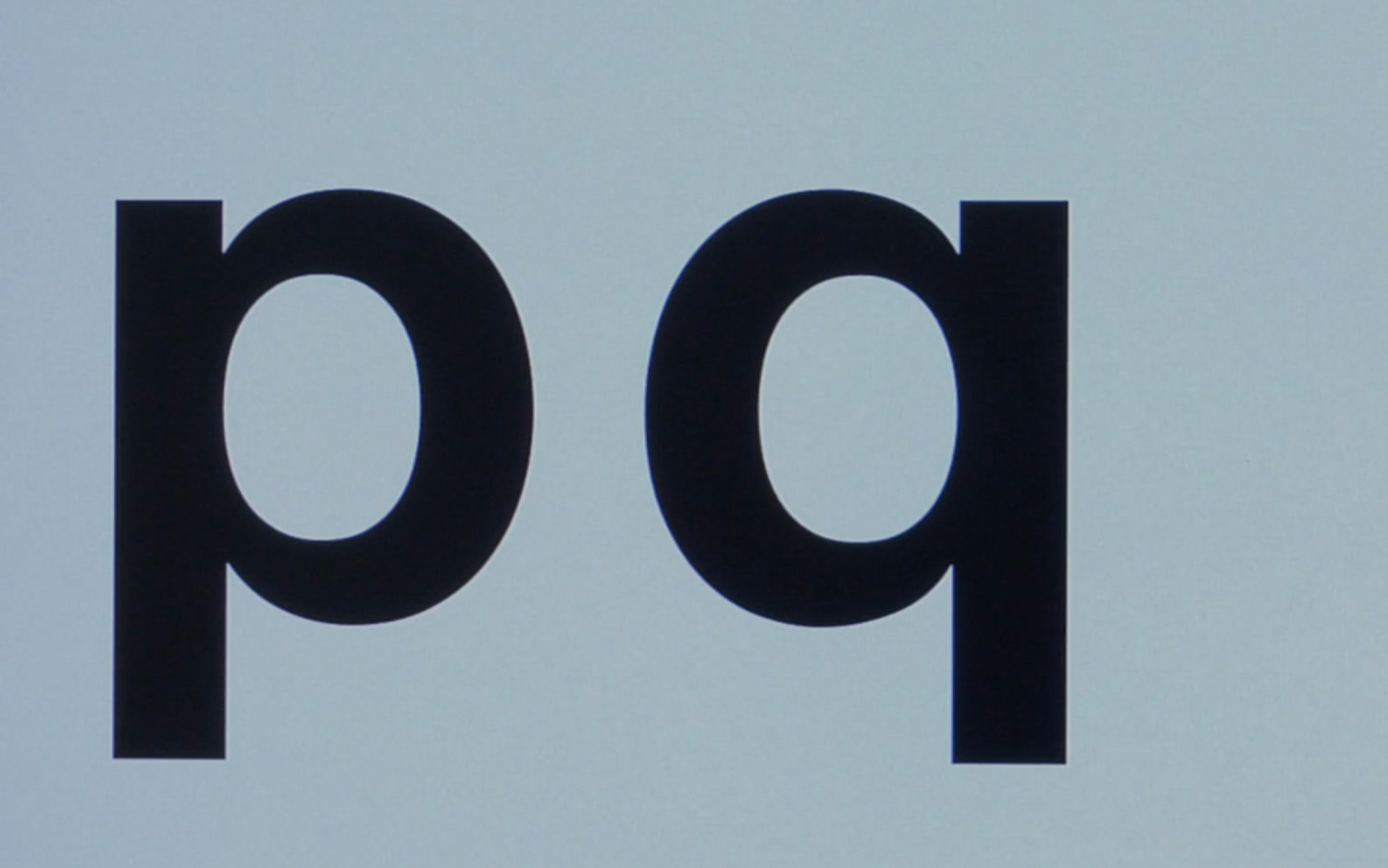
A film that interviews many graphic designers involved in the history or modern usage of the Helvetica typeface. It discusses the original creator Eduard Hoffmann, and his goals for creating a clean, legible type relating to the ideals of the Modernist movement.

Kaibutsu
is a 2023 film by Hirokazu Koreeda.
When a young boy displays increasingly worrying behavior at school and home, his mother decides to discuss it with his teachers. It soon becomes apparent that one of his teachers is the source of all the problems. But as the mystery unfolds, the truth becomes more complex than expected.

When a young boy displays increasingly worrying behavior at school and home, his mother decides to discuss it with his teachers. It soon becomes apparent that one of his teachers is the source of all the problems. But as the mystery unfolds, the truth becomes more complex than expected.

Frankenstein
Sud Pralad
The Secret World of Bats
Owls: Masters of the Night
Lucebert, dichter-schilder
Possession
is a 1981 film by Andrzej Żuławski.
A young woman left her family for an unspecified reason. The husband determines to find out the truth and starts following his wife. At first, he suspects that a man is involved. But gradually, he finds out more and more strange behaviors and bizarre incidents that indicate something more than a possessed love affair.

A young woman left her family for an unspecified reason. The husband determines to find out the truth and starts following his wife. At first, he suspects that a man is involved. But gradually, he finds out more and more strange behaviors and bizarre incidents that indicate something more than a possessed love affair.

Saute ma ville
Painter
is a 1995 film by Paul McCarthy.
In this film, the mythology of the artist as hero is attacked in a grotesque, parodic performance that unambiguously points to the abstract expressionists. Performing as the painter, McCarthy undermines pre-packaged ideas about the creative process by turning it into an absurdist soap-opera.

In this film, the mythology of the artist as hero is attacked in a grotesque, parodic performance that unambiguously points to the abstract expressionists. Performing as the painter, McCarthy undermines pre-packaged ideas about the creative process by turning it into an absurdist soap-opera.

Spring, Summer, Fall, Winter... and Spring
Blind Massage
Pasqualino Settebellezze
is a 1975 film by Lina Wertmüller.
Pasqualino is a petty thief who lives off of the profits of his seven sisters, when he is arrested for murder and sent to fight in the army. The Germans capture him and he gets sent to a concentration camp where he plots to make his escape by seducing a German officer.
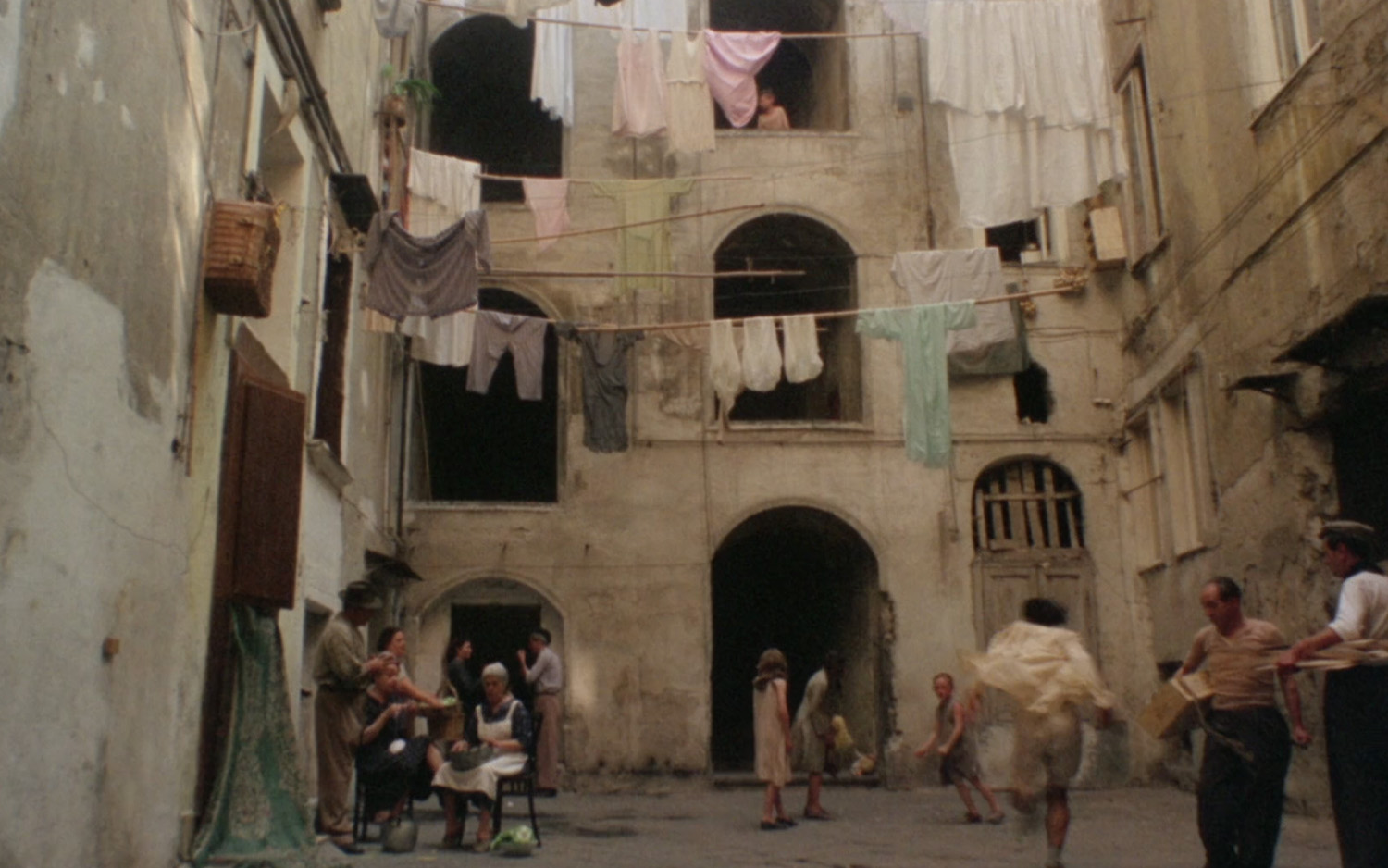
Pasqualino is a petty thief who lives off of the profits of his seven sisters, when he is arrested for murder and sent to fight in the army. The Germans capture him and he gets sent to a concentration camp where he plots to make his escape by seducing a German officer.

Kakadu: Land of the Crocodile
is a 1986 film by David Greig.
Val Plumwood, environmental philosopher returns to Kakadu, where she was the victim of a crocodile attack. Against the backdrop of the steamy, intensely beautiful Kakadu National Park, she shares her thoughts on wilderness and wildlife. She emphasized that humans are part of the food chain, challenging the anthropocentric view that neglects this reality. (caution: contains animal cruelty)

Val Plumwood, environmental philosopher returns to Kakadu, where she was the victim of a crocodile attack. Against the backdrop of the steamy, intensely beautiful Kakadu National Park, she shares her thoughts on wilderness and wildlife. She emphasized that humans are part of the food chain, challenging the anthropocentric view that neglects this reality. (caution: contains animal cruelty)

3/60 Bäume im Herbst
is a 1960 experimental film by Kurt Kren.
The film is made up of static shots of treetops that Kren took while walking through the park. As in his other work, the length of the shots is controlled based on a carefully pre-arranged scheme, which sets the film's rhythm and evokes its overall atmosphere, which is also supported by the effect of the dark tree crowns placed in contrast against the light sky.
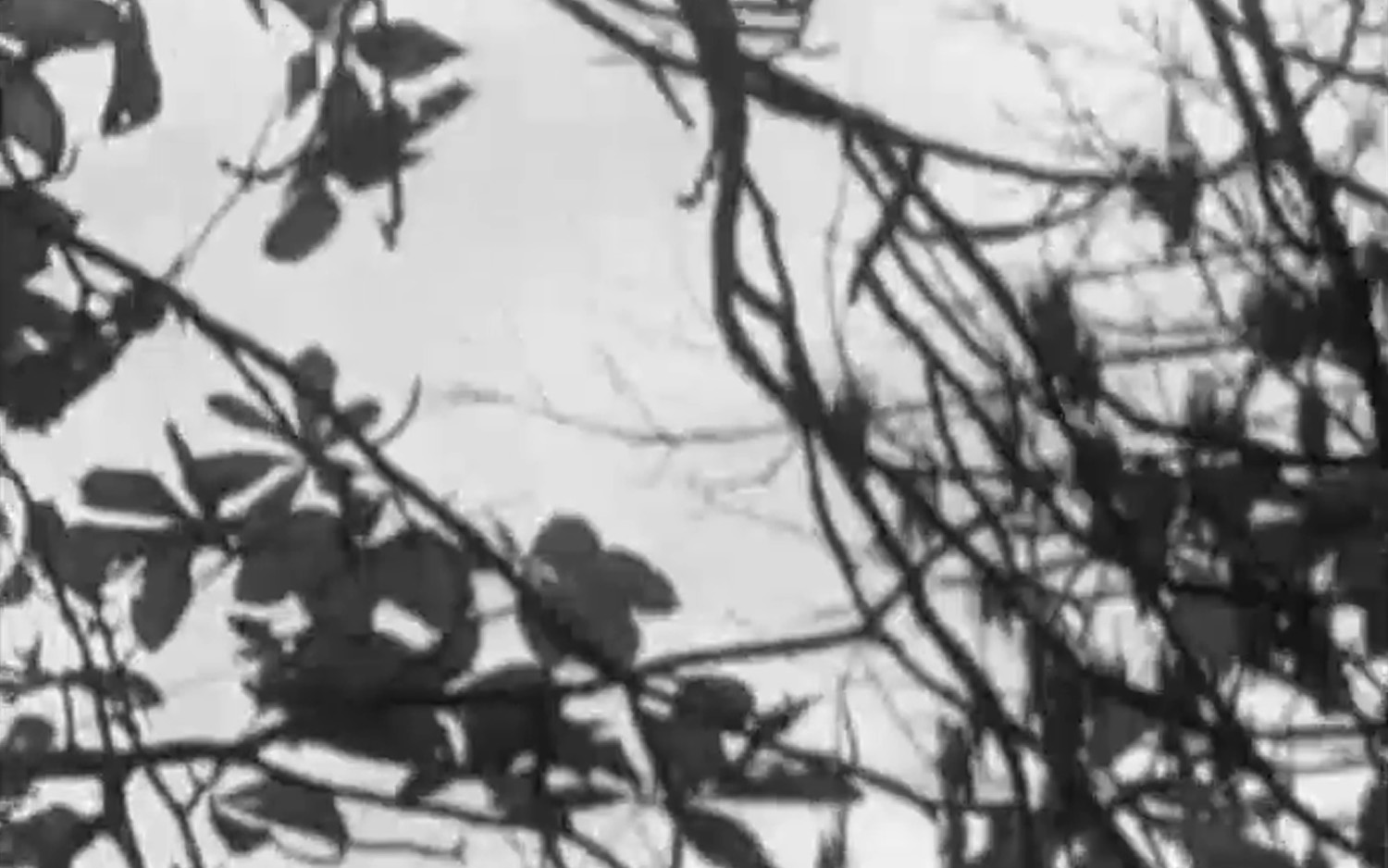
The film is made up of static shots of treetops that Kren took while walking through the park. As in his other work, the length of the shots is controlled based on a carefully pre-arranged scheme, which sets the film's rhythm and evokes its overall atmosphere, which is also supported by the effect of the dark tree crowns placed in contrast against the light sky.

K Foundation Burn a Million Quid
Fungi: The Web of Life
is a 2023 film by Gisela Kaufmann and Joseph Nizeti.
Much of life on Earth is connected by a vast, hidden network that we are only just beginning to understand. Out of sight, between the world of plants and animals, another world exists-the kingdom of fungi. After the book 'Entangled Life' by Merlin Sheldrake, narrated by Björk.
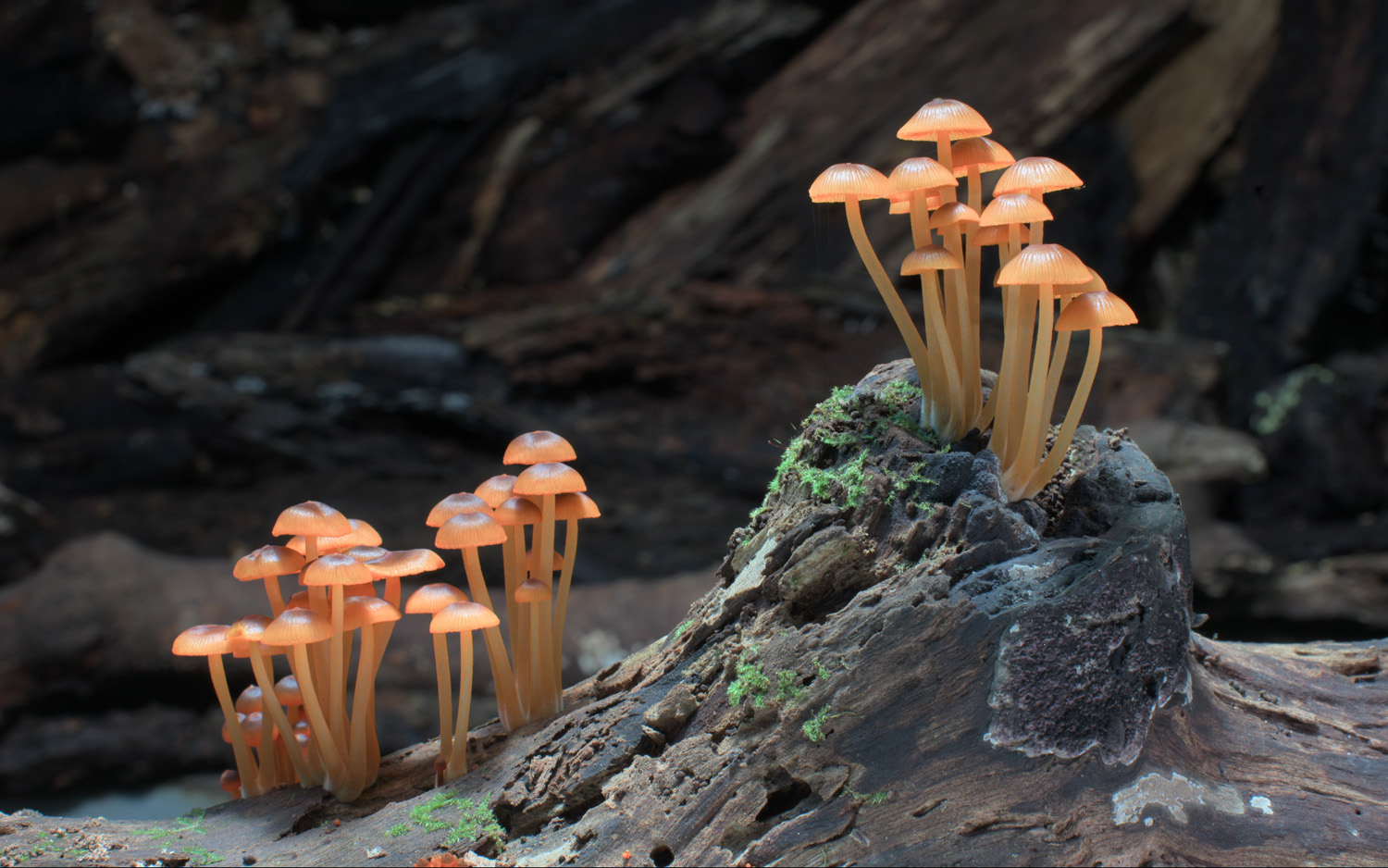
Much of life on Earth is connected by a vast, hidden network that we are only just beginning to understand. Out of sight, between the world of plants and animals, another world exists-the kingdom of fungi. After the book 'Entangled Life' by Merlin Sheldrake, narrated by Björk.

Coyote
The Sacrifice
is a 1986 film by Andrei Tarkovsky.
Alexander, a retired actor, is celebrating his birthday with family and friends when a TV announcement warns of an impending World War III and imminent nuclear catastrophe. Faced with an existential crisis, Alexander vows to renounce all he holds dear to prevent the disaster.

Alexander, a retired actor, is celebrating his birthday with family and friends when a TV announcement warns of an impending World War III and imminent nuclear catastrophe. Faced with an existential crisis, Alexander vows to renounce all he holds dear to prevent the disaster.

Mary Poppins
The Aviary
Shrooms
Gunda
Vivian's Garden
is a 2017 film by Rosalind Nashashibi.
Deep in the Guatemalan Highlands, Swiss-Austrian artists Vivian Suter and Elisabeth Wild live in a garden villa. Nashashibi captures the complexity of their unorthodox microcosm, which is dominated by the curiously intimate mother-daughter dynamic. (Unfortunately, this version of the film has a square in the lower right corner. Apologies for the inconvenience.)
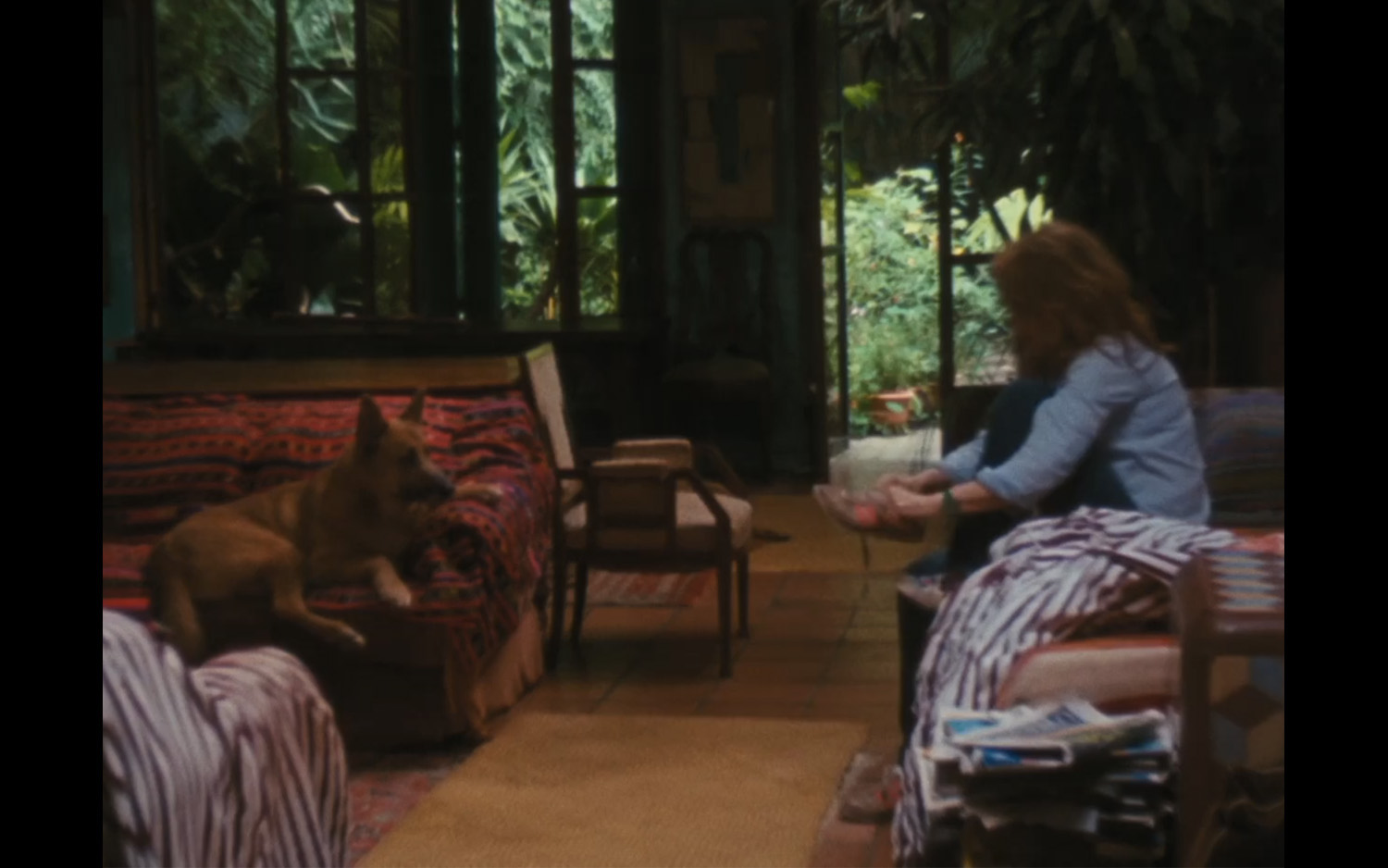
Deep in the Guatemalan Highlands, Swiss-Austrian artists Vivian Suter and Elisabeth Wild live in a garden villa. Nashashibi captures the complexity of their unorthodox microcosm, which is dominated by the curiously intimate mother-daughter dynamic. (Unfortunately, this version of the film has a square in the lower right corner. Apologies for the inconvenience.)

Stop Making Sense
Riddles of the Sphinx
is a 1977 experimental film by Laura Mulvey and Peter Wollen.
It draws on the critical writings and investigations by both filmmakers into the codes of narrative cinema, and offers an alternative formal structure through which to consider the images and meanings of female representation in film. A complex treatise exploring feminism, motherhood and sexual difference in seven numbered chapters.

It draws on the critical writings and investigations by both filmmakers into the codes of narrative cinema, and offers an alternative formal structure through which to consider the images and meanings of female representation in film. A complex treatise exploring feminism, motherhood and sexual difference in seven numbered chapters.

Free Radicals
L' Arc d'iris - Souvenir d'un jardin
Nationale Parken... Noodzaak
Rachel Carson
is a 2017 documentary by Michelle Ferrari.
A profile of scientist and writer Rachel L. Carson, whose 1962 book "Silent Spring" helped launch the modern environmental movement. When the book was published in 1962, the book became a phenomenon. A passionate and eloquent warning about the long-term dangers of pesticides, the book unleashed an extraordinary national debate and was greeted by vigorous attacks from the chemical industry.
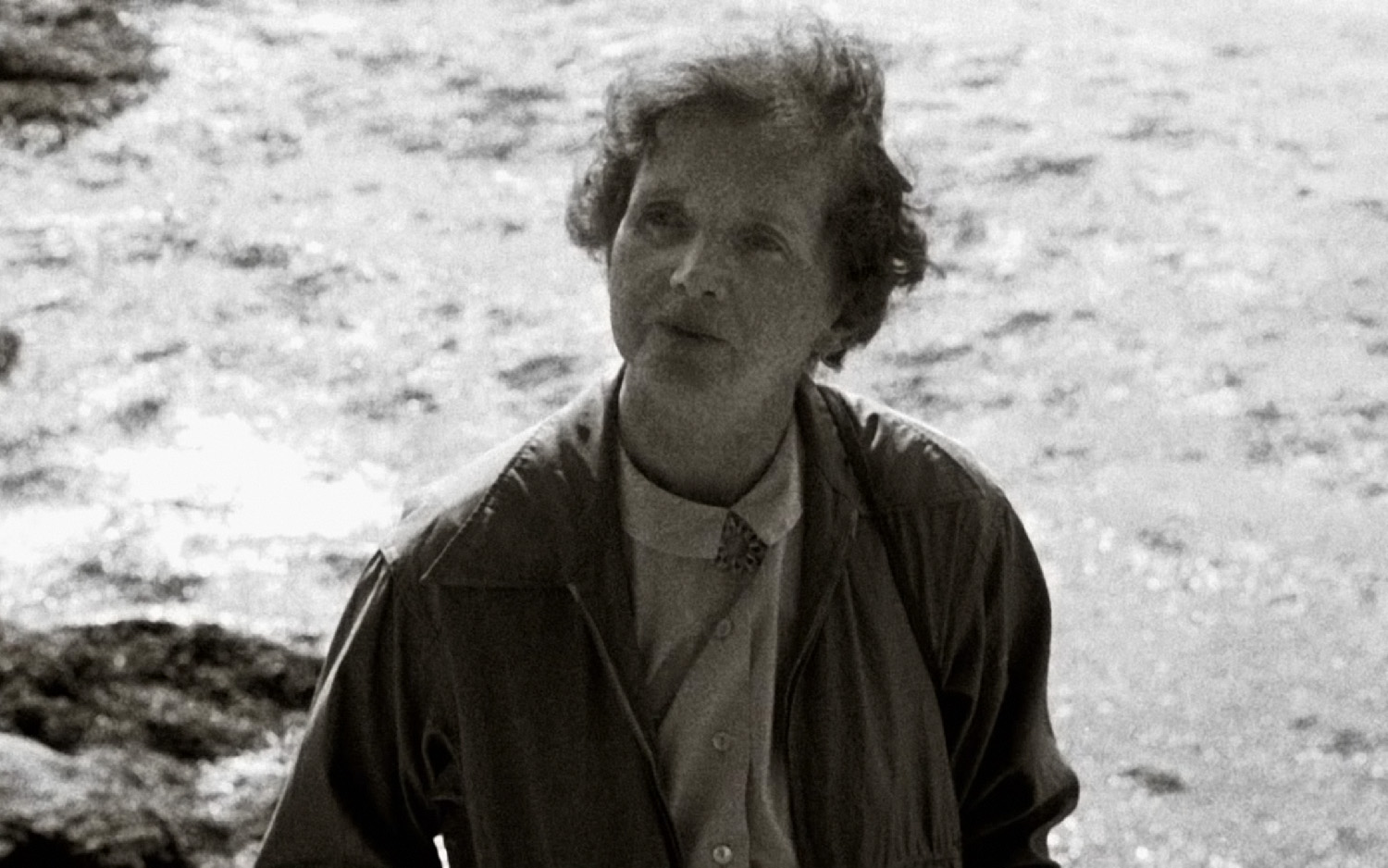
A profile of scientist and writer Rachel L. Carson, whose 1962 book "Silent Spring" helped launch the modern environmental movement. When the book was published in 1962, the book became a phenomenon. A passionate and eloquent warning about the long-term dangers of pesticides, the book unleashed an extraordinary national debate and was greeted by vigorous attacks from the chemical industry.

Andrei Rublev
My Octopus Teacher
Cipolla Colt
is a 1975 spaghetti western by Enzo G. Castellari.
Onion arrives in town to start an onion farm on a parcel of land he's bought real cheap from a farmer. What he doesn't know is that evil oil magnate Petrus Lamb has bought/stolen all the property around the town due to the vast oil reserves under the town.
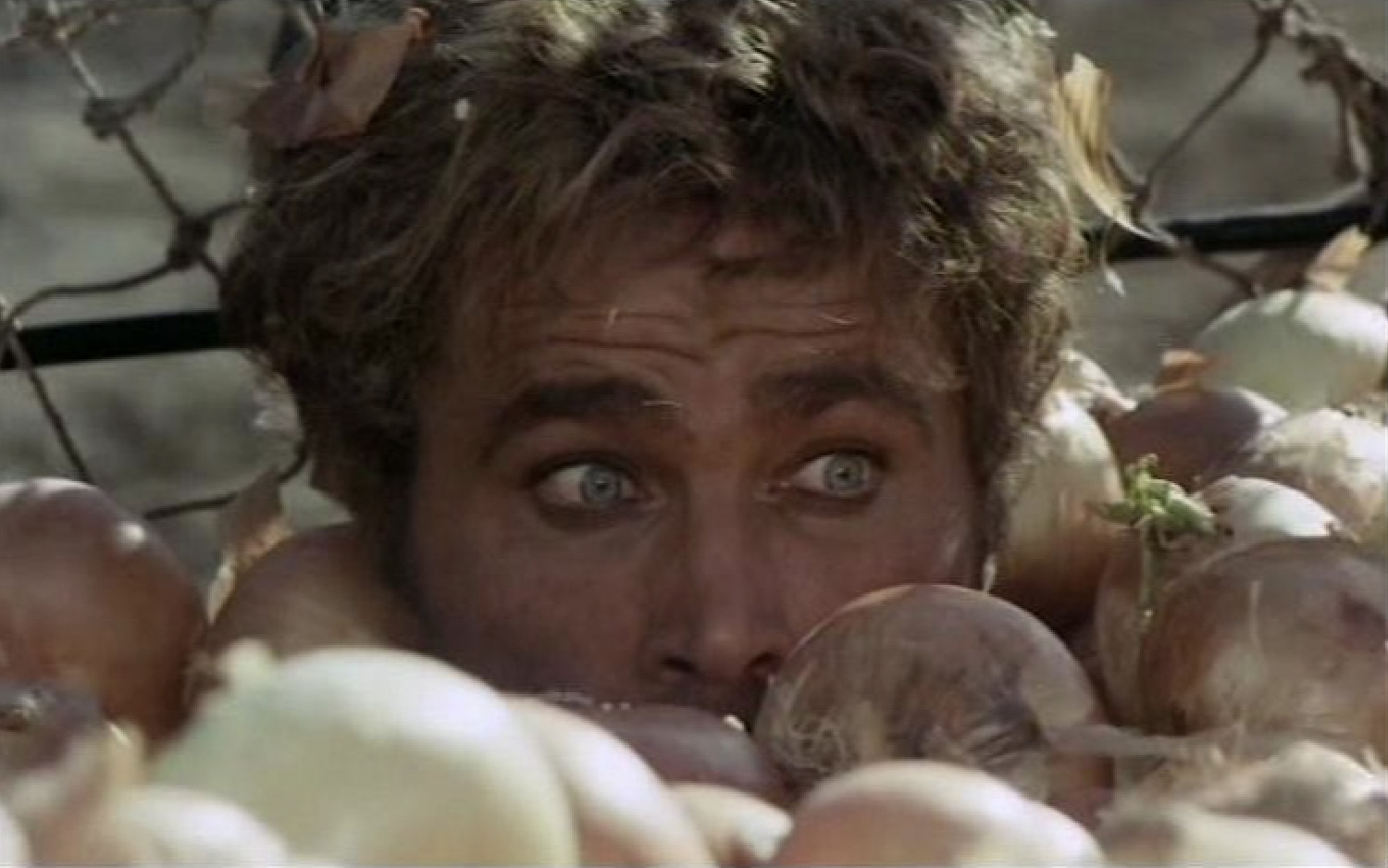
Onion arrives in town to start an onion farm on a parcel of land he's bought real cheap from a farmer. What he doesn't know is that evil oil magnate Petrus Lamb has bought/stolen all the property around the town due to the vast oil reserves under the town.

The Seeds of Vandana Shiva
Leviathan
is a 2012 documentary by Lucien Castaing-Taylor and Véréna Paravel.
In the waters where Melville's Pequod gave chase to Moby Dick, Leviathan captures the collaborative clash of man, nature, and machine. Shot on a dozen small cameras - tossed and tethered, passed from fisherman to filmmaker - it is a cosmic portrait of mankind's place at the edge of wilderness. (caution: contains animal cruelty)

In the waters where Melville's Pequod gave chase to Moby Dick, Leviathan captures the collaborative clash of man, nature, and machine. Shot on a dozen small cameras - tossed and tethered, passed from fisherman to filmmaker - it is a cosmic portrait of mankind's place at the edge of wilderness. (caution: contains animal cruelty)

Music with Roots in the Aether: Pauline Oliveros
is a 1975 is a music-theater piece in color video by Robert Ashley.
Music with Roots in the Aether is a series of interviews with seven composers who seemed to me when I conceived the piece-and who still seem to me twenty-five years later-to be among the most important, influential and active members of the so-called avant-garde movement in American music, a movement that had its origins in the work of and in the stories about composers who started hearing things in a new way at least fifty years ago.
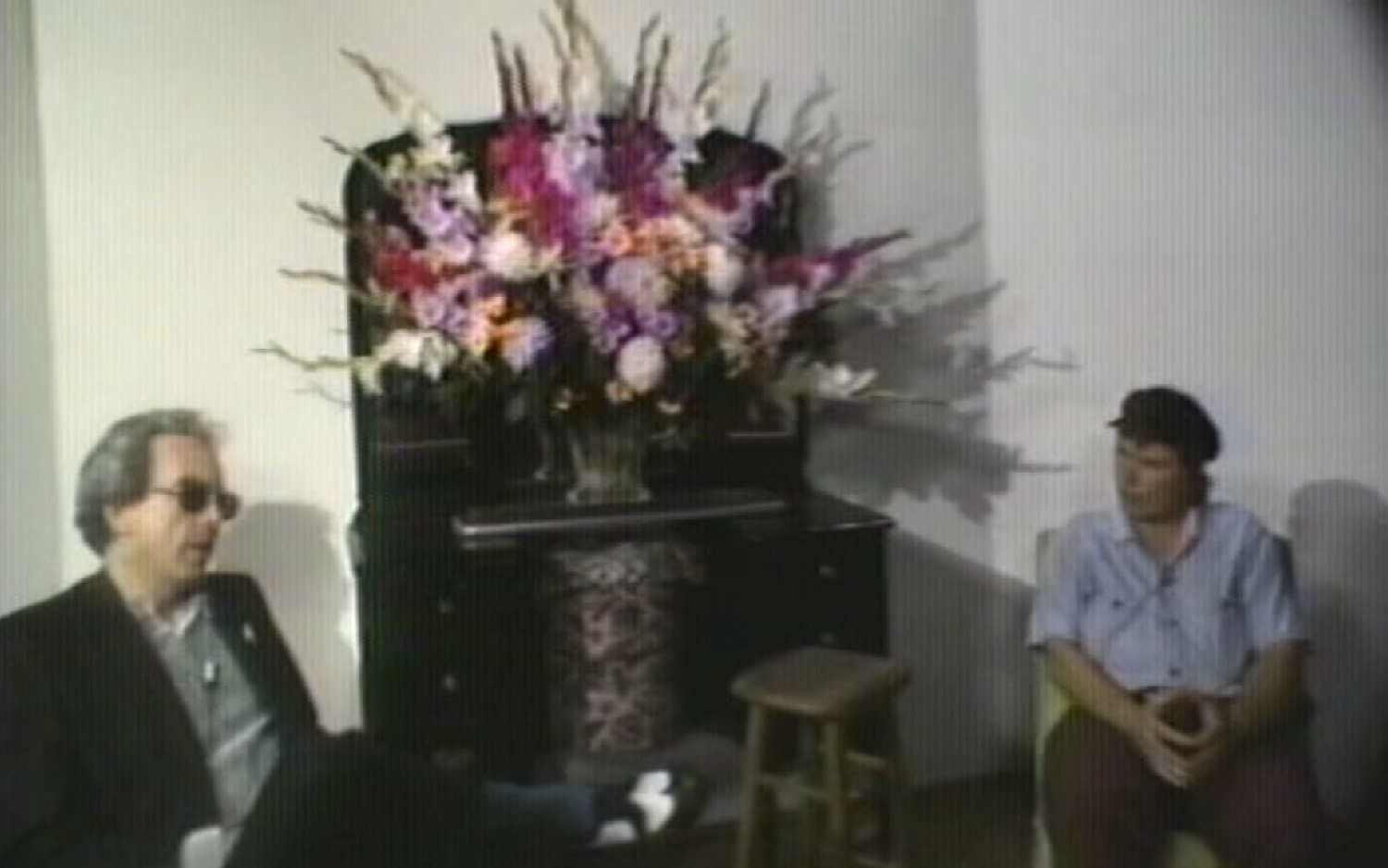
Music with Roots in the Aether is a series of interviews with seven composers who seemed to me when I conceived the piece-and who still seem to me twenty-five years later-to be among the most important, influential and active members of the so-called avant-garde movement in American music, a movement that had its origins in the work of and in the stories about composers who started hearing things in a new way at least fifty years ago.

Bartleby
It Is Night in America
is a 2022 documentary by Ana Vaz.
In Brasília, the modern capital of Brazil, an anteater is found dead by the side of a road, a boa constrictor wanders across the suburbs, and foxes prowl vacant streets. Meanwhile, in the city zoo-home to hundreds of displaced and rescued wild species-the animals look back at us humans.
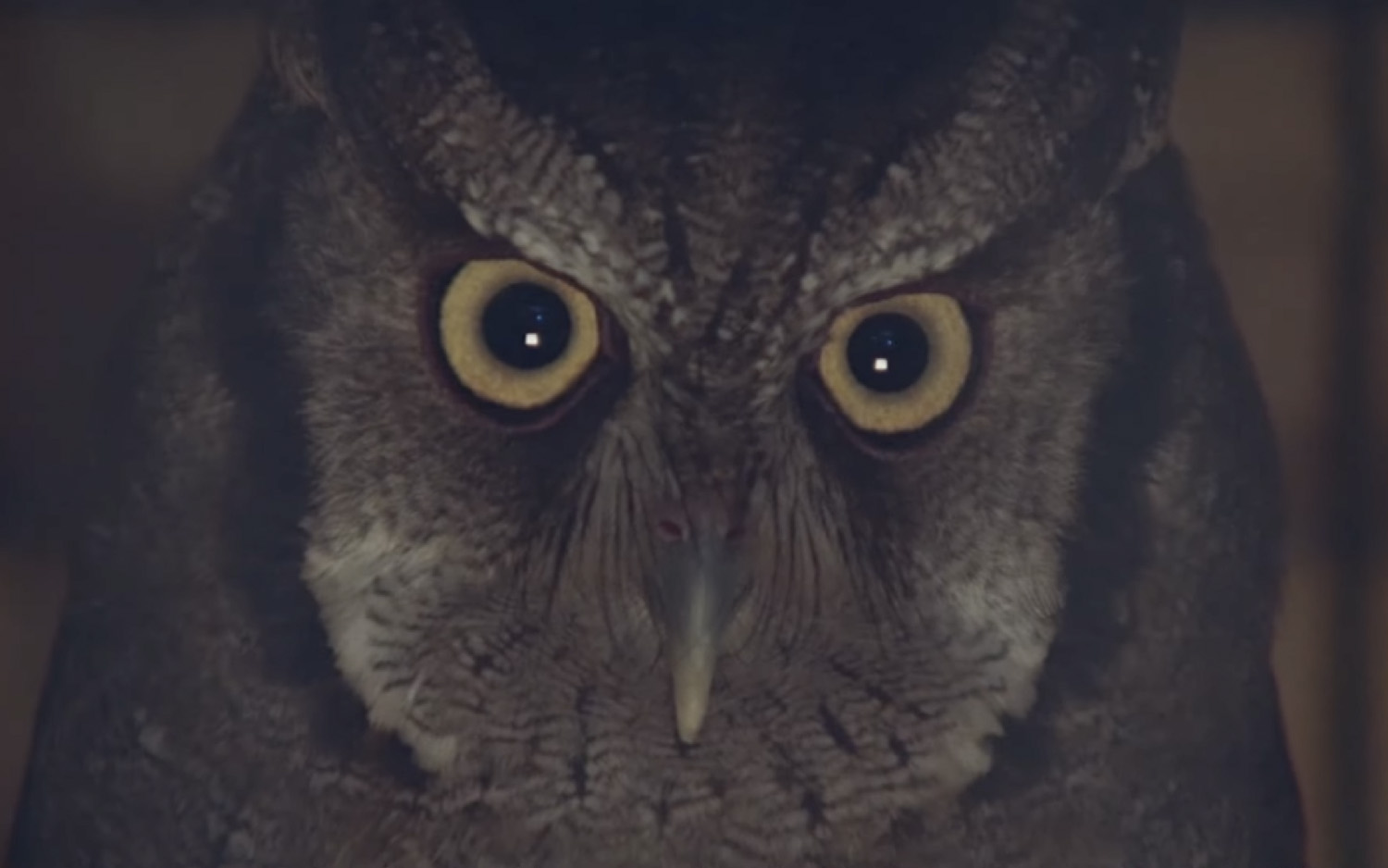
In Brasília, the modern capital of Brazil, an anteater is found dead by the side of a road, a boa constrictor wanders across the suburbs, and foxes prowl vacant streets. Meanwhile, in the city zoo-home to hundreds of displaced and rescued wild species-the animals look back at us humans.

Rigor Mortis
A Walk
is a 1990 experimental film by Jonas Mekas.
"Filmed on Dec. 15, 1990. On a rainy day, I have a walk through the early Soho. I begin my walk on 80 Wooster Street and continue towards the Williamsburg bridge, where, 58 minutes later, still raining, my walk ends. As I walk, occasionally I talk about what I see or I tell some totally unrelated little stories that come to my mind as I walk."
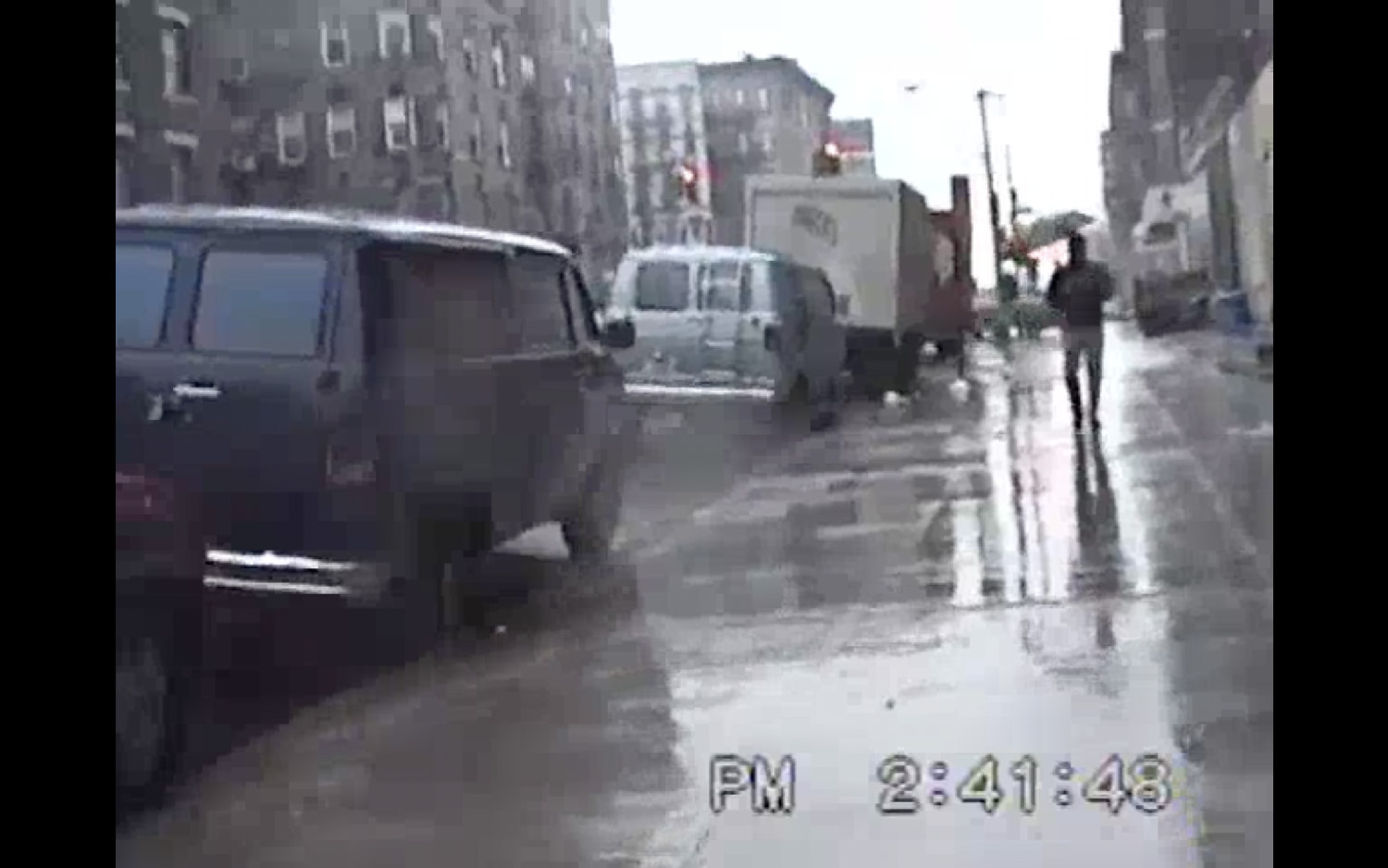
"Filmed on Dec. 15, 1990. On a rainy day, I have a walk through the early Soho. I begin my walk on 80 Wooster Street and continue towards the Williamsburg bridge, where, 58 minutes later, still raining, my walk ends. As I walk, occasionally I talk about what I see or I tell some totally unrelated little stories that come to my mind as I walk."

Geographies of Solitude
is a 2022 documentary by Jacquelyn Mills.
Environmentalist Zoe Lucas has cataloged flora and fauna on Sable Island, a thin strip of land off the Canadian coast, for decades. The island's only full-time human inhabitant, Zoe embarks on solitary excursions to observe the sand dunes, starry skies, wild horses, and washed-up plastic waste.
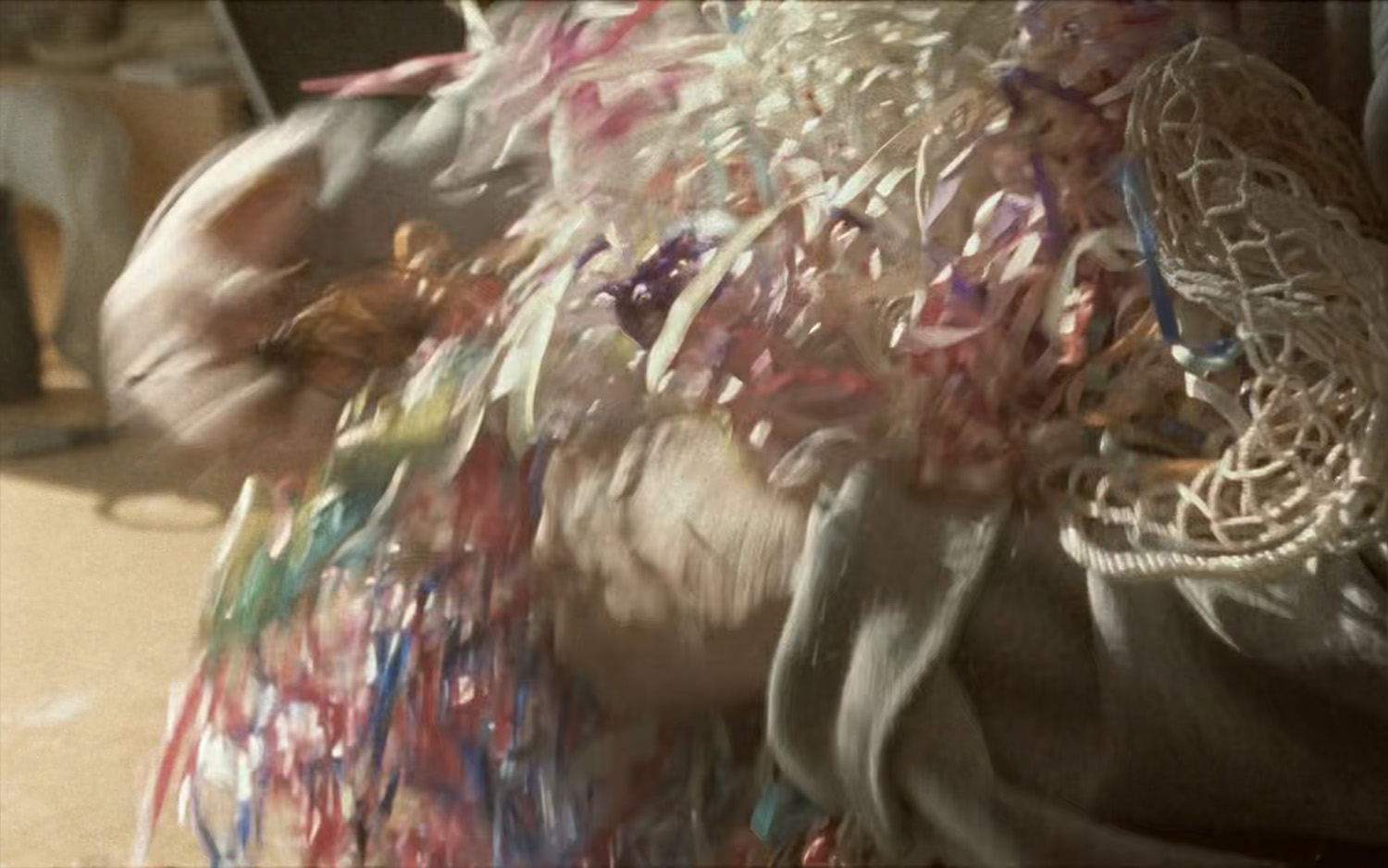
Environmentalist Zoe Lucas has cataloged flora and fauna on Sable Island, a thin strip of land off the Canadian coast, for decades. The island's only full-time human inhabitant, Zoe embarks on solitary excursions to observe the sand dunes, starry skies, wild horses, and washed-up plastic waste.

Clapping for the Wrong Reasons
Room 237
is a 2012 documentary by Rodney Ascher.
In the decades since it's release, many of the film's devotees have claimed to have decoded the film's secret messages. Cultists and scholars are interviewed to deconstruct Kubrick's classic, addressing everything from the genocide of Native Americans to a range of government conspiracies.

In the decades since it's release, many of the film's devotees have claimed to have decoded the film's secret messages. Cultists and scholars are interviewed to deconstruct Kubrick's classic, addressing everything from the genocide of Native Americans to a range of government conspiracies.

Worlds of Ursula K. Le Guin
is a 2018 documentary by Arwen Curry.
It is exploring the remarkable life and legacy of the late feminist author Ursula K. Le Guin. Best known for groundbreaking science fiction and fantasy works such as A Wizard of Earthsea, The Left Hand of Darkness, and The Dispossessed, Le Guin defiantly held her ground on the margin of "respectable" literature until the sheer excellence of her work, at long last, forced the mainstream to embrace fantastic literature. Her fascinating story has never before been captured on film.

It is exploring the remarkable life and legacy of the late feminist author Ursula K. Le Guin. Best known for groundbreaking science fiction and fantasy works such as A Wizard of Earthsea, The Left Hand of Darkness, and The Dispossessed, Le Guin defiantly held her ground on the margin of "respectable" literature until the sheer excellence of her work, at long last, forced the mainstream to embrace fantastic literature. Her fascinating story has never before been captured on film.

Blue
is a 1993 experimental film by Derek Jarman.
Against a plain, unchanging blue screen, a densely interwoven soundtrack of voices, sound effects and music attempt to convey a portrait of Derek Jarman's experiences with AIDS, both literally and allegorically, together with an exploration of the meanings associated with the colour blue.

Against a plain, unchanging blue screen, a densely interwoven soundtrack of voices, sound effects and music attempt to convey a portrait of Derek Jarman's experiences with AIDS, both literally and allegorically, together with an exploration of the meanings associated with the colour blue.

Elephant
The Color of Pomegranates
is a 1969 film by Sergei Parajanov.
A portrait of the revered 18th-century Armenian poet and musician Sayat Nova, the 'King of Song'. Through his poetry and a series of lavish tableaux, the film charts his life from humble weaver, to king's minstrel and cloistered monk before being martyred for his faith by invading Persians. (caution: contains animal cruelty)
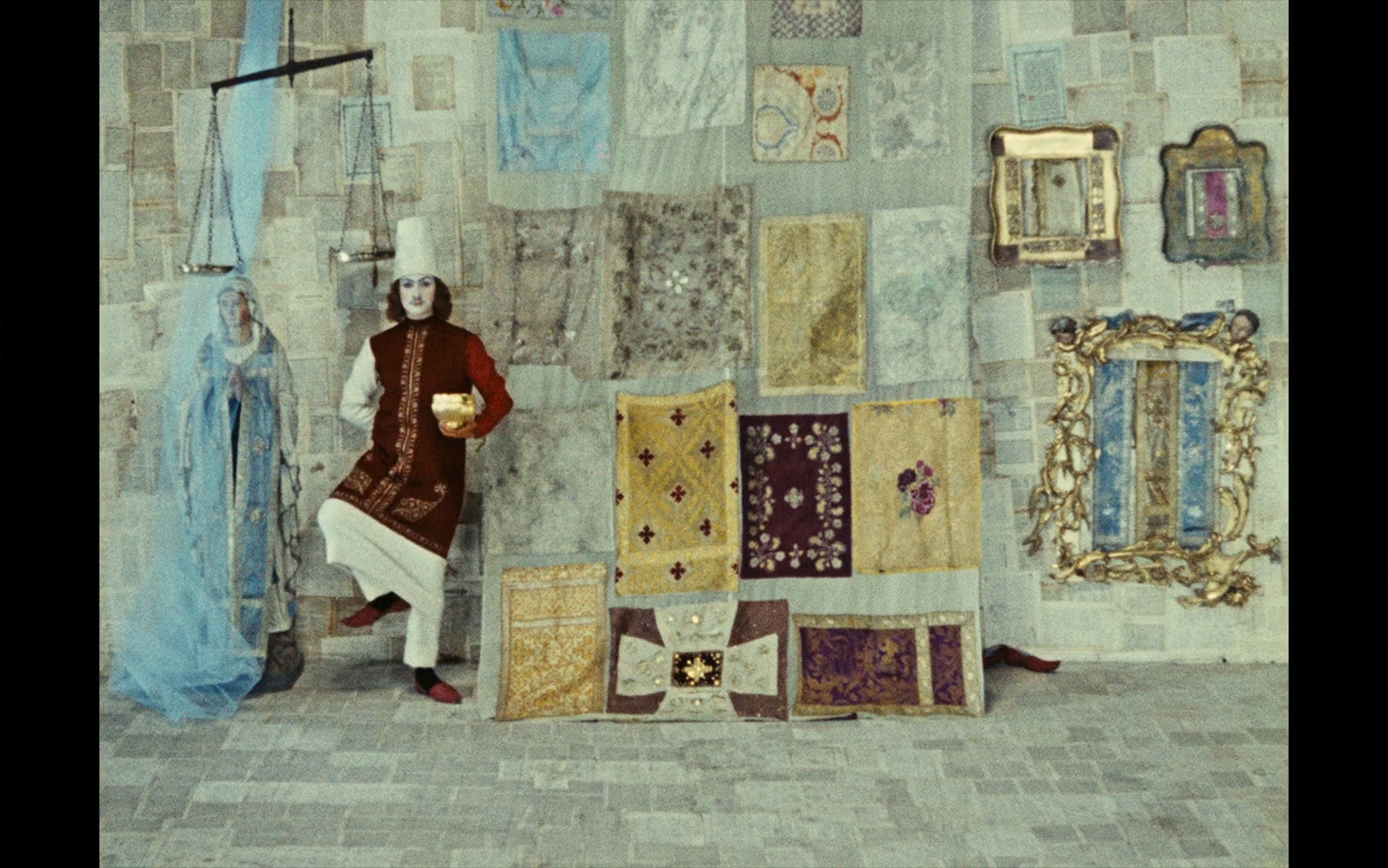
A portrait of the revered 18th-century Armenian poet and musician Sayat Nova, the 'King of Song'. Through his poetry and a series of lavish tableaux, the film charts his life from humble weaver, to king's minstrel and cloistered monk before being martyred for his faith by invading Persians. (caution: contains animal cruelty)

Sisters With Transistors
is a 2020 documentary by Lisa Rovner.
The film maps a new history of electronic music through the visionary women whose radical experimentations with machines redefined the boundaries of music, including Clara Rockmore, Daphne Oram, Bebe Barron, Pauline Oliveros, Delia Derbyshire, Maryanne Amacher, Eliane Radigue, Suzanne Ciani, and Laurie Spiegel. The history of electronic music from the point of view of the overlooked female pioneers in a film with style and substance, told by Laurie Anderson.

The film maps a new history of electronic music through the visionary women whose radical experimentations with machines redefined the boundaries of music, including Clara Rockmore, Daphne Oram, Bebe Barron, Pauline Oliveros, Delia Derbyshire, Maryanne Amacher, Eliane Radigue, Suzanne Ciani, and Laurie Spiegel. The history of electronic music from the point of view of the overlooked female pioneers in a film with style and substance, told by Laurie Anderson.

Ghost Dog: The Way of the Samurai
is a 1999 film by Jim Jarmusch.
Guided by the words of an ancient samurai text, Ghost Dog is a professional killer able to dissolve into the night and move through New York unnoticed. When his code is dangerously betrayed by a dysfunctional mafia family, Ghost Dog reacts strictly in accord with the Way of the Samurai.
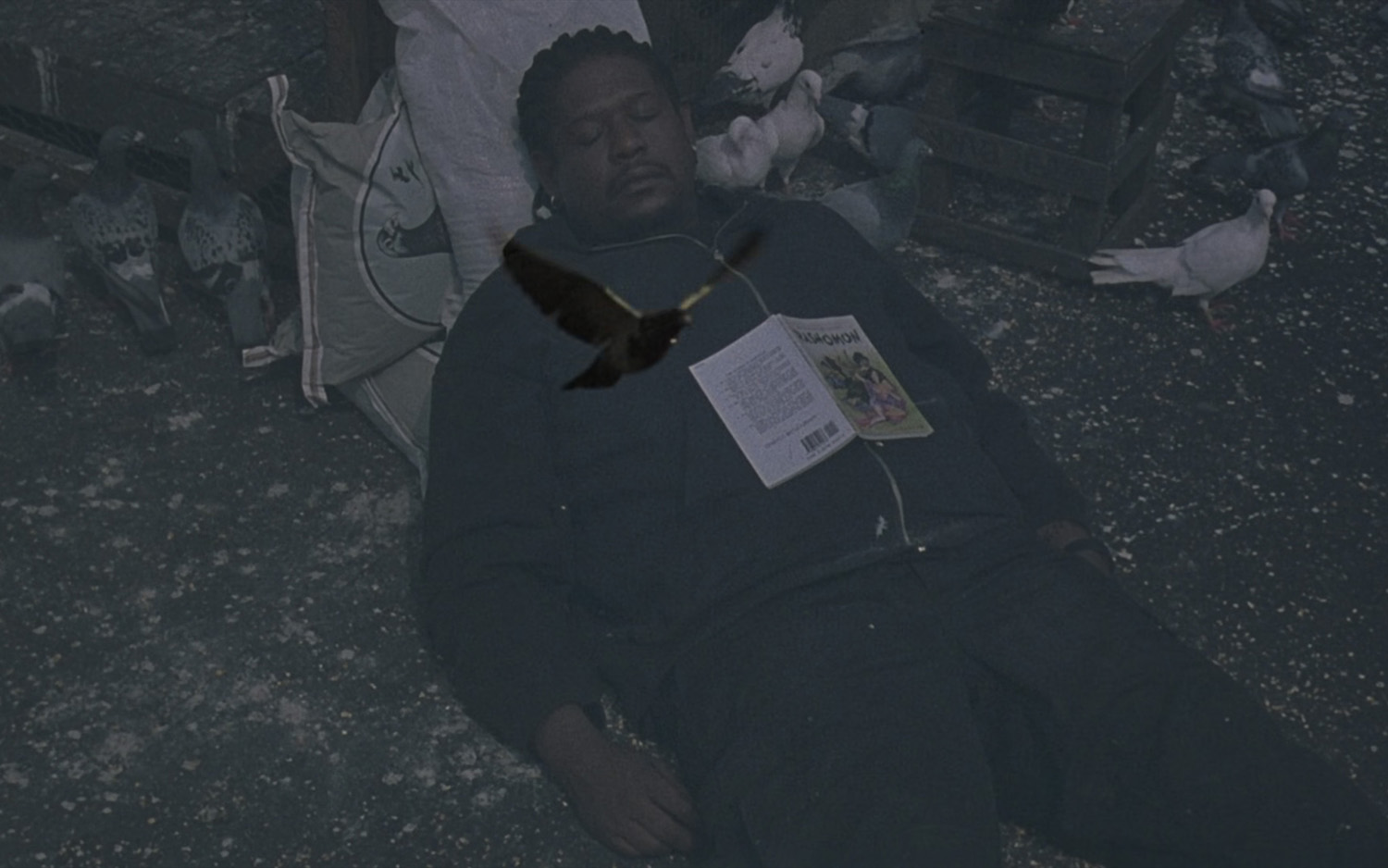
Guided by the words of an ancient samurai text, Ghost Dog is a professional killer able to dissolve into the night and move through New York unnoticed. When his code is dangerously betrayed by a dysfunctional mafia family, Ghost Dog reacts strictly in accord with the Way of the Samurai.

Memoria
is a 2021 film by Apichatpong Weerasethakul.
One morning, Jessica Holland, a Scottish orchid farmer visiting her sister in Bogotá, is woken by a loud 'bang'. This haunting sound dispels her sleep for days, calling into question her identity and guiding her from recording studios to secluded jungle villages in an attempt to find its source.
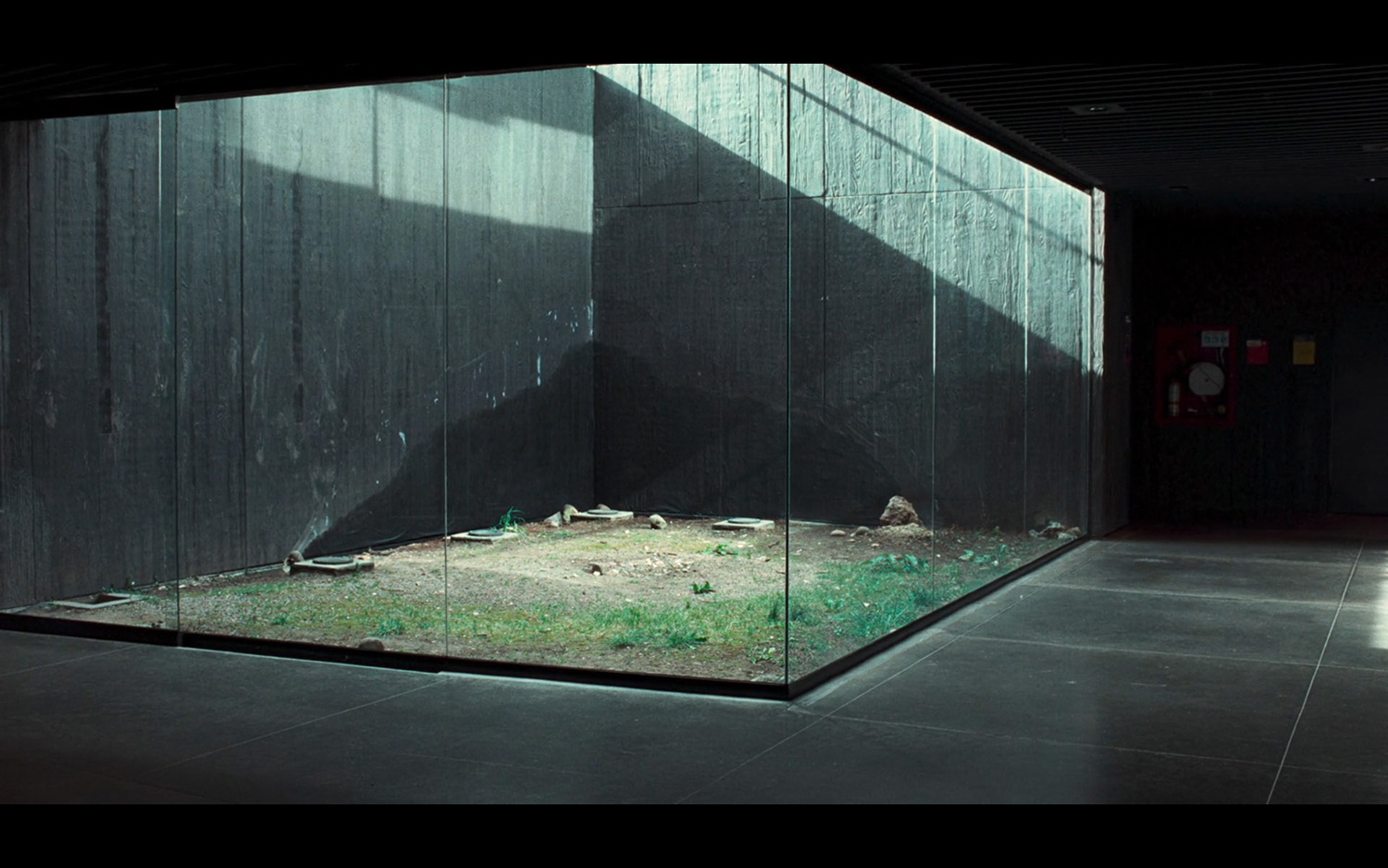
One morning, Jessica Holland, a Scottish orchid farmer visiting her sister in Bogotá, is woken by a loud 'bang'. This haunting sound dispels her sleep for days, calling into question her identity and guiding her from recording studios to secluded jungle villages in an attempt to find its source.

It Is Not My Music
is a 1978 documentary by Urban Lasson.
Moki and Don Cherry met in the mid-1960s and soon began collaborating closely. They made happenings, music, art, posters and record sleeves, they performed together, organised workshops and toured. The film merges the different worlds they lived in ‐ countryside and city life, and the various disciplines that were interwoven in their artistic practices. Some scenes also feature Eagle-Eye Cherry as a little boy and Neneh Cherry in her teens. Other musicians from that time include Collin Walcott, Rashied Ali, James Blood Ulmer and Naná Vasconcelos. Urban Lasson also appears in the film.
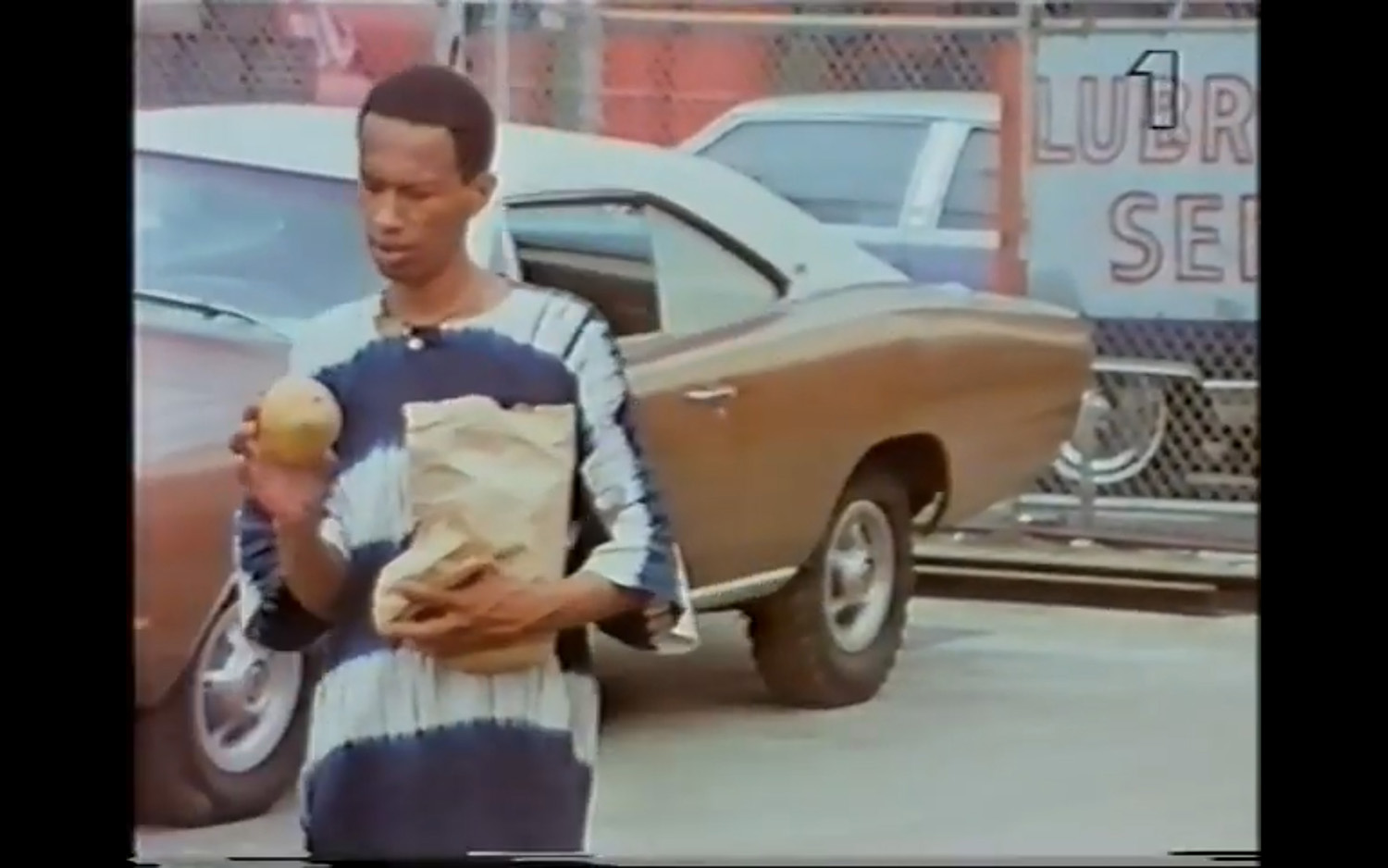
Moki and Don Cherry met in the mid-1960s and soon began collaborating closely. They made happenings, music, art, posters and record sleeves, they performed together, organised workshops and toured. The film merges the different worlds they lived in ‐ countryside and city life, and the various disciplines that were interwoven in their artistic practices. Some scenes also feature Eagle-Eye Cherry as a little boy and Neneh Cherry in her teens. Other musicians from that time include Collin Walcott, Rashied Ali, James Blood Ulmer and Naná Vasconcelos. Urban Lasson also appears in the film.

Eva Hesse
is a 2016 documentary by Marcie Begleiter.
The film sheds light on the artist's far-reaching career in the 1960s and beyond, as a pioneer of post-minimalism in sculpture and drawing. It features a lively investigation into the creative community of 1960s New York and Germany, where Hesse spent time during a year-long residency at Scheidt's textile factory in Kettwig-on-the-Ruhr near Essen. Many of Hesse's writings and letters from this period are voiced in the film by Selma Blair.
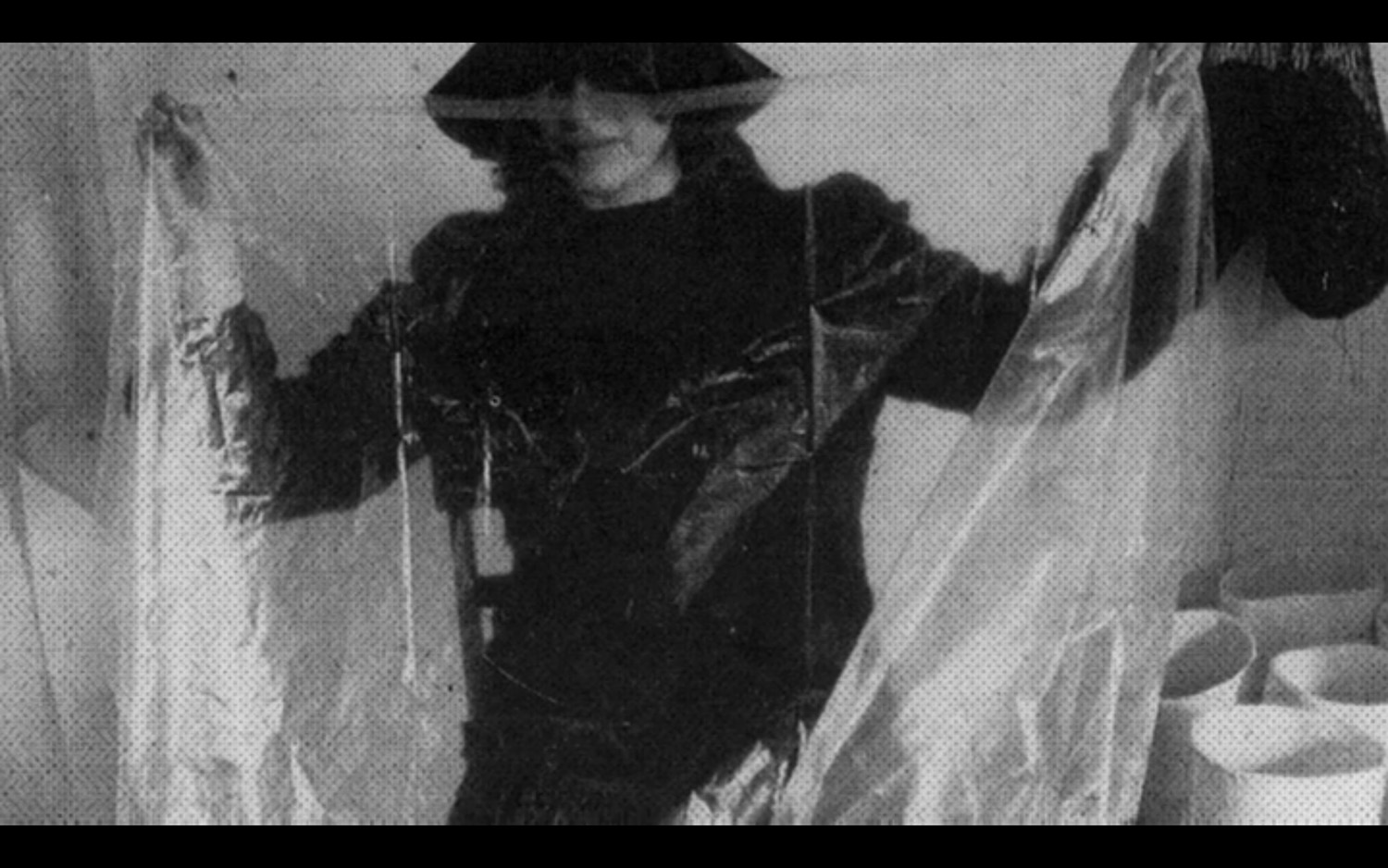
The film sheds light on the artist's far-reaching career in the 1960s and beyond, as a pioneer of post-minimalism in sculpture and drawing. It features a lively investigation into the creative community of 1960s New York and Germany, where Hesse spent time during a year-long residency at Scheidt's textile factory in Kettwig-on-the-Ruhr near Essen. Many of Hesse's writings and letters from this period are voiced in the film by Selma Blair.

Manu's Spleen
Donna Haraway: Story Telling for Earthly Survival
is a 2016 documentary by Fabrizio Terranova.
Through the act of story-telling, this documentary operates as a cat cradle of past and speculative futures guided by American philosopher Donna Haraway whose theoretical framework crosses the subjects of science, technology, gender and species, proposing new ways of thinking beyond dualisms.

Through the act of story-telling, this documentary operates as a cat cradle of past and speculative futures guided by American philosopher Donna Haraway whose theoretical framework crosses the subjects of science, technology, gender and species, proposing new ways of thinking beyond dualisms.

Der Rechte Weg
is a 1983 film by Fischli & Weiss.
As they hike through the mountains, at the mercy of the elements and all kinds of miracles ‐ and above all, at the mercy of themselves, Rat and Bear try to find reasons for all they see and experience, getting closer then expected to the right way. (caution: contains animal cruelty)
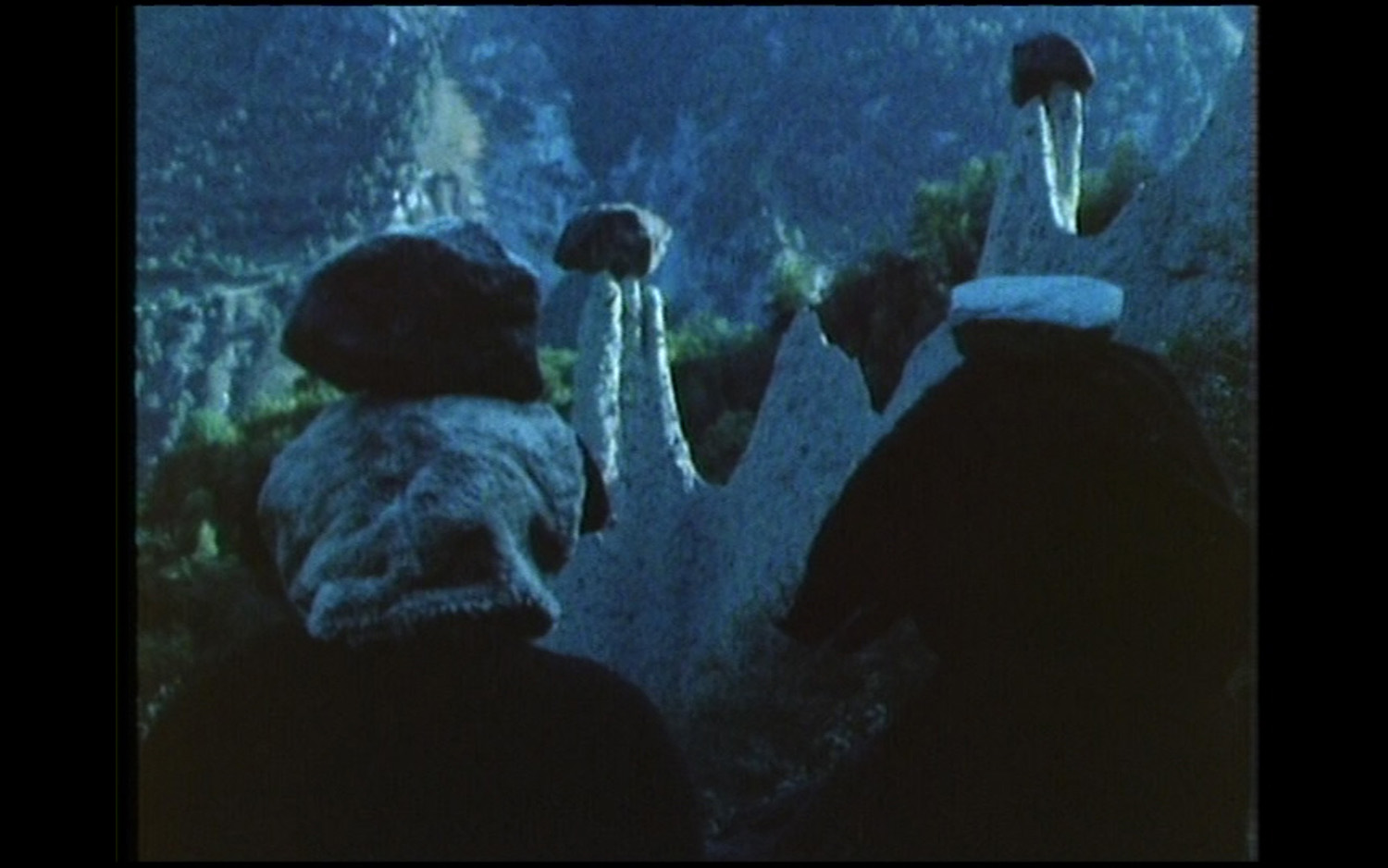
As they hike through the mountains, at the mercy of the elements and all kinds of miracles ‐ and above all, at the mercy of themselves, Rat and Bear try to find reasons for all they see and experience, getting closer then expected to the right way. (caution: contains animal cruelty)

Sympathy for the Devil
is a 1968 film by Jean-Luc Godard.
The film intercuts footage of the Rolling Stones working on the song "Sympathy for the Devil" in a studio; Anne Wiazemsky as "Eve Democracy," sauntering through London in a gown as she is being interviewed by a TV reporter; and other scenes examining capitalism, activism, and political conflict.
In his original version of the film, entitled One Plus One, Godard intentionally omitted the final studio recording of the song‐an indication, to some, that the work of the "people's revolution" remained unfinished. However, producer Ian Quarrier, in a bid to give Stones fans what they wanted, insisted on putting the complete song back in, and renamed the film Sympathy for the Devil.

The film intercuts footage of the Rolling Stones working on the song "Sympathy for the Devil" in a studio; Anne Wiazemsky as "Eve Democracy," sauntering through London in a gown as she is being interviewed by a TV reporter; and other scenes examining capitalism, activism, and political conflict.
In his original version of the film, entitled One Plus One, Godard intentionally omitted the final studio recording of the song‐an indication, to some, that the work of the "people's revolution" remained unfinished. However, producer Ian Quarrier, in a bid to give Stones fans what they wanted, insisted on putting the complete song back in, and renamed the film Sympathy for the Devil.

Symbiopsychotaxiplasm: Take One
is a 1968 fiction/documentary hybrid by William Greaves.
Greaves presides over a collective film crew in New York's Central Park, leaving them to try to figure out what kind of movie they're making. A couple enacts a breakup scenario over and over, a documentary crew films a crew filming the crew, locals wander casually into the frame: the project defies easy description. Yet this wildly innovative sixties counterculture landmark remains one of the most tightly focused and insightful movies ever made about making movies, expanded thirty-five years later by its unconventional follow-up, Symbiopsychotaxiplasm: Take 2½.
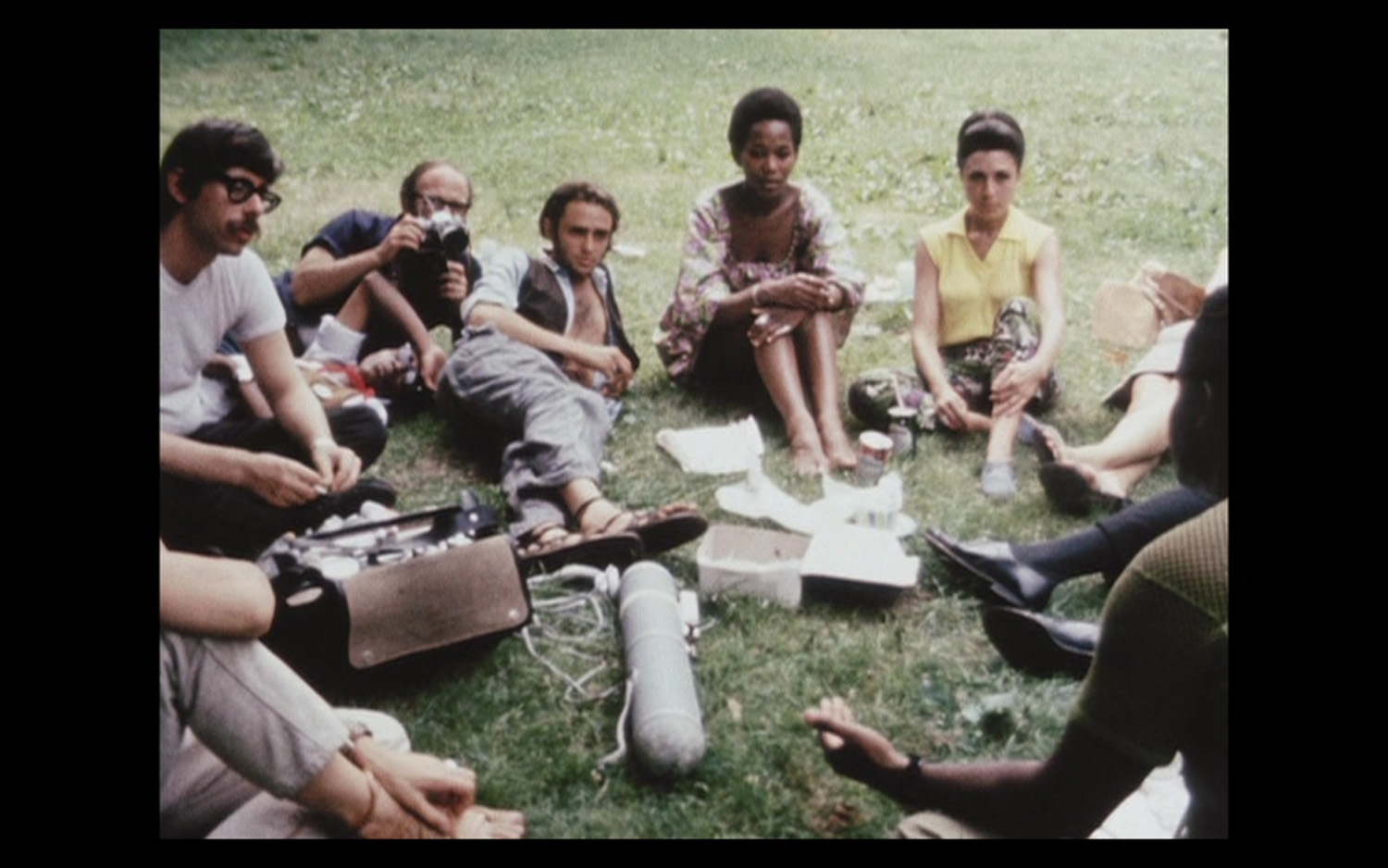
Greaves presides over a collective film crew in New York's Central Park, leaving them to try to figure out what kind of movie they're making. A couple enacts a breakup scenario over and over, a documentary crew films a crew filming the crew, locals wander casually into the frame: the project defies easy description. Yet this wildly innovative sixties counterculture landmark remains one of the most tightly focused and insightful movies ever made about making movies, expanded thirty-five years later by its unconventional follow-up, Symbiopsychotaxiplasm: Take 2½.

Nonfilm
is a 2001 film by Quentin Dupieux.
A man, Vince, wakes up in the middle of a film shoot. He doesn't know what's going on or why he's there, but crew members tell him he's one of the actors in the film so he decides to just play along. During the shooting of one scene, one of the other actors, 122, accidentally kills most of the crew. Vince, 122 and the remaining crew decide to finish the film by themselves, even though there's no script, no sound equipment (they decide to make it a silent film) and no camera (they then decide to also make it a "blind" film).
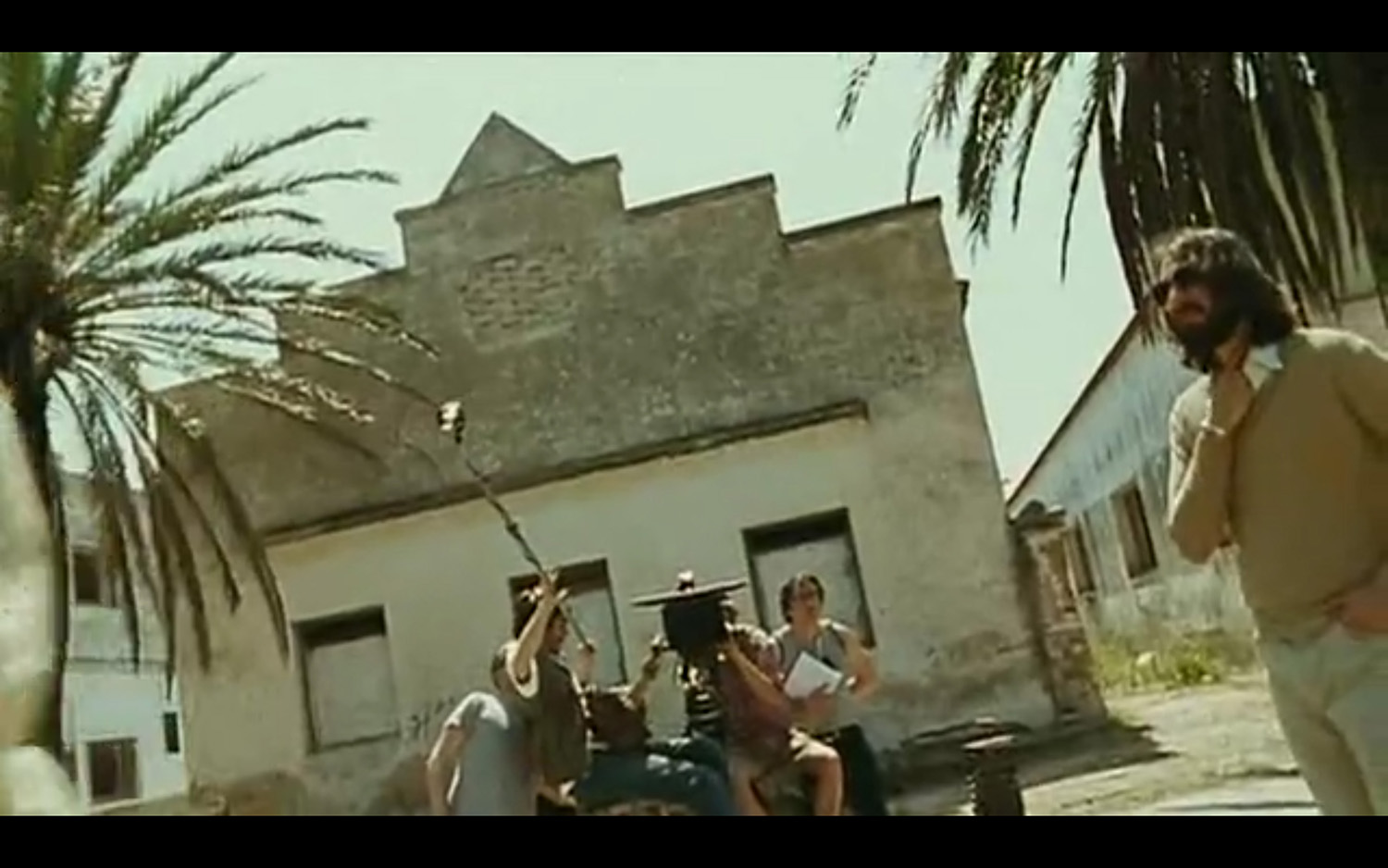
A man, Vince, wakes up in the middle of a film shoot. He doesn't know what's going on or why he's there, but crew members tell him he's one of the actors in the film so he decides to just play along. During the shooting of one scene, one of the other actors, 122, accidentally kills most of the crew. Vince, 122 and the remaining crew decide to finish the film by themselves, even though there's no script, no sound equipment (they decide to make it a silent film) and no camera (they then decide to also make it a "blind" film).

Berlin: Die Sinfonie der Großstadt
is a 1927 silent film by Walter Ruttmann.
An emblematic 'city symphony' film structured to follow the life of Berlin and its inhabitants across the course of a single day, from dawn to dusk, to create "a symphonic film with the thousandfold energies that make up the life of a great city."
A musical score for an orchestra to accompany the silent film was written by Edmund Meisel.

An emblematic 'city symphony' film structured to follow the life of Berlin and its inhabitants across the course of a single day, from dawn to dusk, to create "a symphonic film with the thousandfold energies that make up the life of a great city."
A musical score for an orchestra to accompany the silent film was written by Edmund Meisel.

Mauerhase
is a 2009 documentary by Bartek Konopka.
The untold story of wild rabbits which lived between the Berlin Walls. For 28 years Death Zone was their safest home. Full of grass, no predators, guards protecting them from human disturbance. They were closed but happy. When their population grew up to thousands, guards started to remove them. But rabbits survived and stayed there. Unfortunately one day the wall fell down. Rabbits had to abandon comfortable system. They moved to West Berlin and have been living there in a few colonies since then. They are still learning how to live in the free world, same as we - the citizens of Eastern Europe. (caution: contains animal cruelty)
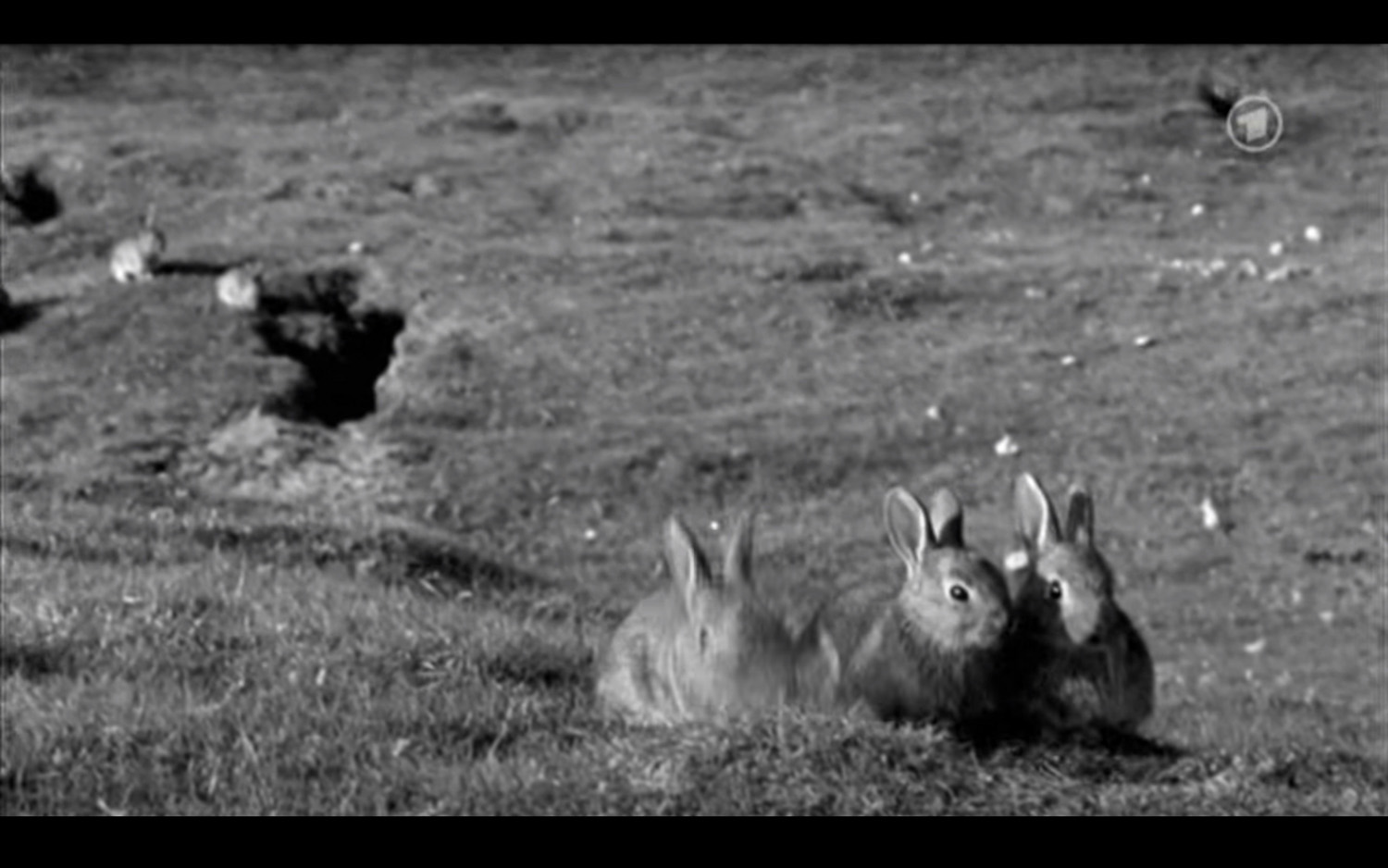
The untold story of wild rabbits which lived between the Berlin Walls. For 28 years Death Zone was their safest home. Full of grass, no predators, guards protecting them from human disturbance. They were closed but happy. When their population grew up to thousands, guards started to remove them. But rabbits survived and stayed there. Unfortunately one day the wall fell down. Rabbits had to abandon comfortable system. They moved to West Berlin and have been living there in a few colonies since then. They are still learning how to live in the free world, same as we - the citizens of Eastern Europe. (caution: contains animal cruelty)

The Wall
is a 1976 short experimental film by Gordon Matta-Clark.
This newly assembled work is a rare document of a 1976 Matta-Clark performance in Berlin. The piece begins with the following statement: "In 1976, as part of the Akademie der Kunst and Berliner Festwochen exhibition 'Soho in Berlin,' Gordon Matta-Clark went to Germany with the intention of blowing up a section of the Berlin Wall. Dissuaded by friends from such a suicidal action, the result was the following performance." The film records Matta-Clark as he stencils 'Made in America' on the Wall, affixes commercial advertisements over graffiti, and has a run-in with the police. A remarkable record of a little-known Matta-Clark performance, this work is also a historical time capsule of a political and physical landscape that no longer exists.
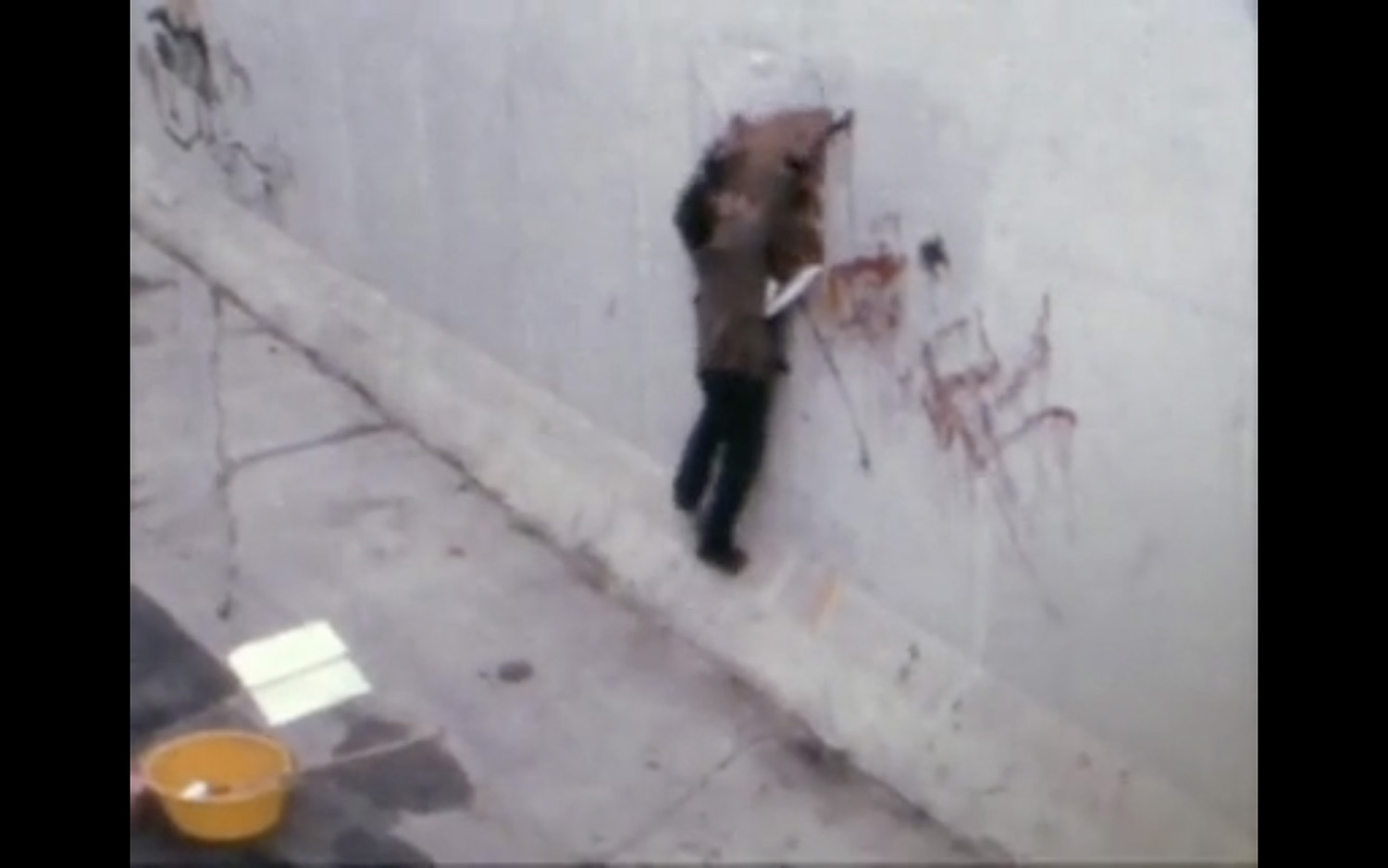
This newly assembled work is a rare document of a 1976 Matta-Clark performance in Berlin. The piece begins with the following statement: "In 1976, as part of the Akademie der Kunst and Berliner Festwochen exhibition 'Soho in Berlin,' Gordon Matta-Clark went to Germany with the intention of blowing up a section of the Berlin Wall. Dissuaded by friends from such a suicidal action, the result was the following performance." The film records Matta-Clark as he stencils 'Made in America' on the Wall, affixes commercial advertisements over graffiti, and has a run-in with the police. A remarkable record of a little-known Matta-Clark performance, this work is also a historical time capsule of a political and physical landscape that no longer exists.

Dresden Dynamo
is a 1972 experimental film by Lis Rhodes.
It is one of the films that she made in her years as a student in the media course at the North East London Polytechnic. Rhodes' work is recognized for having experimented with the audiovisual language, linking its aesthetic proposal with a political questioning of the conventional forms of both the film field and society.
In Dresden Dynamo, there is an interest in the experimentation of aesthetic forms in cinema. The projected images are a result ‐ apparently accidental ‐ of the use of Letraset and Letratone. Lis Rhodes used the Letratone on an blank soundtrack tape, producing a sequence of particular sounds. The result of this experimentation of the material, as well as the audiovisual language, becomes a game of forms in different patterns of colors, sounds and movements. In this way, the rhythm of the geometric images exposed is consistent with the sounds produced by them. The sequentiality of the visual and sound patterns is reproduced continuously without altering the rhythm, playing with the position of the geometric shapes in terms of depth and movement.
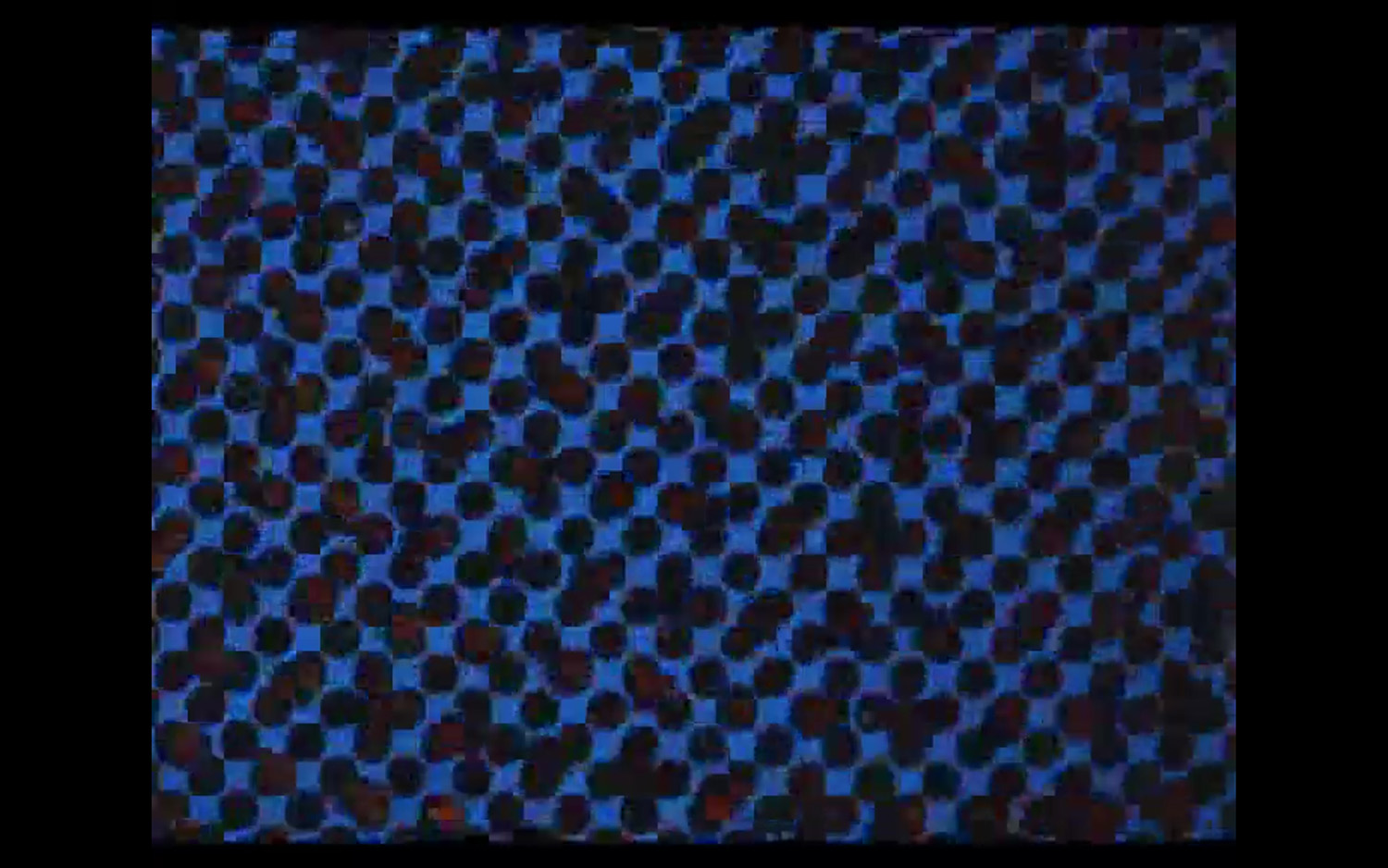
It is one of the films that she made in her years as a student in the media course at the North East London Polytechnic. Rhodes' work is recognized for having experimented with the audiovisual language, linking its aesthetic proposal with a political questioning of the conventional forms of both the film field and society.
In Dresden Dynamo, there is an interest in the experimentation of aesthetic forms in cinema. The projected images are a result ‐ apparently accidental ‐ of the use of Letraset and Letratone. Lis Rhodes used the Letratone on an blank soundtrack tape, producing a sequence of particular sounds. The result of this experimentation of the material, as well as the audiovisual language, becomes a game of forms in different patterns of colors, sounds and movements. In this way, the rhythm of the geometric images exposed is consistent with the sounds produced by them. The sequentiality of the visual and sound patterns is reproduced continuously without altering the rhythm, playing with the position of the geometric shapes in terms of depth and movement.

Chat écoutant la musique
is a 1988 short film by Chris Marker.
We see a shot of the keys of a synthesizer with piano music starting. The camera pans around revealing a cat stretched out on the keyboard "listening" to the music, as the title indicates. Because the cat is not content with just listening, it reacts to key moments in the music. The film is one of three parts to a video anthology called Bestiaire.

We see a shot of the keys of a synthesizer with piano music starting. The camera pans around revealing a cat stretched out on the keyboard "listening" to the music, as the title indicates. Because the cat is not content with just listening, it reacts to key moments in the music. The film is one of three parts to a video anthology called Bestiaire.

Ear to the Ground
is a 1979 short film, conceived & performed by David Van Tieghem,
produced and directed by John Sanborn & Kit Fitzgerald.
In Ear to the Ground, David Van Tieghem uses the city of Manhattan as his musical instrument, playing the surfaces of the sidewalks, buildings and phone booths with his drumsticks to elicit an ingenious range of percussive sounds.
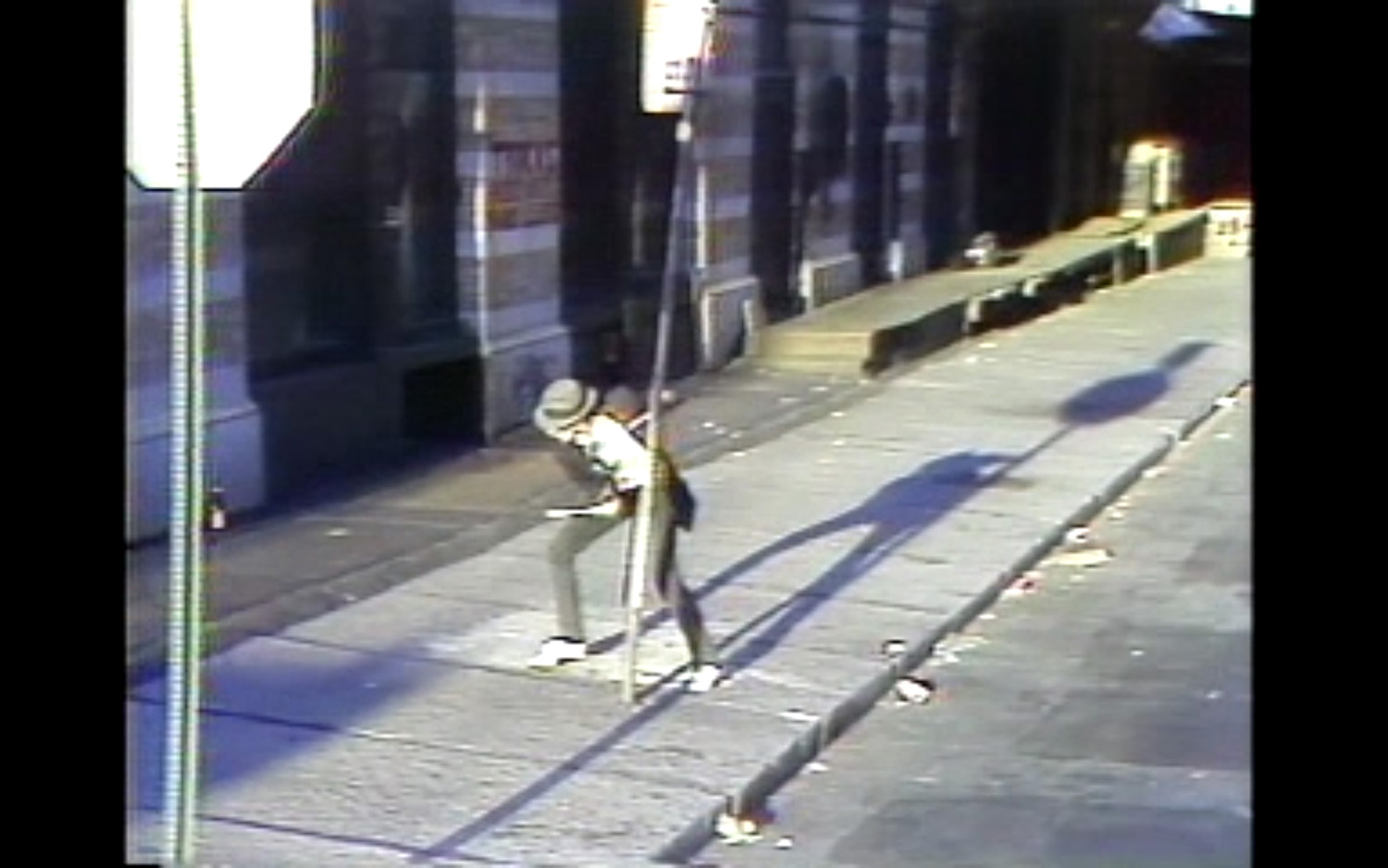
In Ear to the Ground, David Van Tieghem uses the city of Manhattan as his musical instrument, playing the surfaces of the sidewalks, buildings and phone booths with his drumsticks to elicit an ingenious range of percussive sounds.

Auch Zwerge haben klein angefangen
is a 1970 film by Werner Herzog.
Dwarfs confined in an institution on a remote island rebel against the guards and director, also dwarfs, in a display of mayhem. They gleefully break windows and dishes, cackle maniacally, abandon a running truck to drive itself in circles, engineer food fights and cock fights, look at pin-up magazines, set fire to pots of flowers, kill a large pig, torment some blind dwarfs, and perform a mock crucifixion of a monkey. (caution: contains animal cruelty)
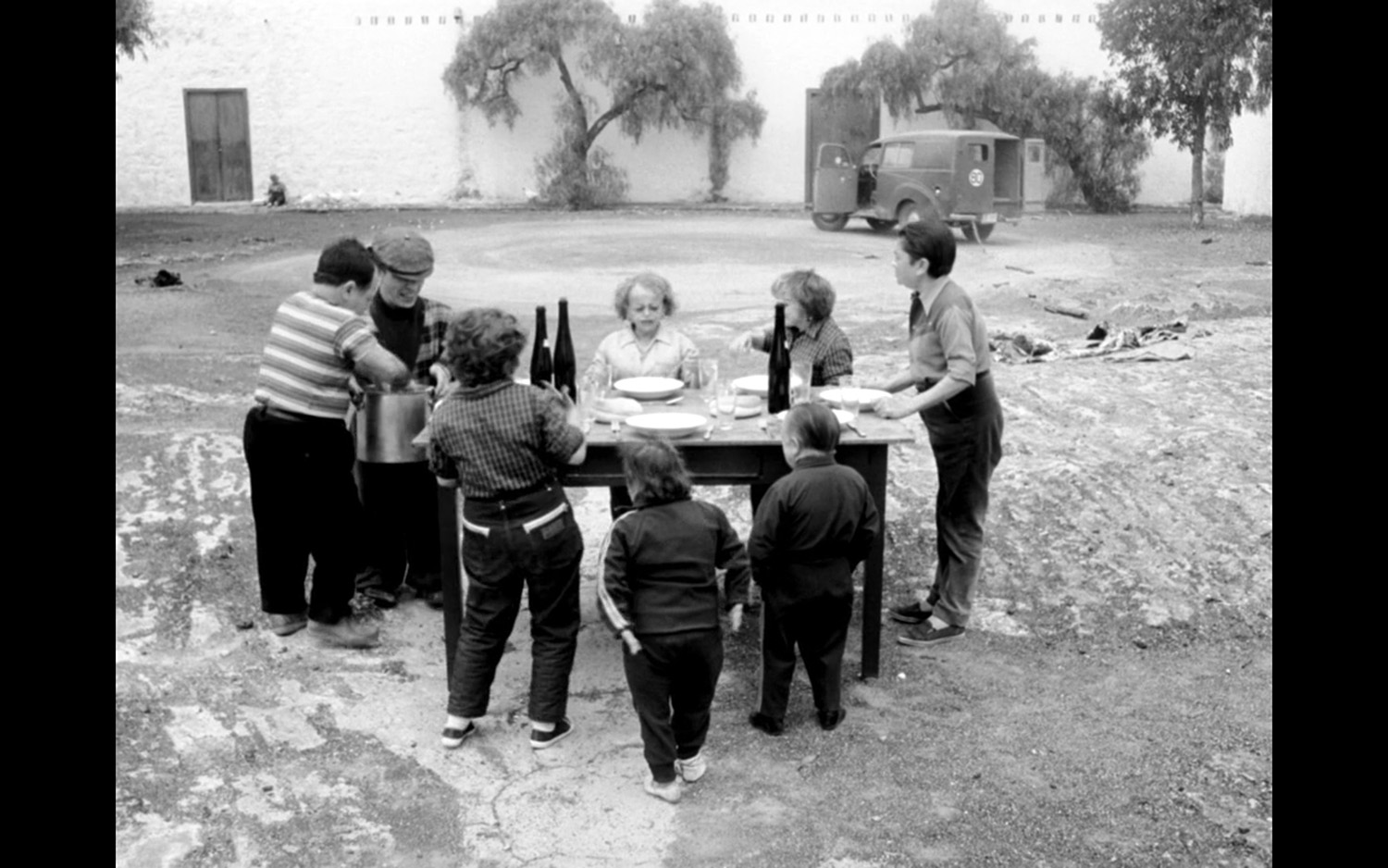
Dwarfs confined in an institution on a remote island rebel against the guards and director, also dwarfs, in a display of mayhem. They gleefully break windows and dishes, cackle maniacally, abandon a running truck to drive itself in circles, engineer food fights and cock fights, look at pin-up magazines, set fire to pots of flowers, kill a large pig, torment some blind dwarfs, and perform a mock crucifixion of a monkey. (caution: contains animal cruelty)

Heart of a Dog
is a 2015 documentary by Laurie Anderson.
A cinematic tone poem that flows from a sustained meditation on death and other forms of absence, then seamlessly weaves together thoughts on Tibetan Buddhism, reincarnation, the modern surveillance state, and the artistic lives of dogs, all in elegy for Anderson's beloved rat terrier, Lolabelle.
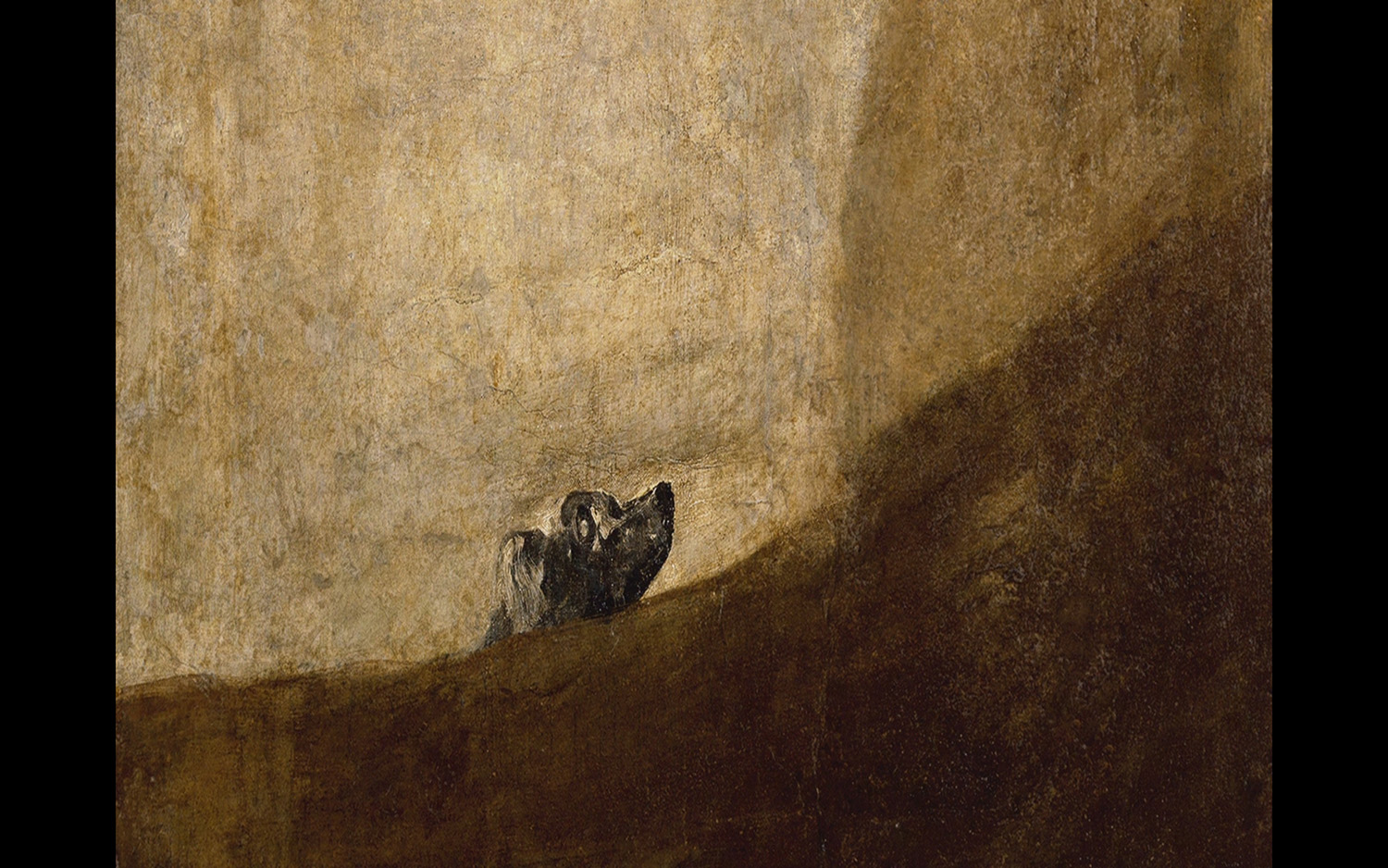
A cinematic tone poem that flows from a sustained meditation on death and other forms of absence, then seamlessly weaves together thoughts on Tibetan Buddhism, reincarnation, the modern surveillance state, and the artistic lives of dogs, all in elegy for Anderson's beloved rat terrier, Lolabelle.

Fantastic Fungi
is a 2019 documentary by
Louie Schwartzberg.
Imagine an organism that feeds you, heals you, reveals secrets of the universe and could help save the planet. Fantastic Fungi is a revelatory time-lapse journey, about the magical, mysterious and medicinal world of fungi and their power to heal, sustain and contribute to the regeneration of life.
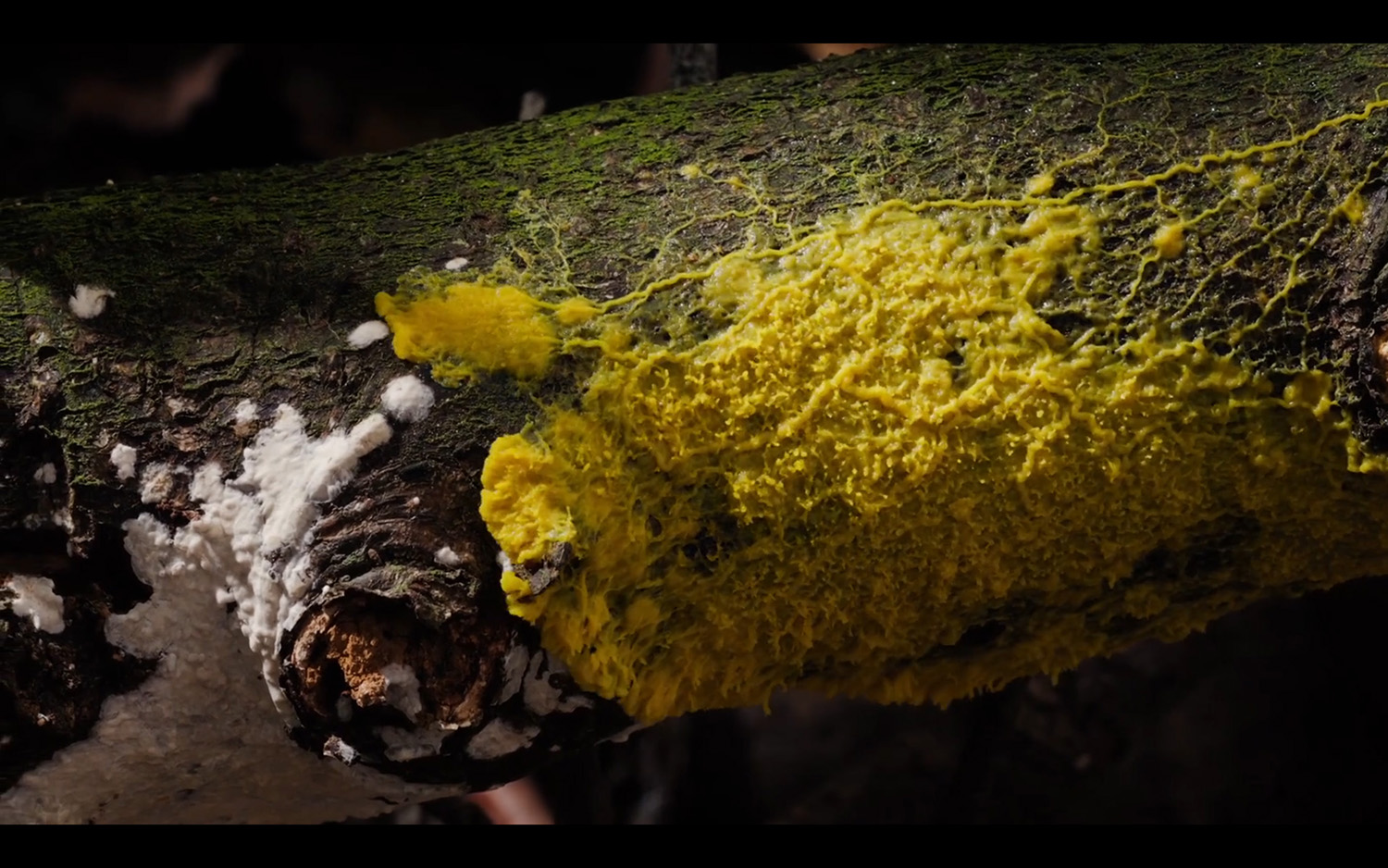
Imagine an organism that feeds you, heals you, reveals secrets of the universe and could help save the planet. Fantastic Fungi is a revelatory time-lapse journey, about the magical, mysterious and medicinal world of fungi and their power to heal, sustain and contribute to the regeneration of life.

Gav
is a 1969 film by Dariush Mehrjui.
In a small village in Iran, Hassan cherishes his cow more than anything in the world. While he is away, the cow mysteriously dies, and the villagers protectively try to convince Hassan the cow has wandered off. Grief stricken, Hassan begins to believe he is his own beloved bovine.
The film was written by Gholam-Hossein Saedi based on his own play and novel, and starring Ezzatolah Entezami as Masht Hassan. Some critics consider it the first film of the Iranian New Wave.
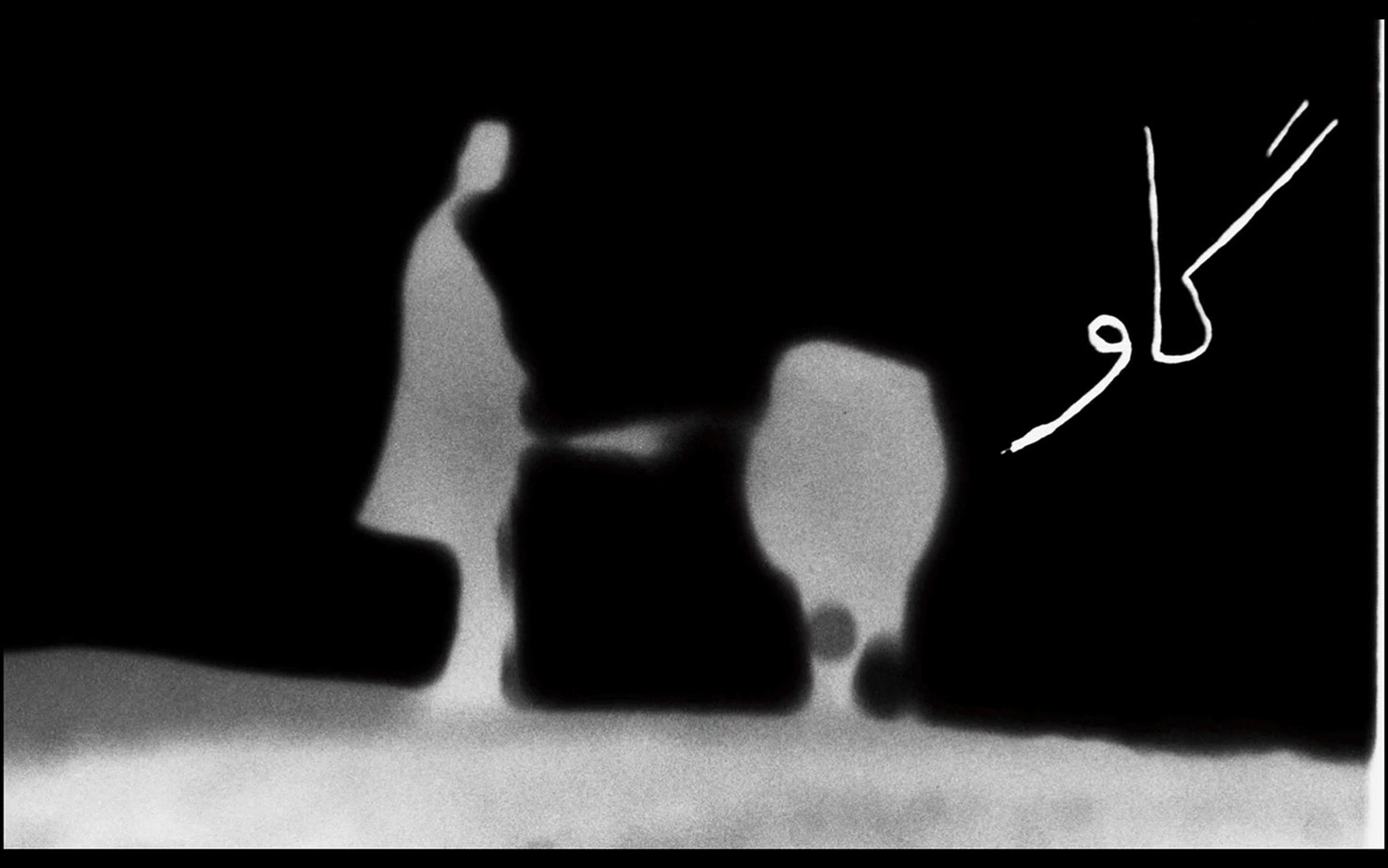
In a small village in Iran, Hassan cherishes his cow more than anything in the world. While he is away, the cow mysteriously dies, and the villagers protectively try to convince Hassan the cow has wandered off. Grief stricken, Hassan begins to believe he is his own beloved bovine.
The film was written by Gholam-Hossein Saedi based on his own play and novel, and starring Ezzatolah Entezami as Masht Hassan. Some critics consider it the first film of the Iranian New Wave.

Slacker
is a 1990 film by Richard Linklater.
Slacker follows a single day in the life of an ensemble of mostly under-30 bohemians and misfits in Austin, Texas. Where a merry-go-round of amateur philosophers, jilted lovers, inept criminals, aspiring artists, and whacked-out conspiracy theorists searches for a place to be. We meet various eccentric and misfit characters and scenes, never staying with one character or conversation for more than a few minutes before picking up someone else in the scene and following them.
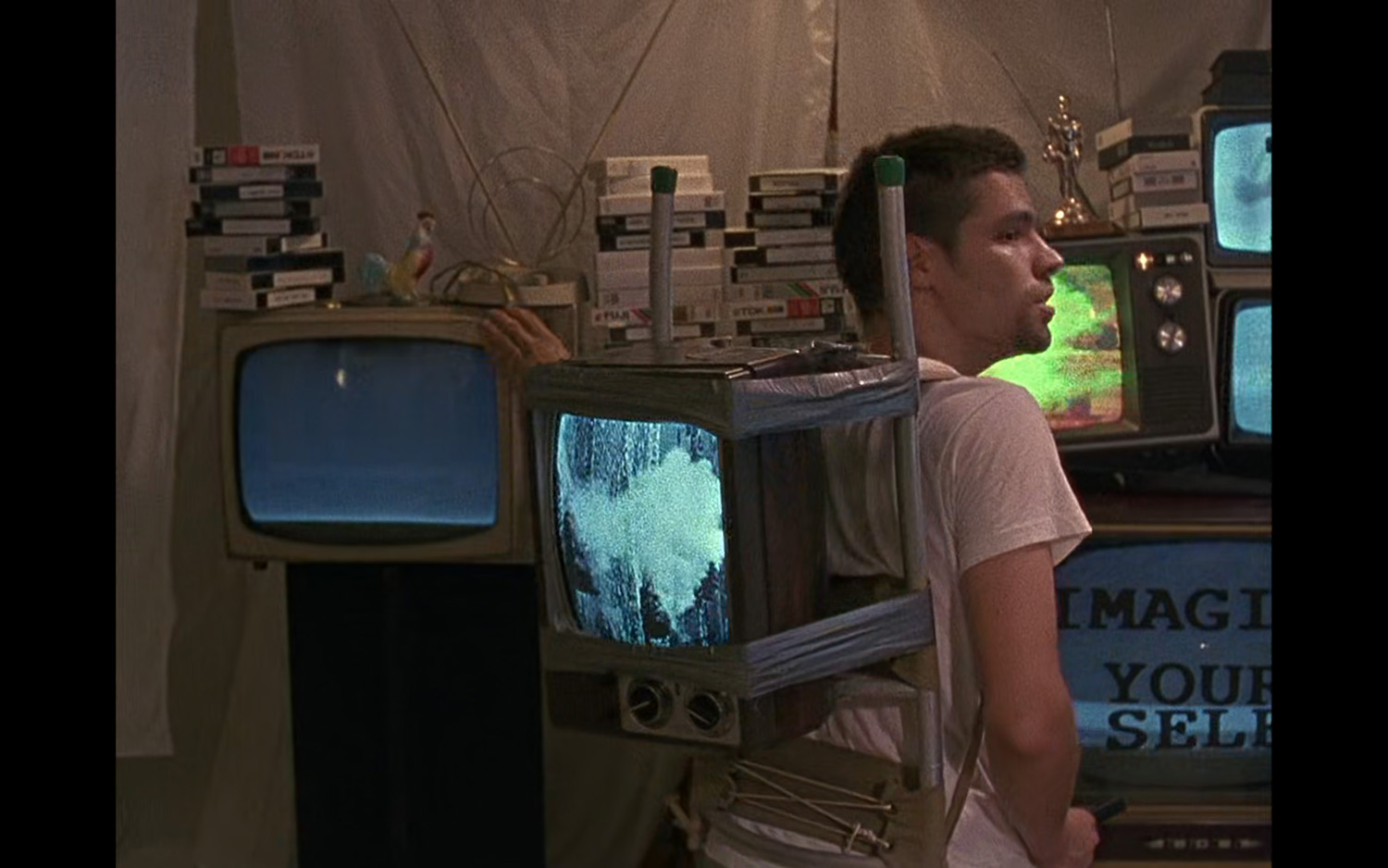
Slacker follows a single day in the life of an ensemble of mostly under-30 bohemians and misfits in Austin, Texas. Where a merry-go-round of amateur philosophers, jilted lovers, inept criminals, aspiring artists, and whacked-out conspiracy theorists searches for a place to be. We meet various eccentric and misfit characters and scenes, never staying with one character or conversation for more than a few minutes before picking up someone else in the scene and following them.

Les Glaneurs et la Glaneuse
is a 2000 documentary by Agnes Varda.
Her extraordinary late-career renaissance began with this wonderfully idiosyncratic, self-reflexive documentary in which the French cinema icon explores the world of modern-day gleaners: those living on the margins who survive by foraging for what society throws away.
Embracing the intimacy and freedom of digital filmmaking, Varda posits herself as a kind of gleaner of images and ideas, one whose generous, expansive vision makes room for ruminations on everything from aging to the birth of cinema to the beauty of heart-shaped potatoes. By turns playful, philosophical, and subtly political, The Gleaners and I is a warmly human reflection on the contradictions of our consumerist world from an artist who, like her subjects, finds unexpected richness where few think to look.
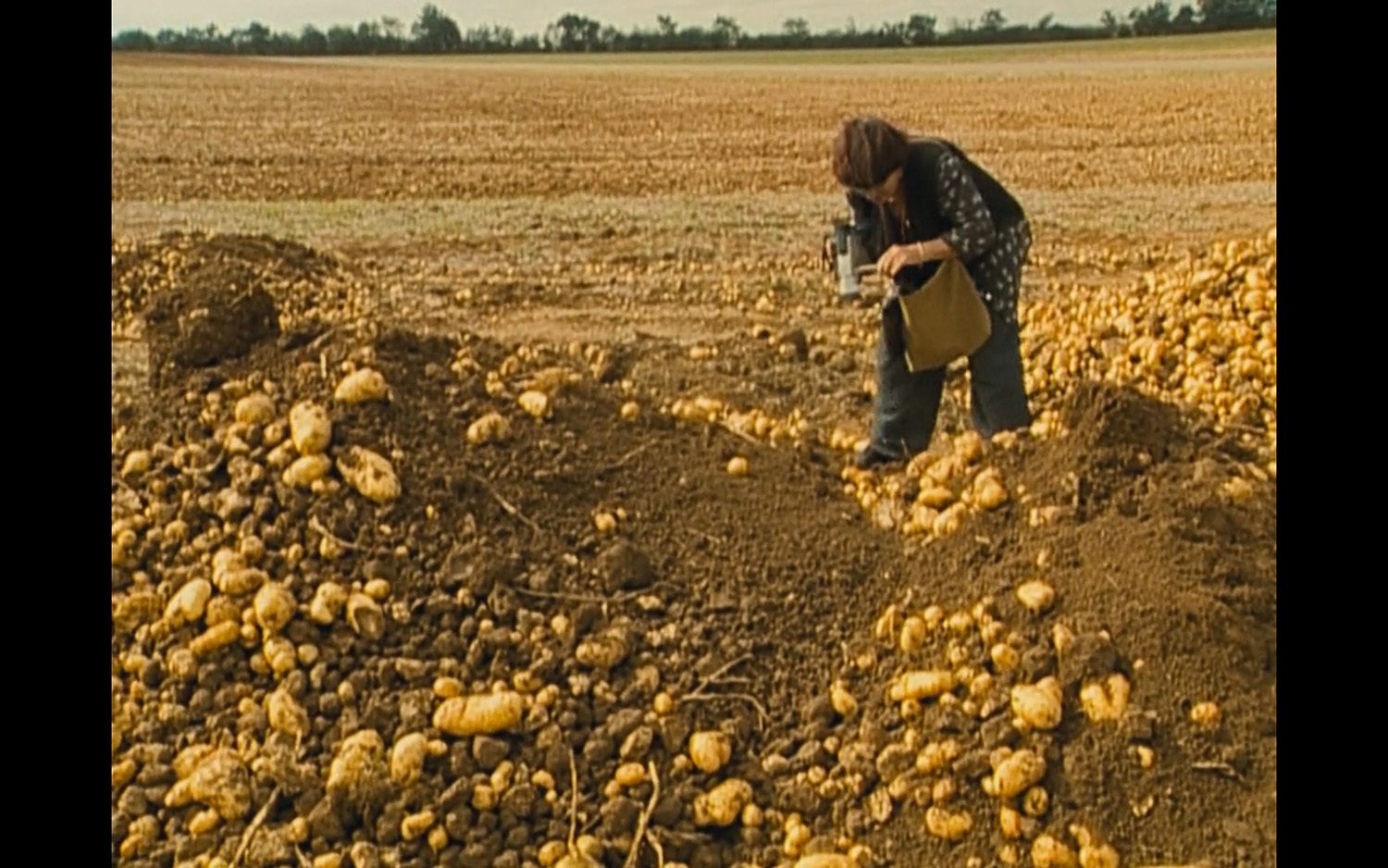
Her extraordinary late-career renaissance began with this wonderfully idiosyncratic, self-reflexive documentary in which the French cinema icon explores the world of modern-day gleaners: those living on the margins who survive by foraging for what society throws away.
Embracing the intimacy and freedom of digital filmmaking, Varda posits herself as a kind of gleaner of images and ideas, one whose generous, expansive vision makes room for ruminations on everything from aging to the birth of cinema to the beauty of heart-shaped potatoes. By turns playful, philosophical, and subtly political, The Gleaners and I is a warmly human reflection on the contradictions of our consumerist world from an artist who, like her subjects, finds unexpected richness where few think to look.



